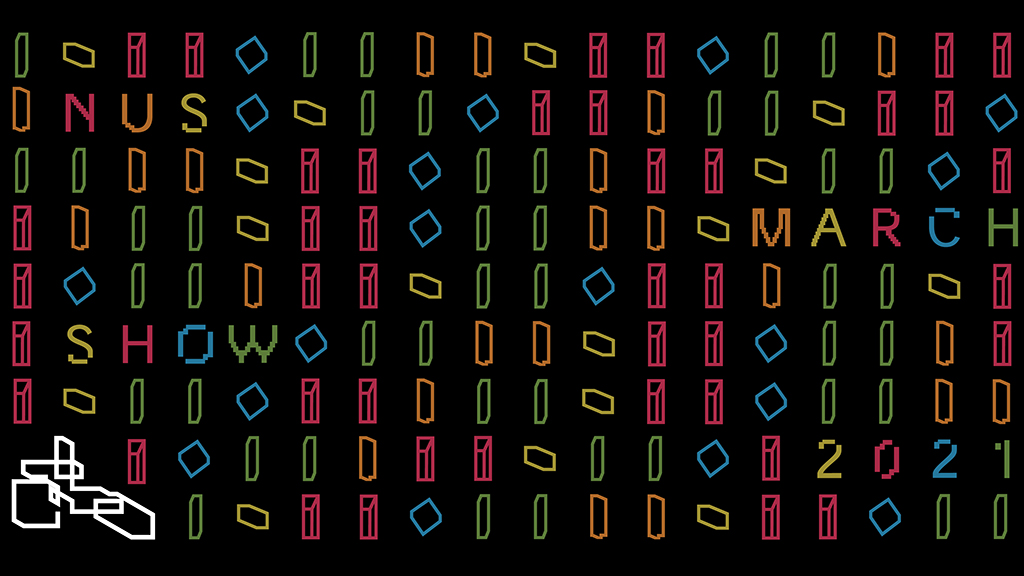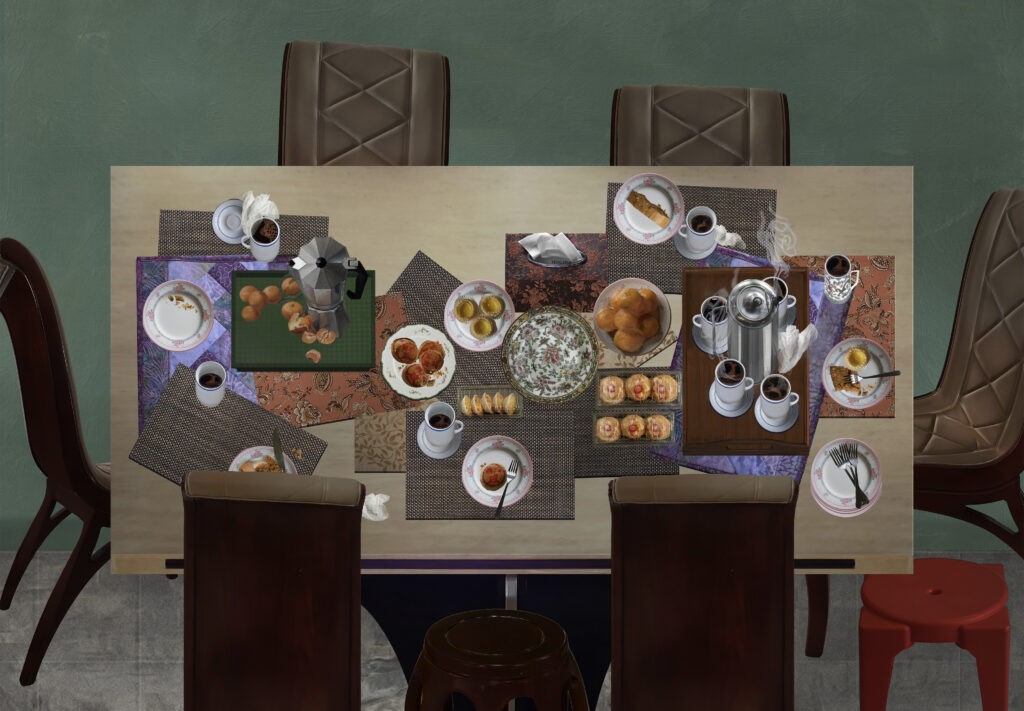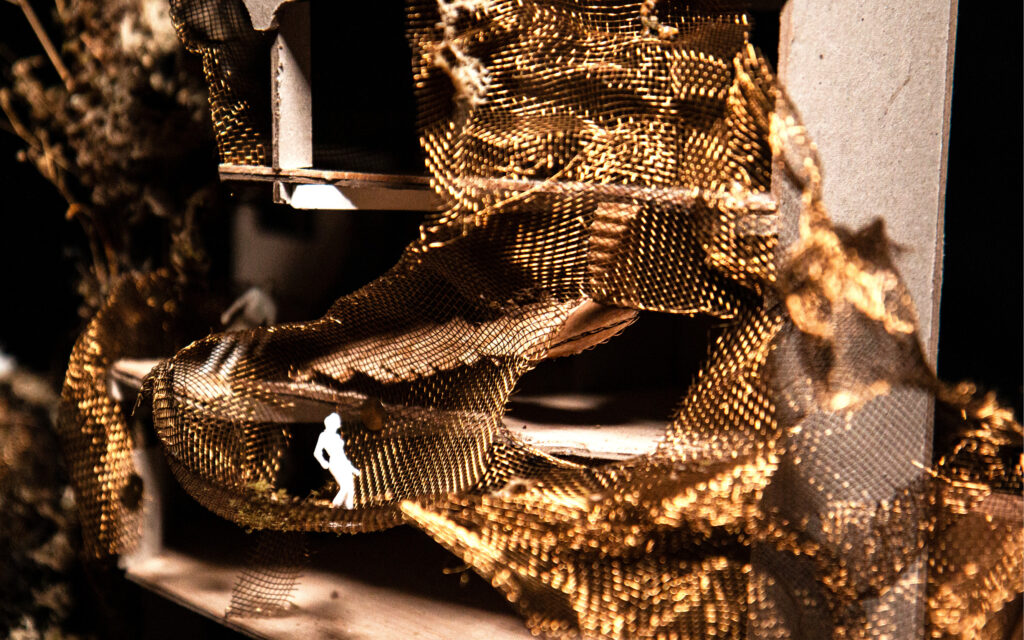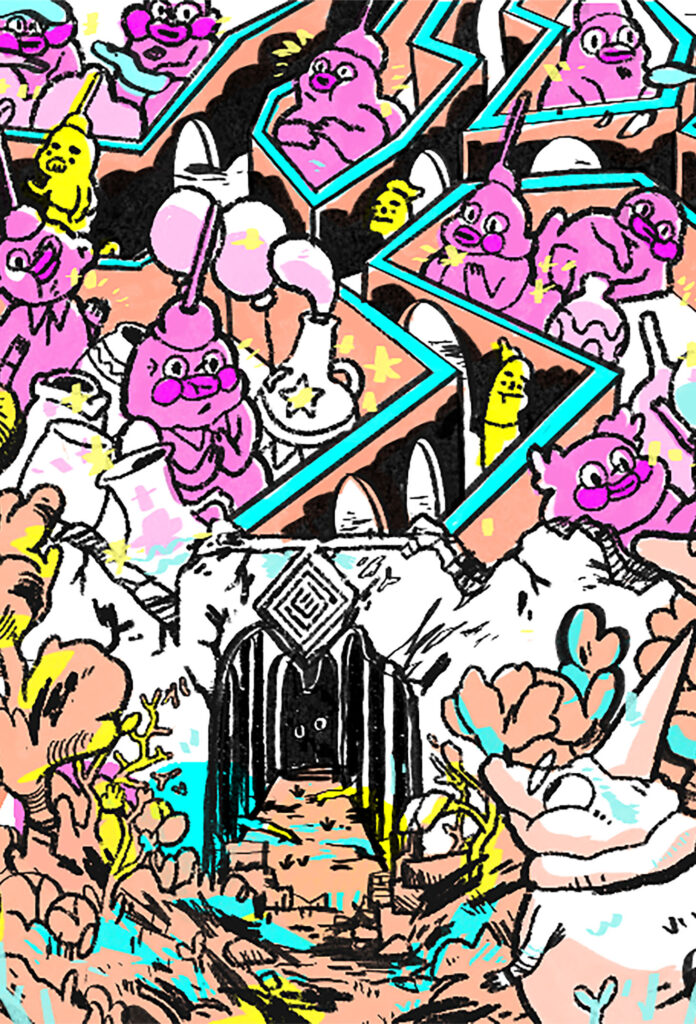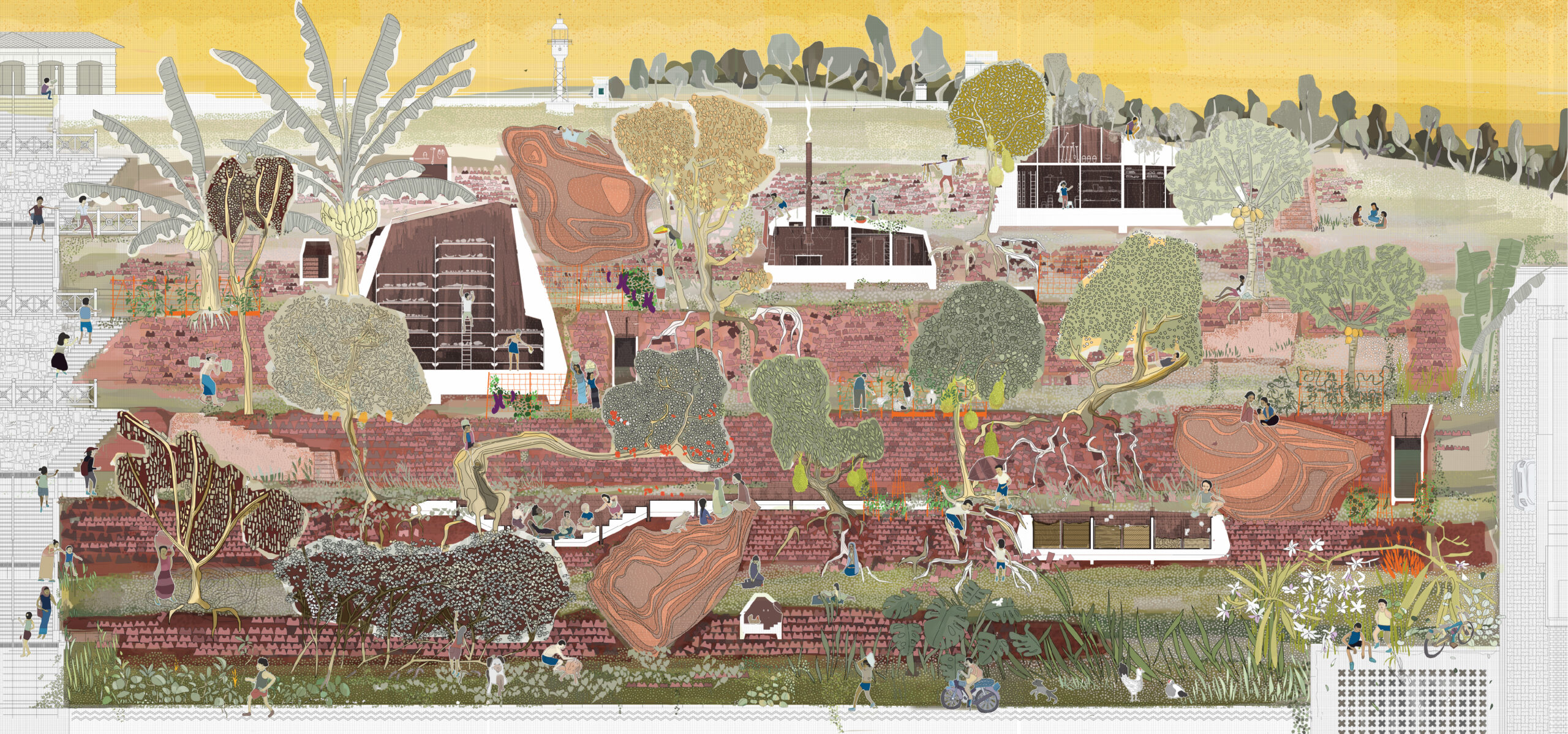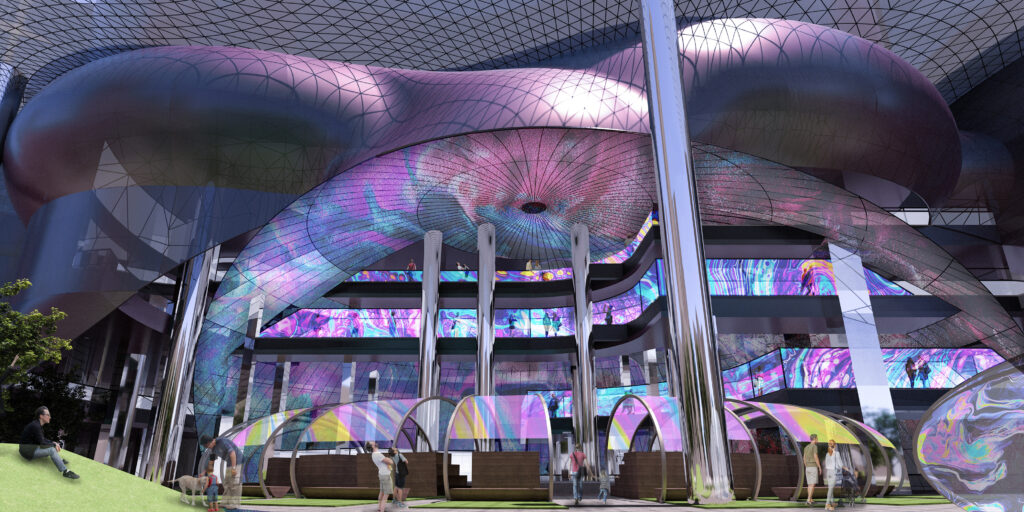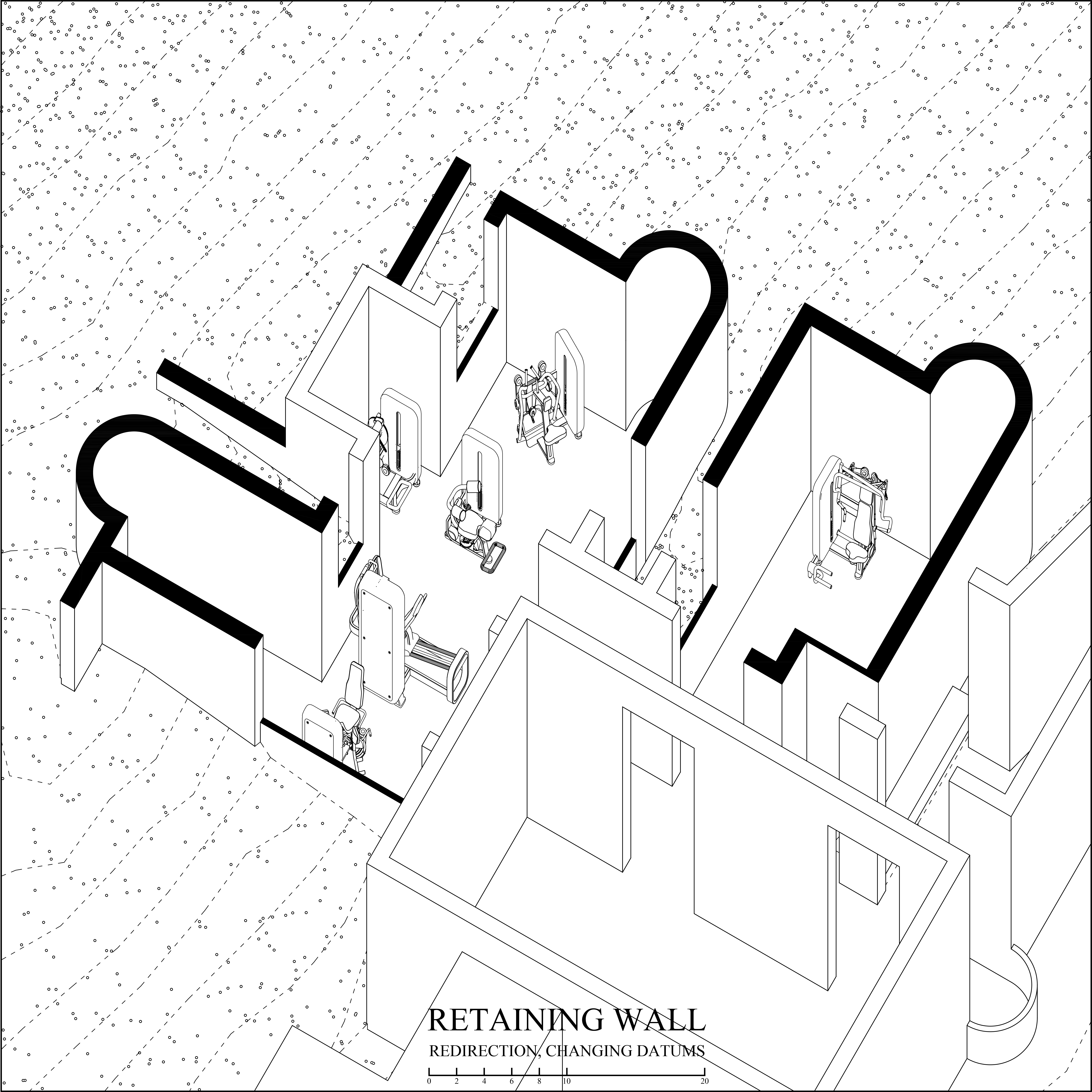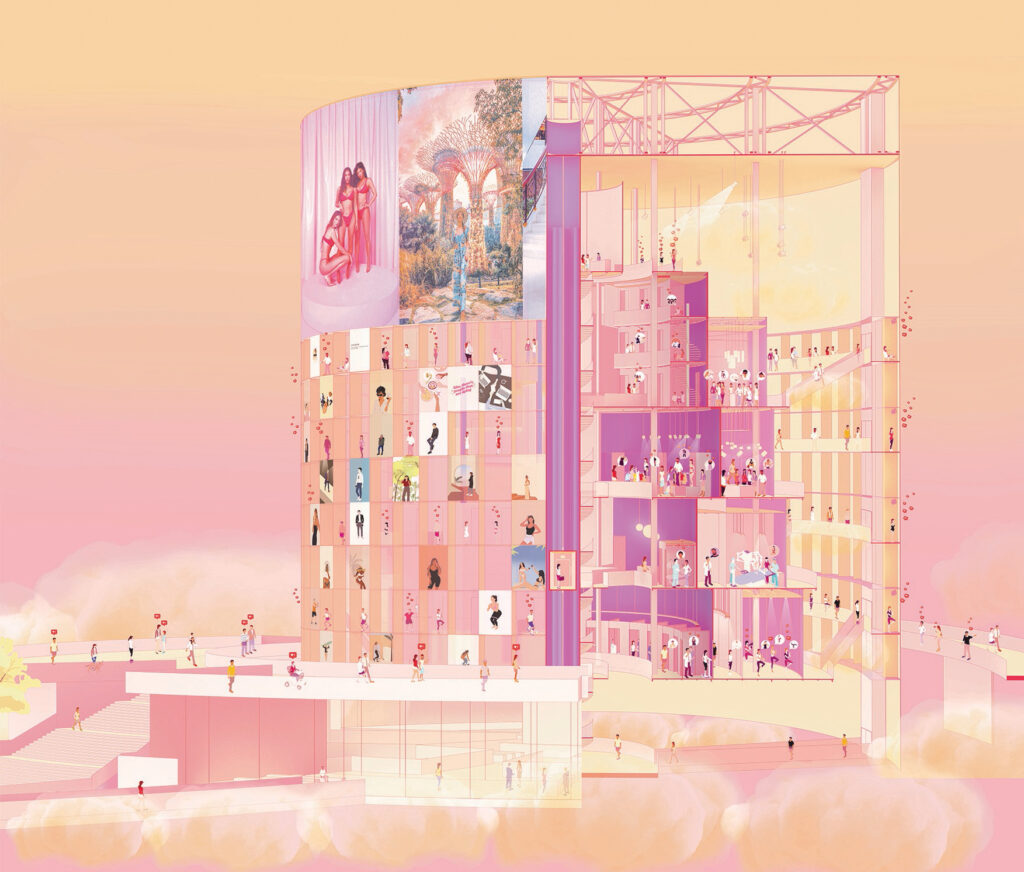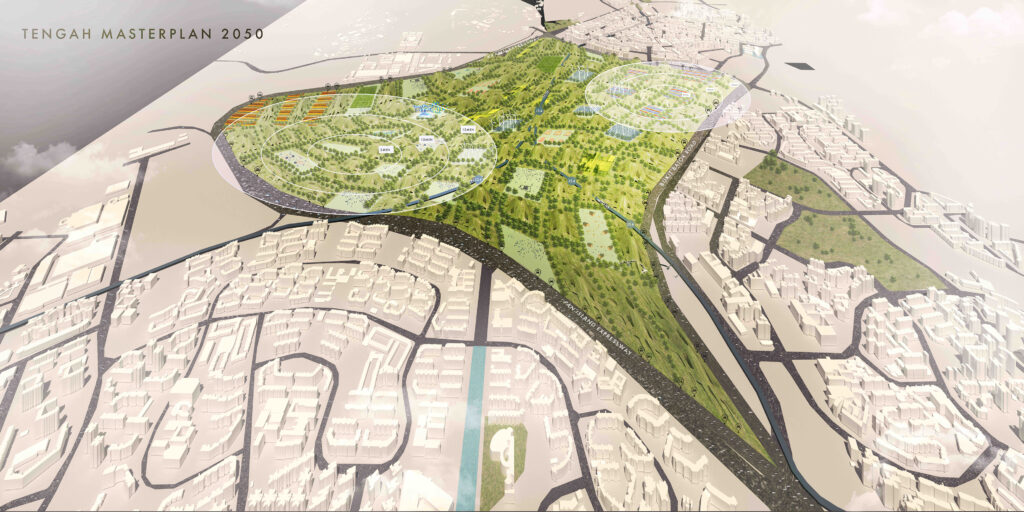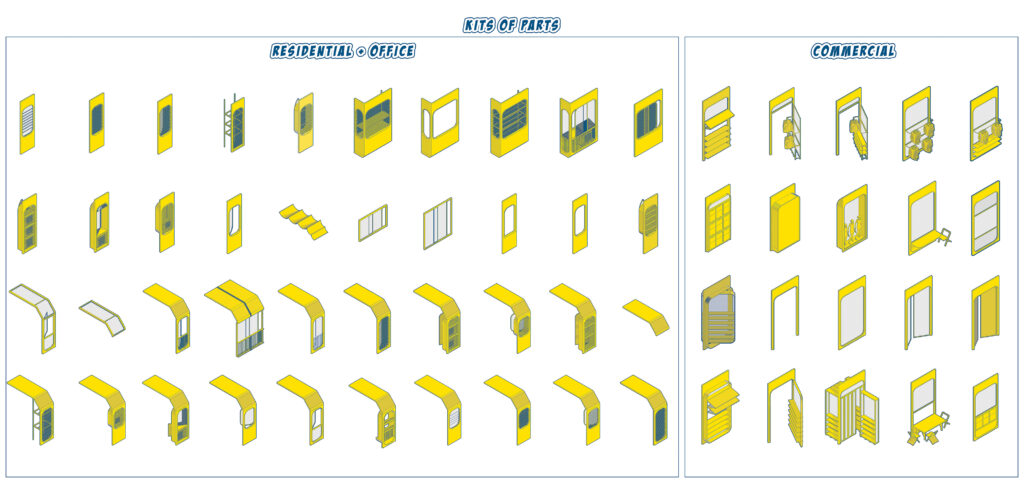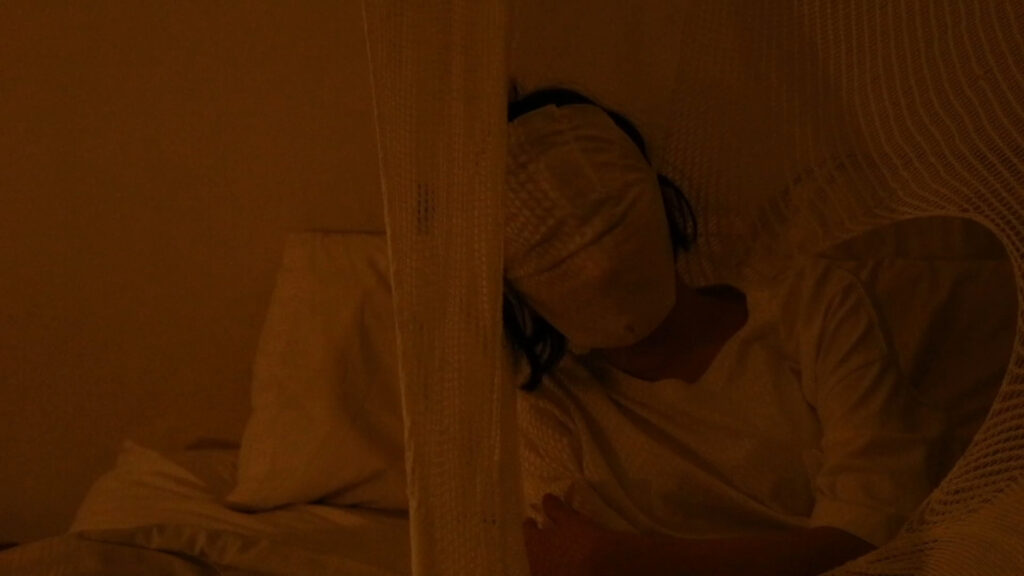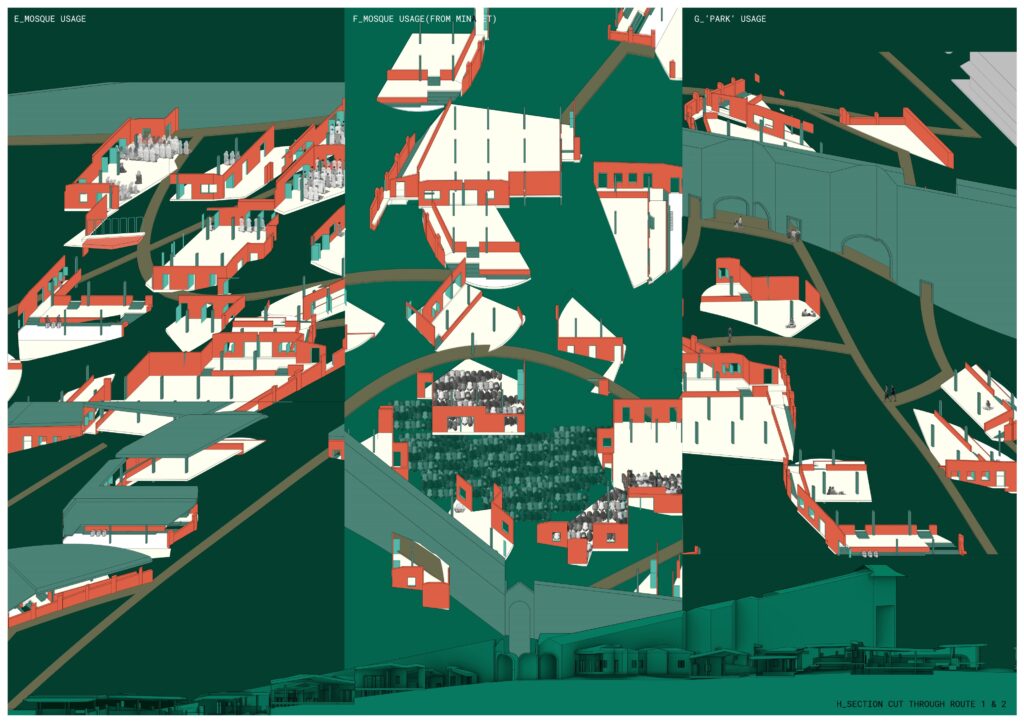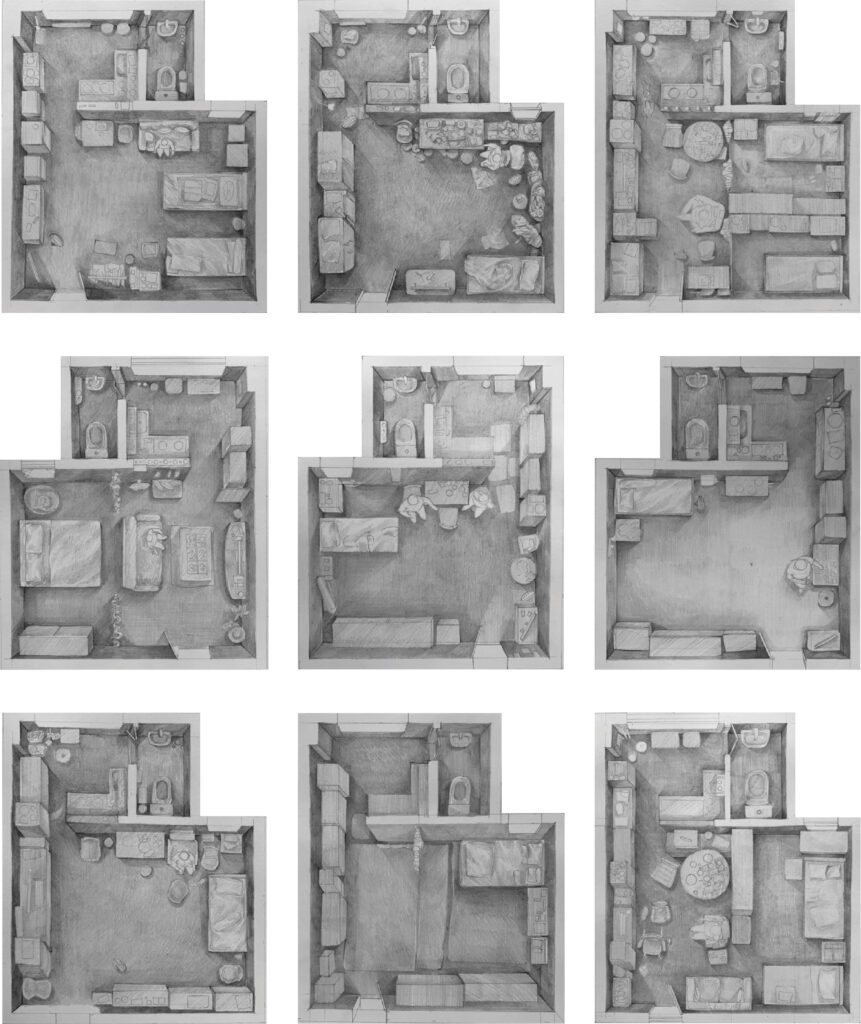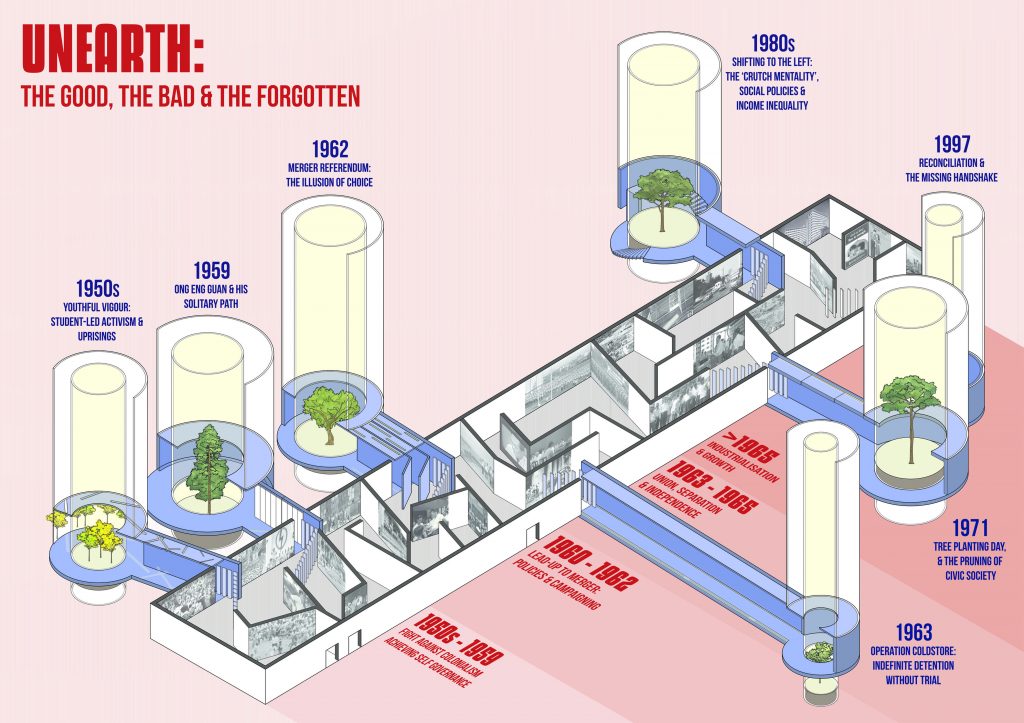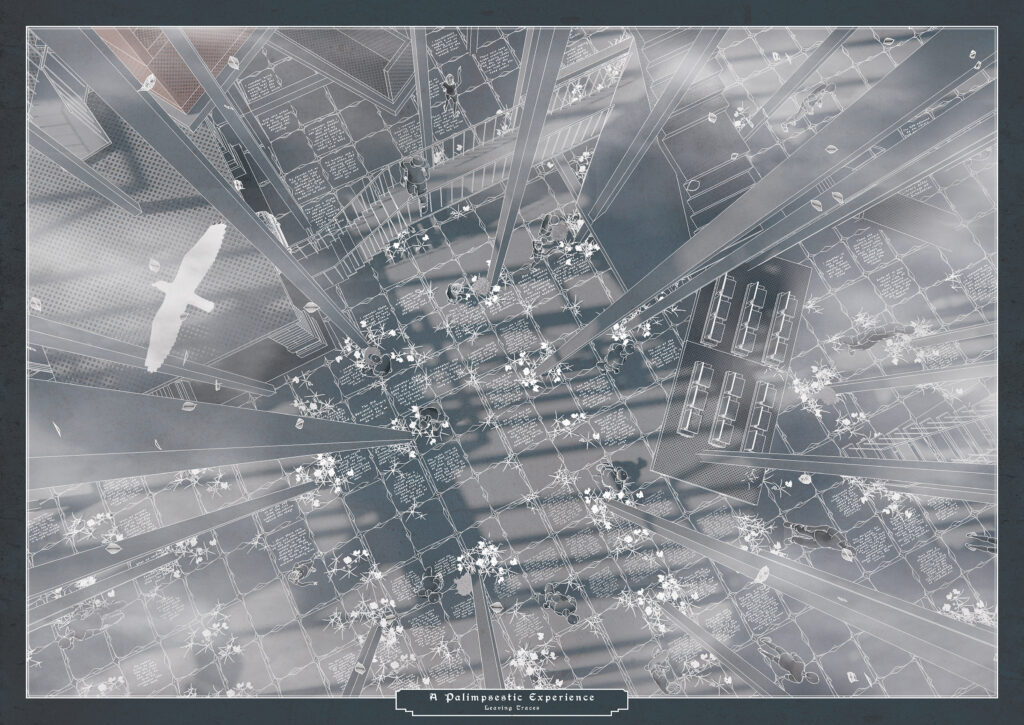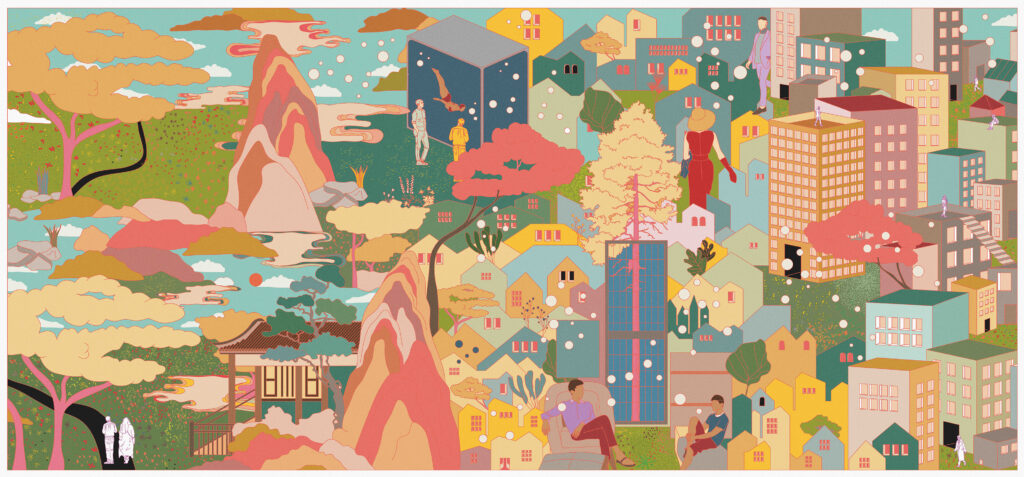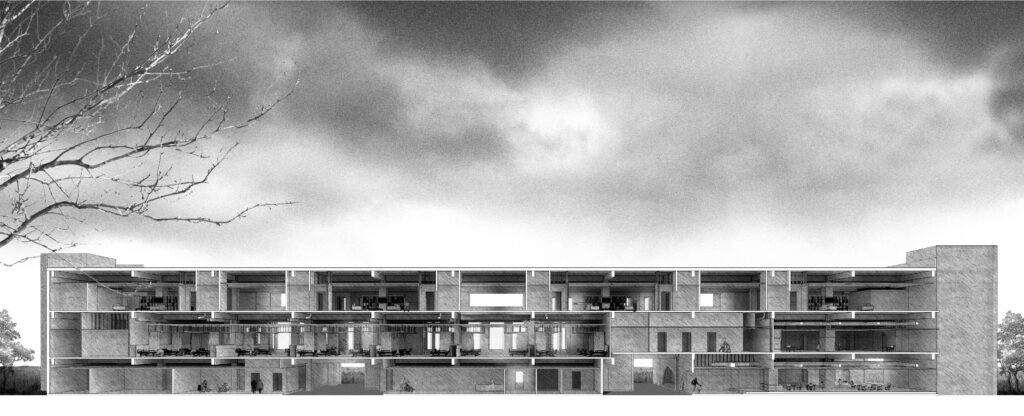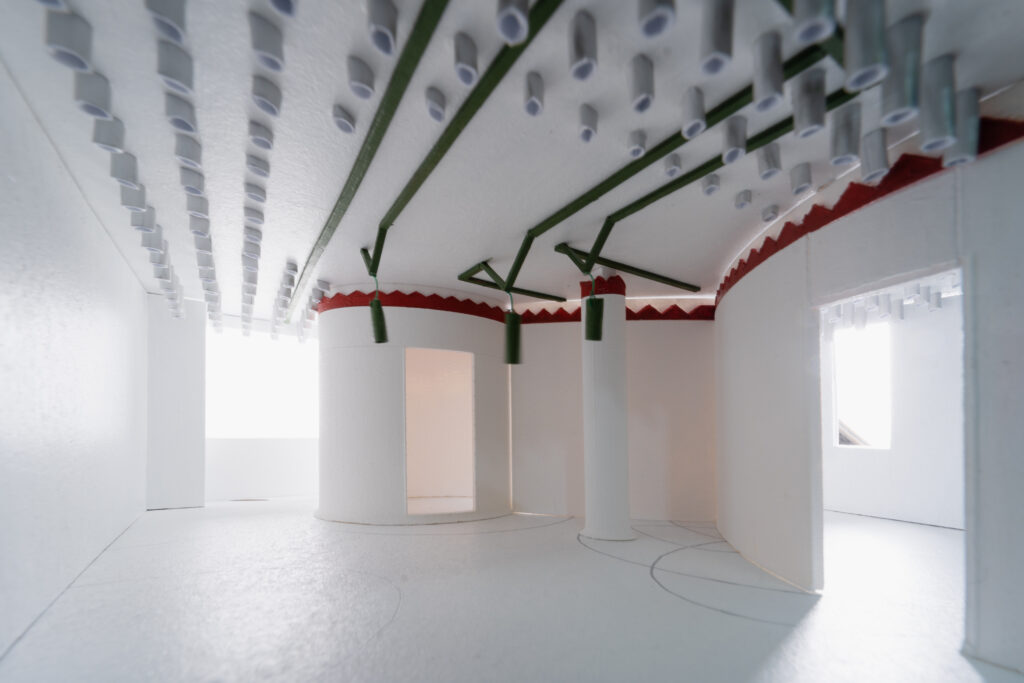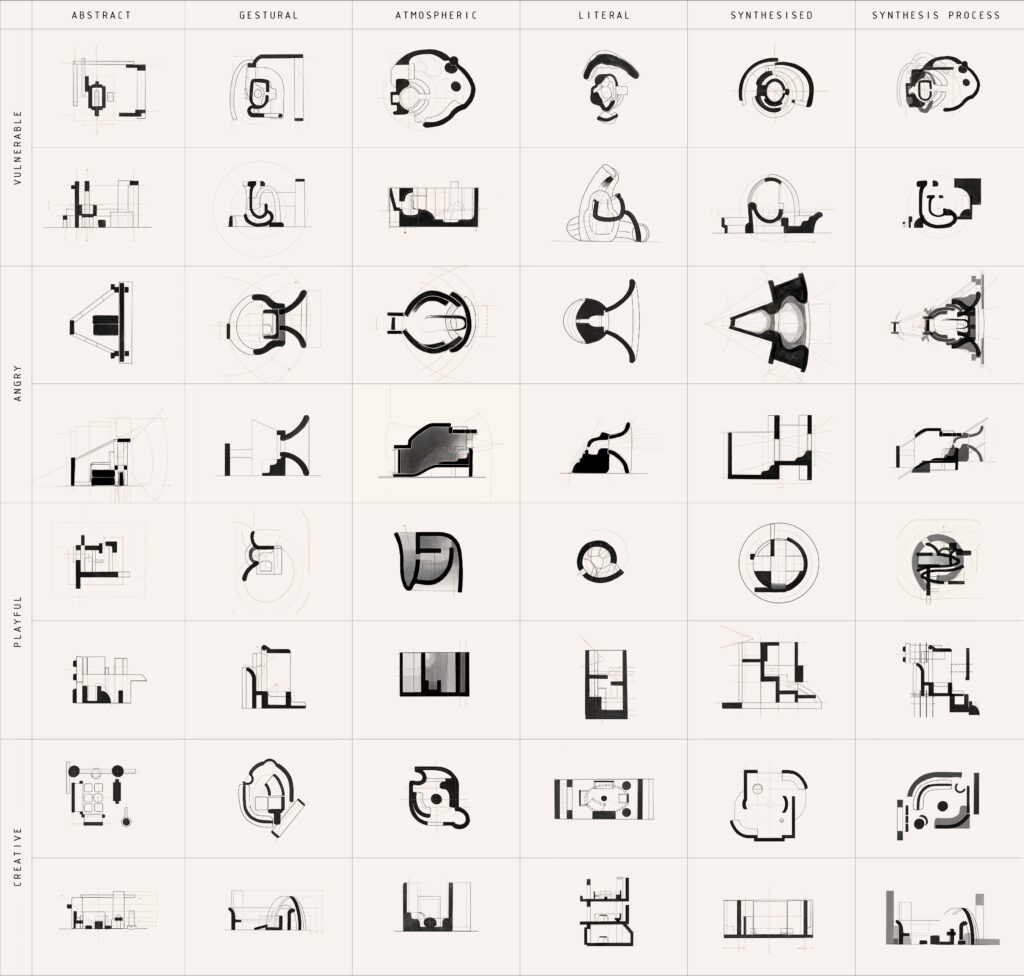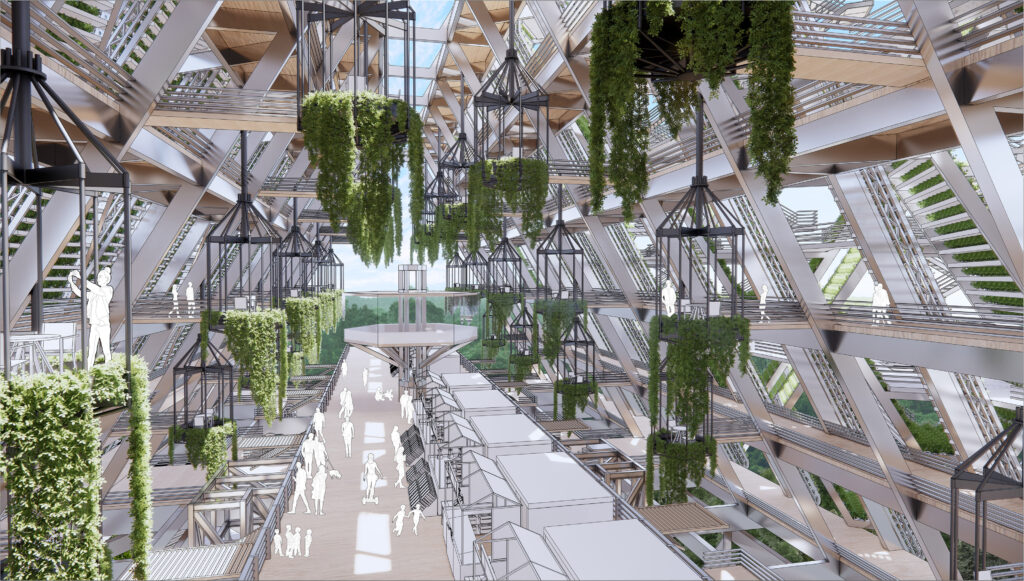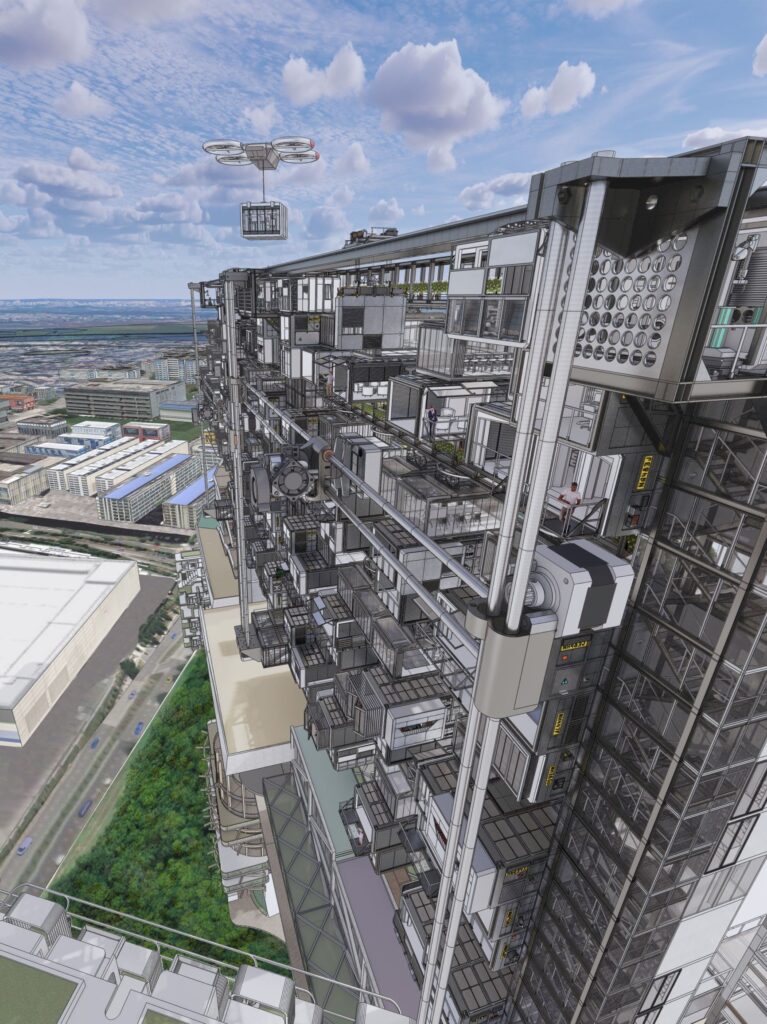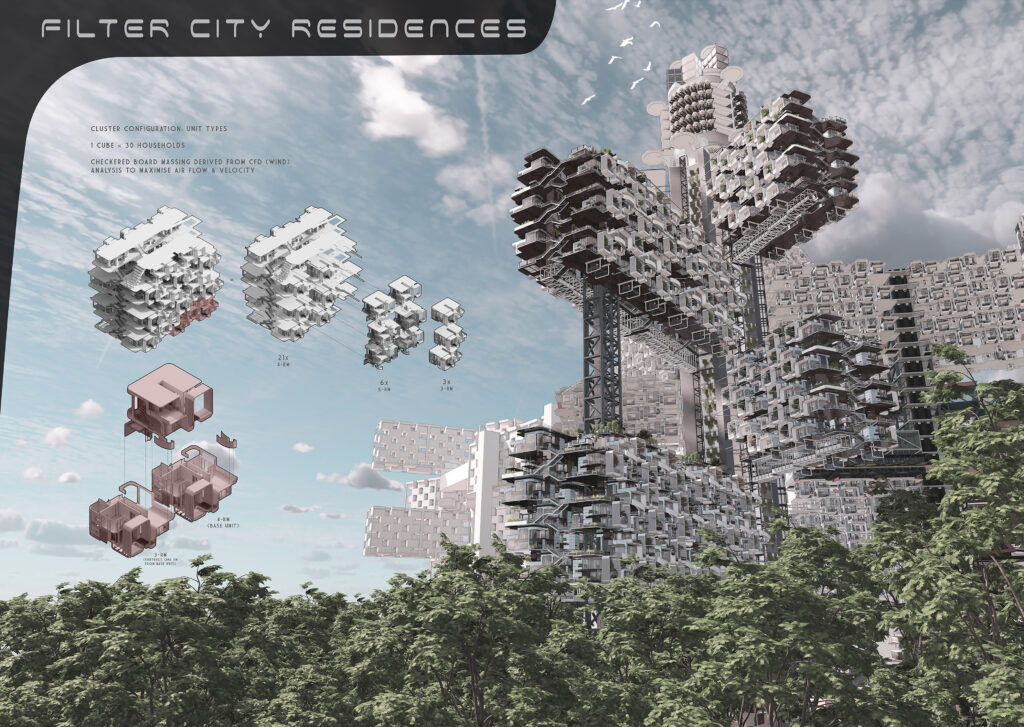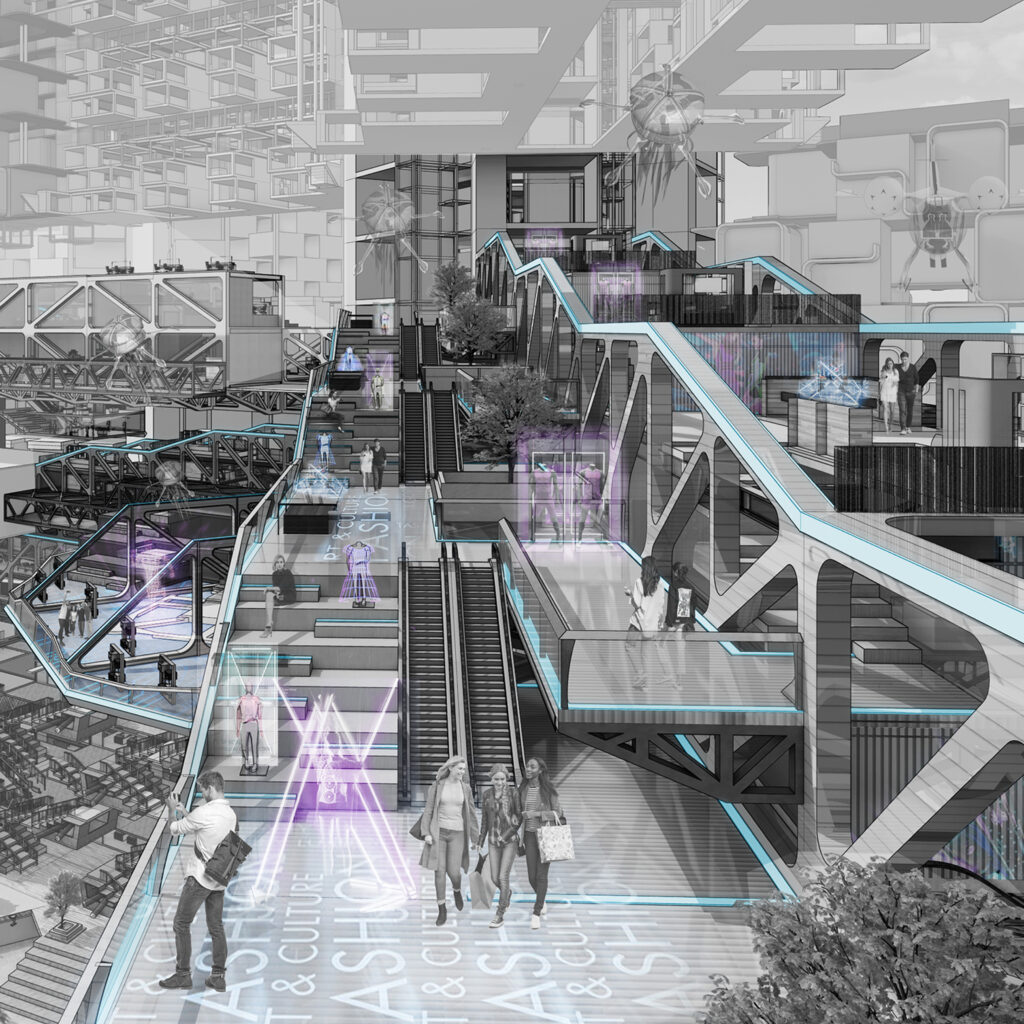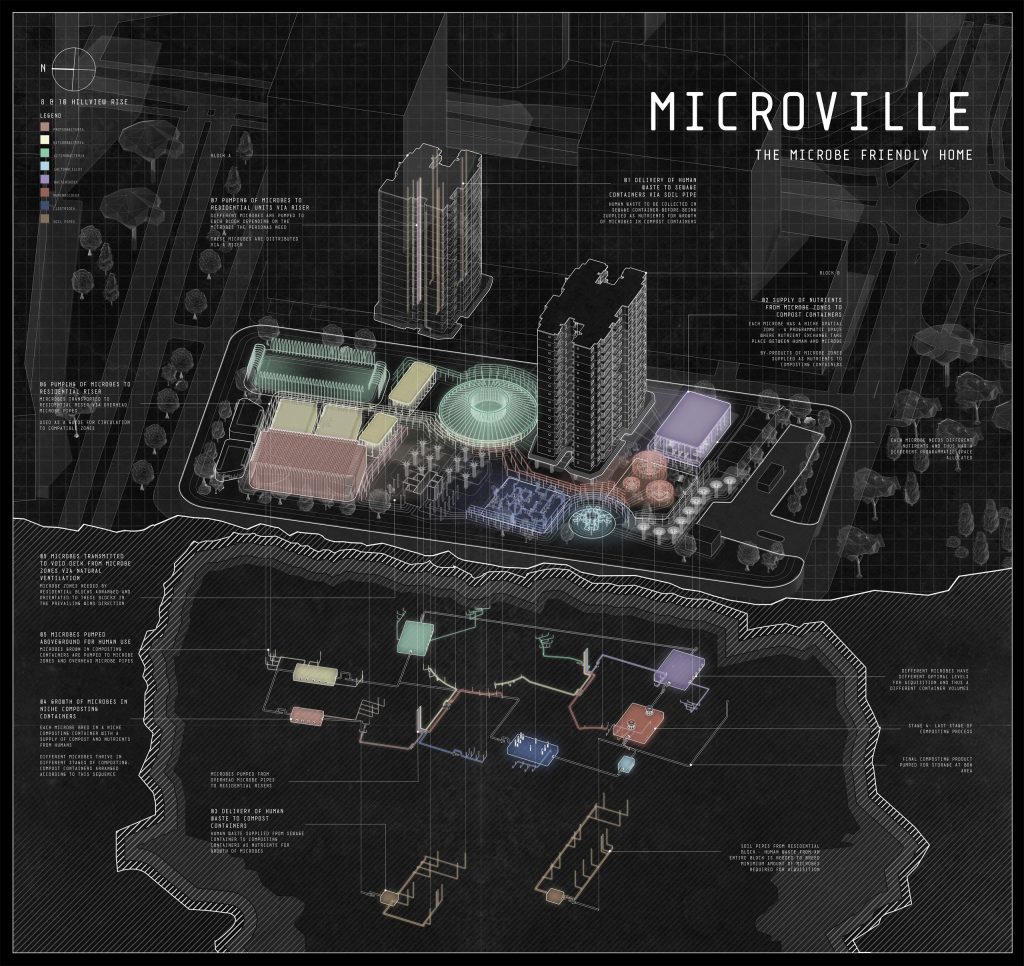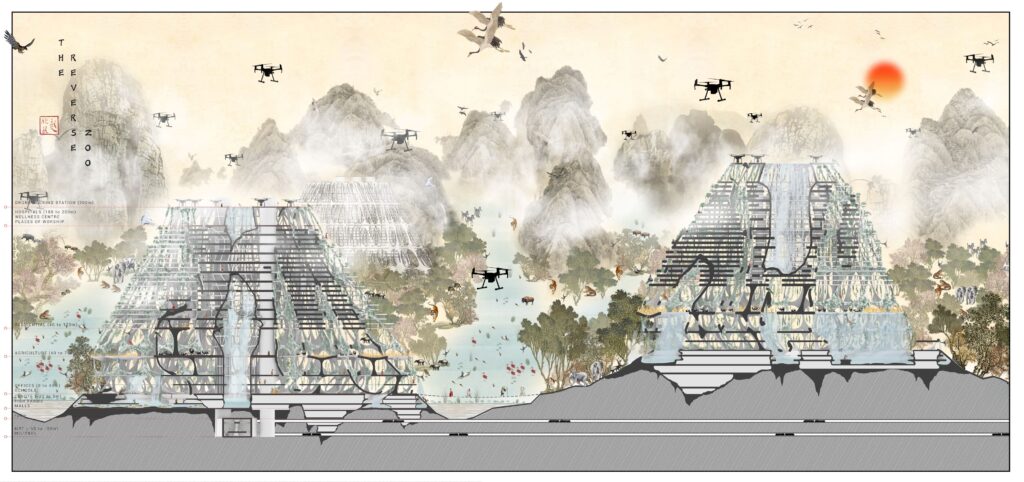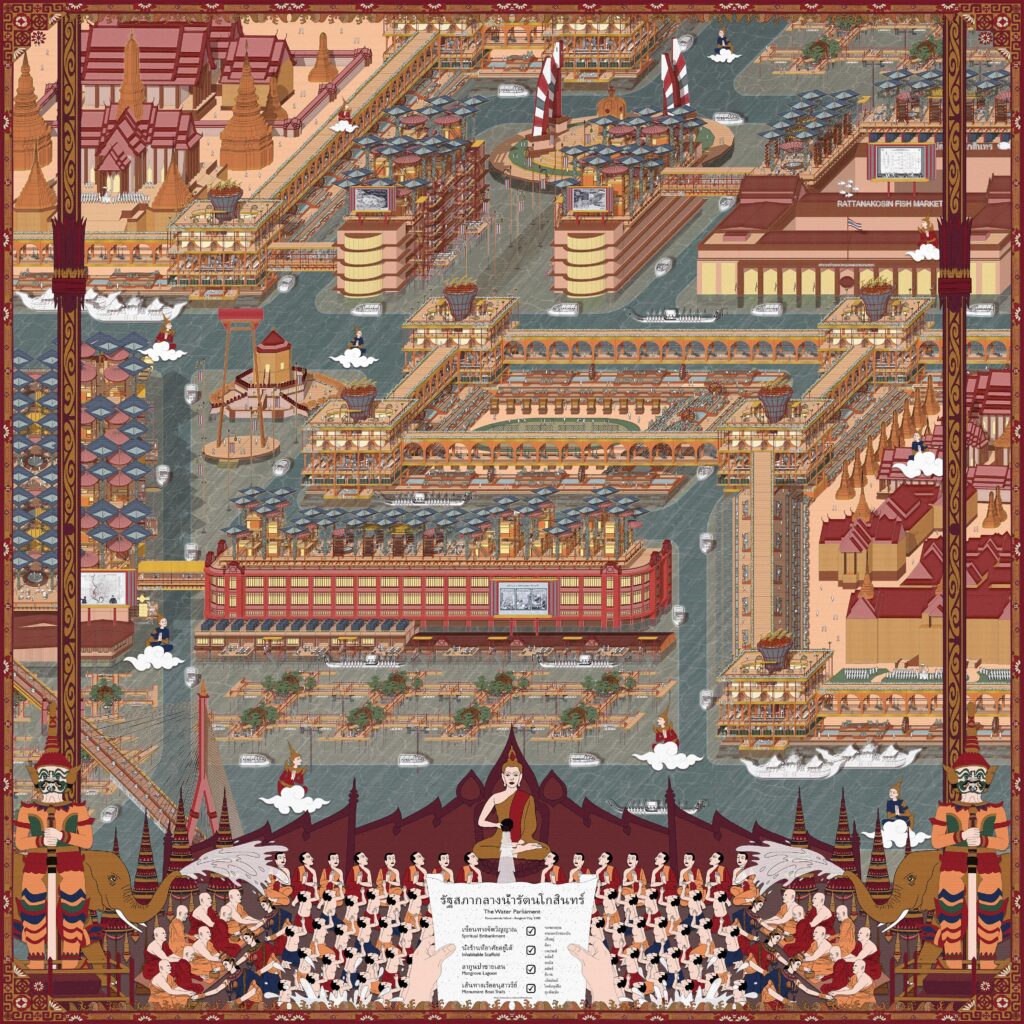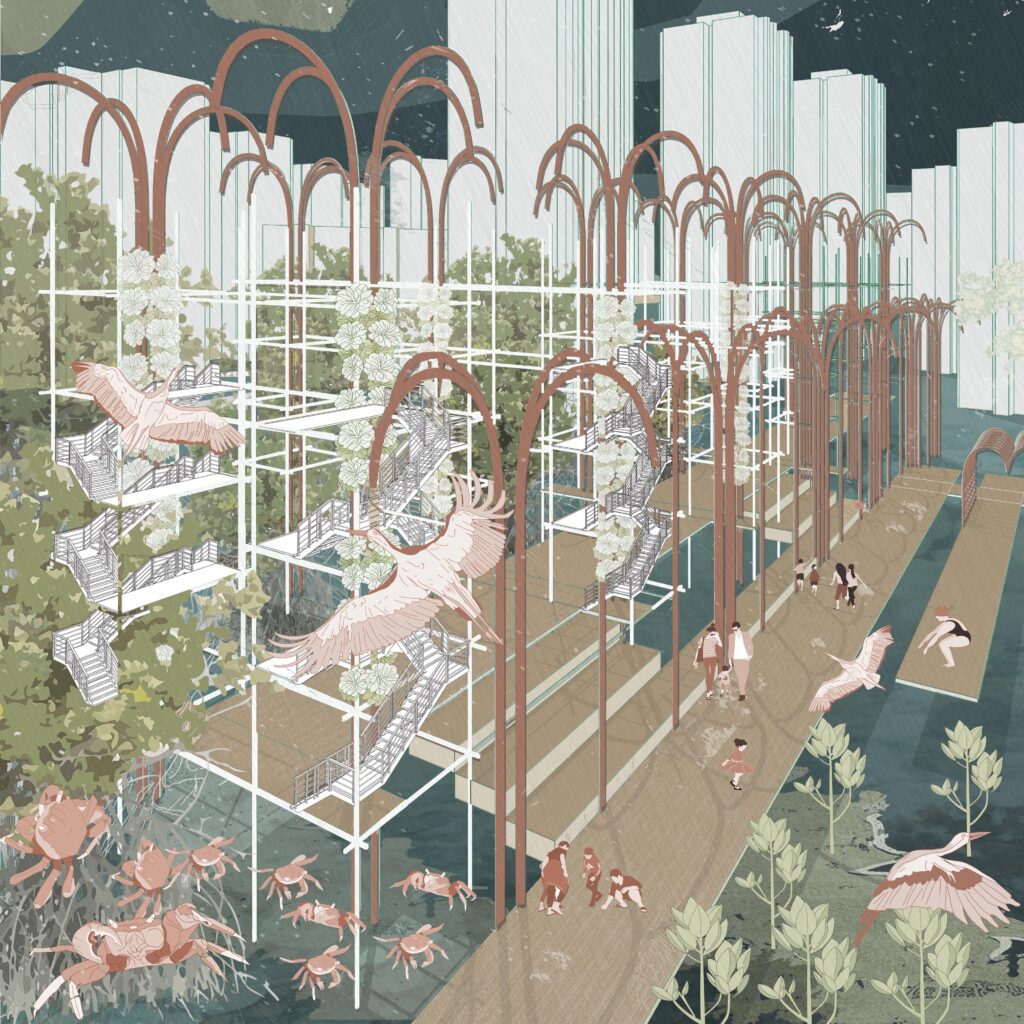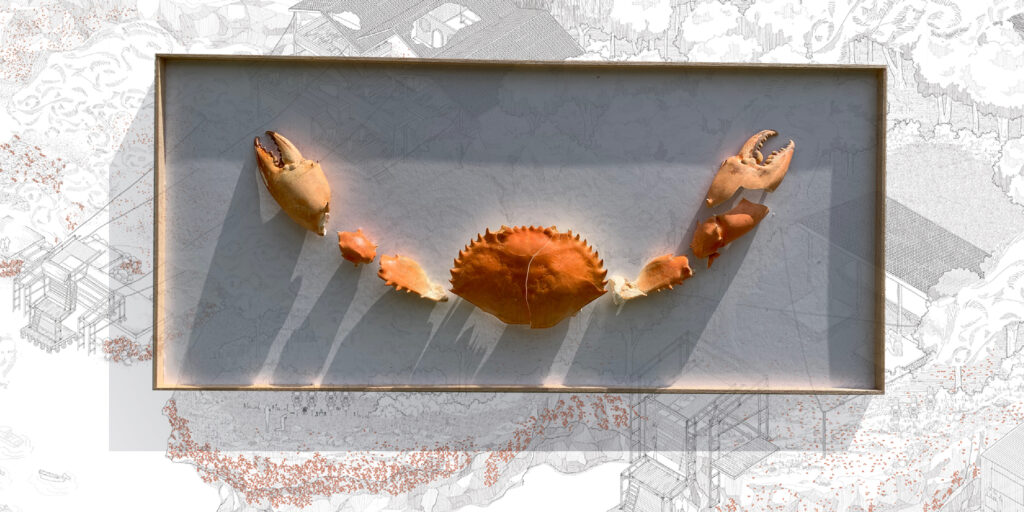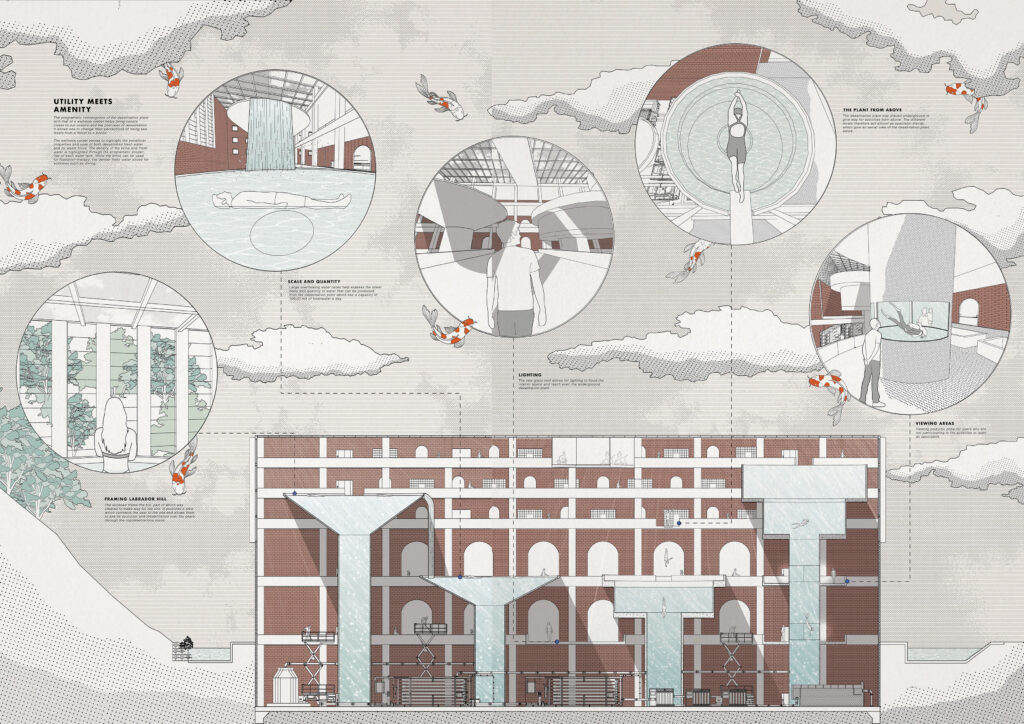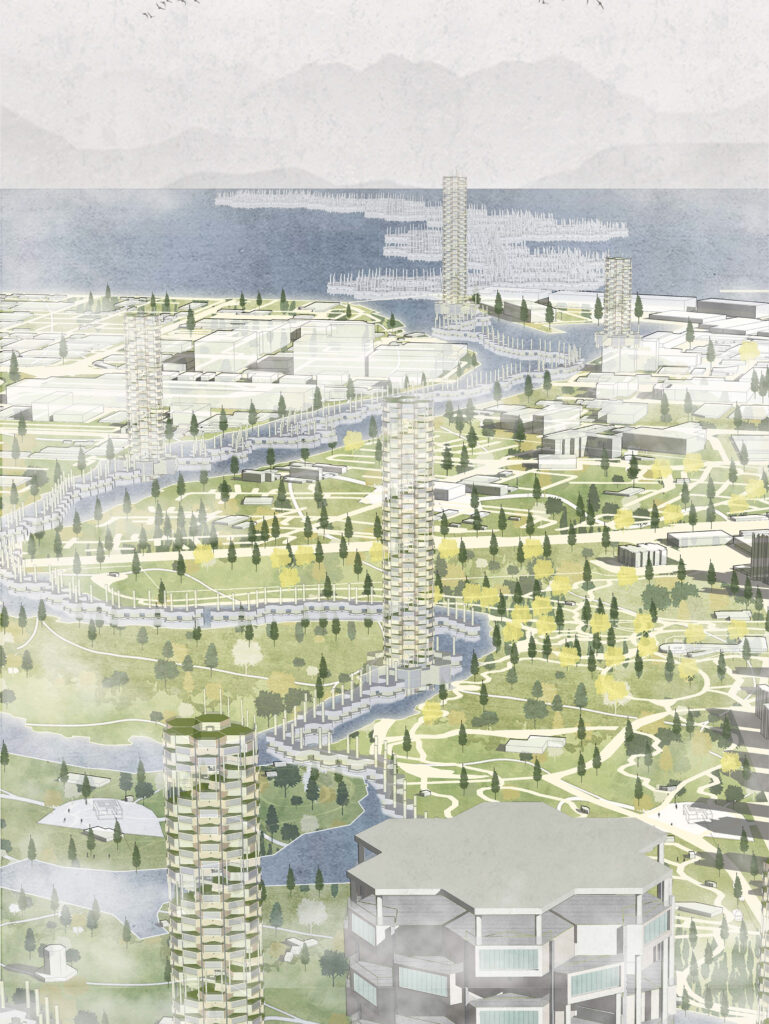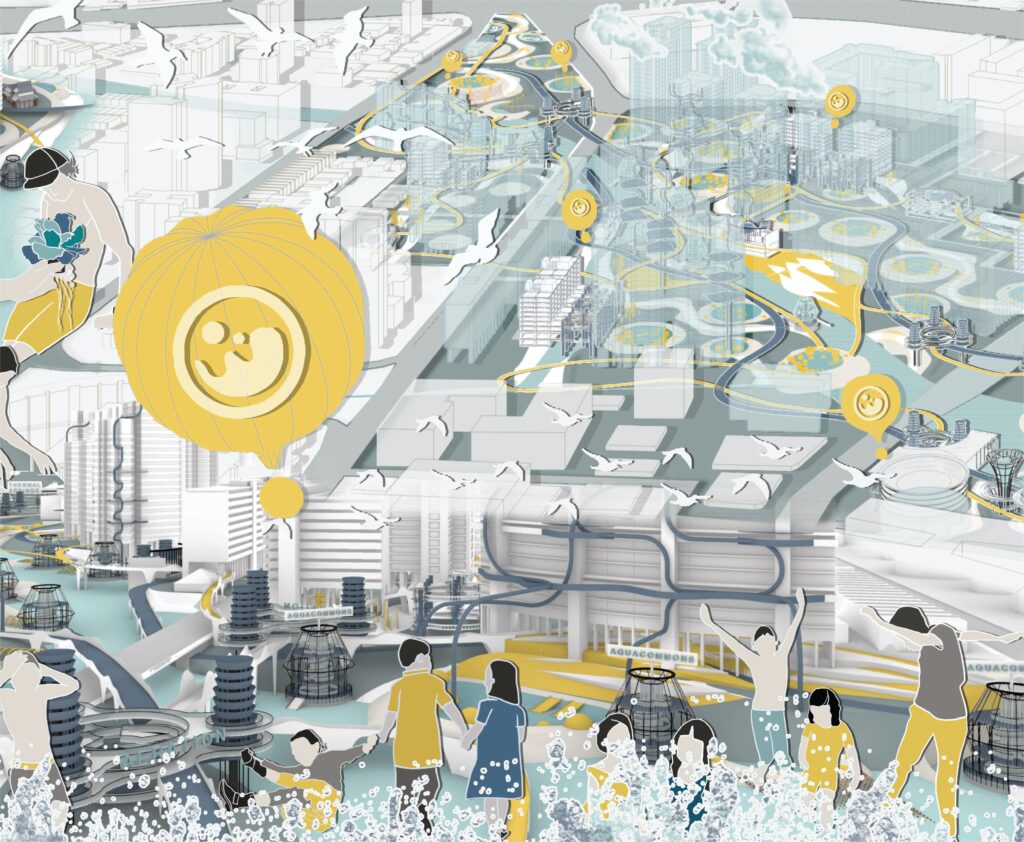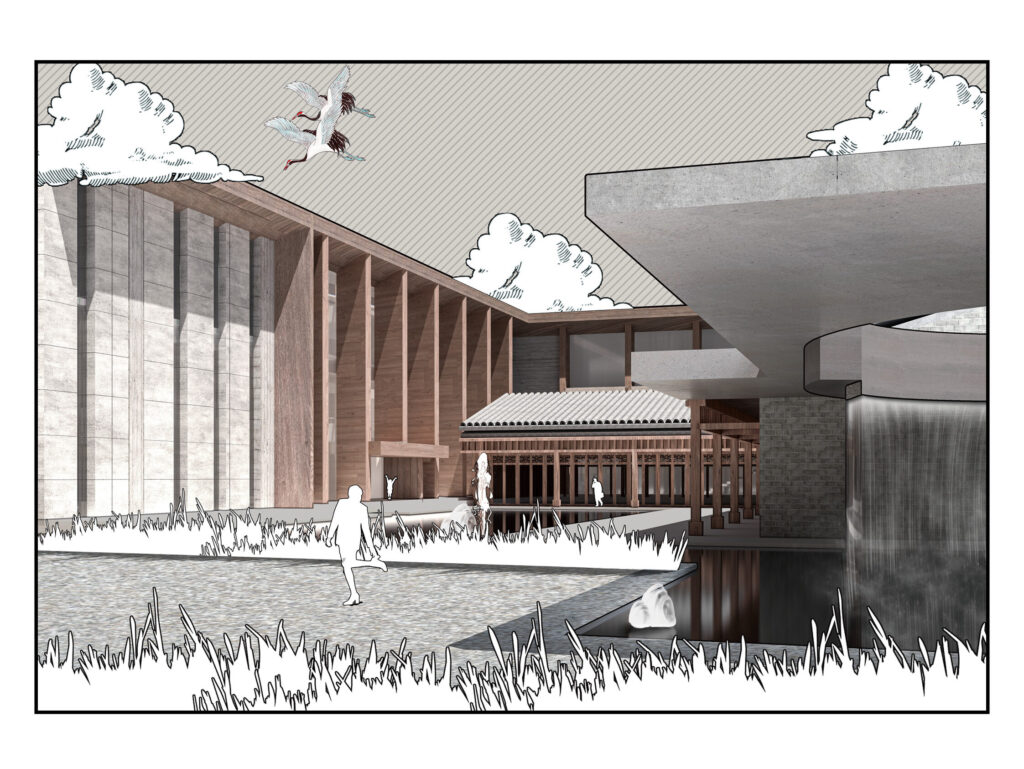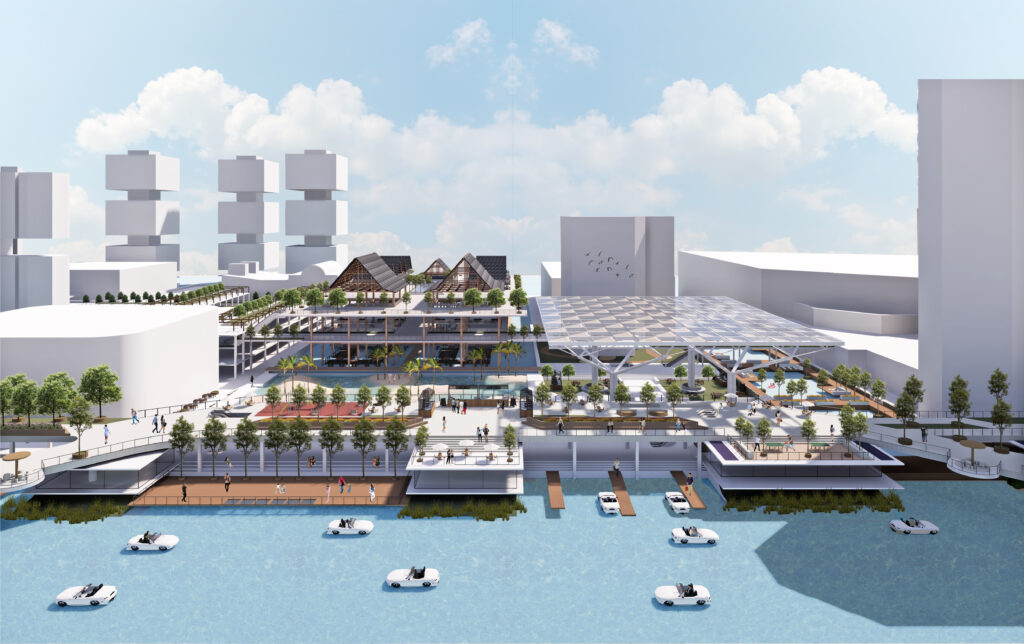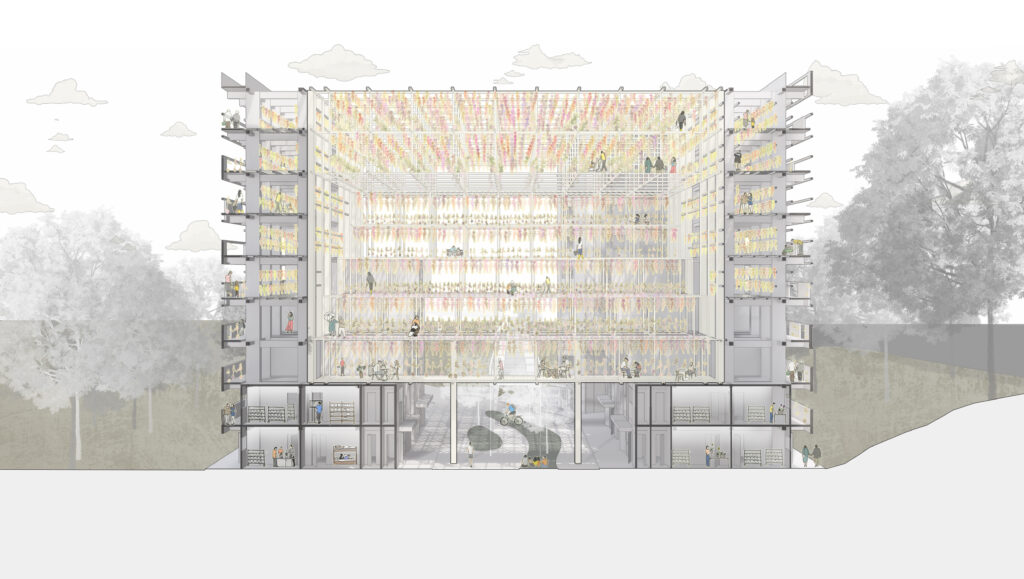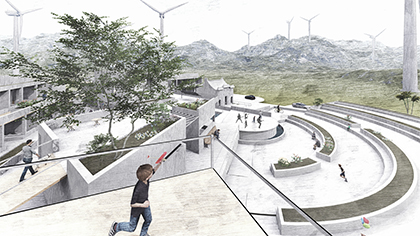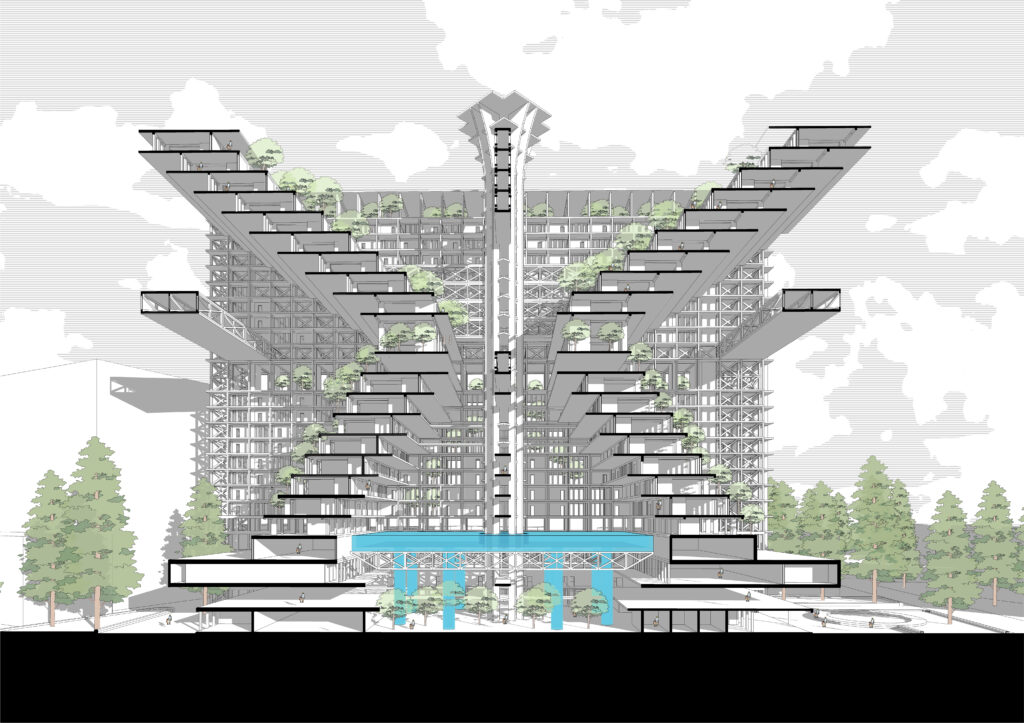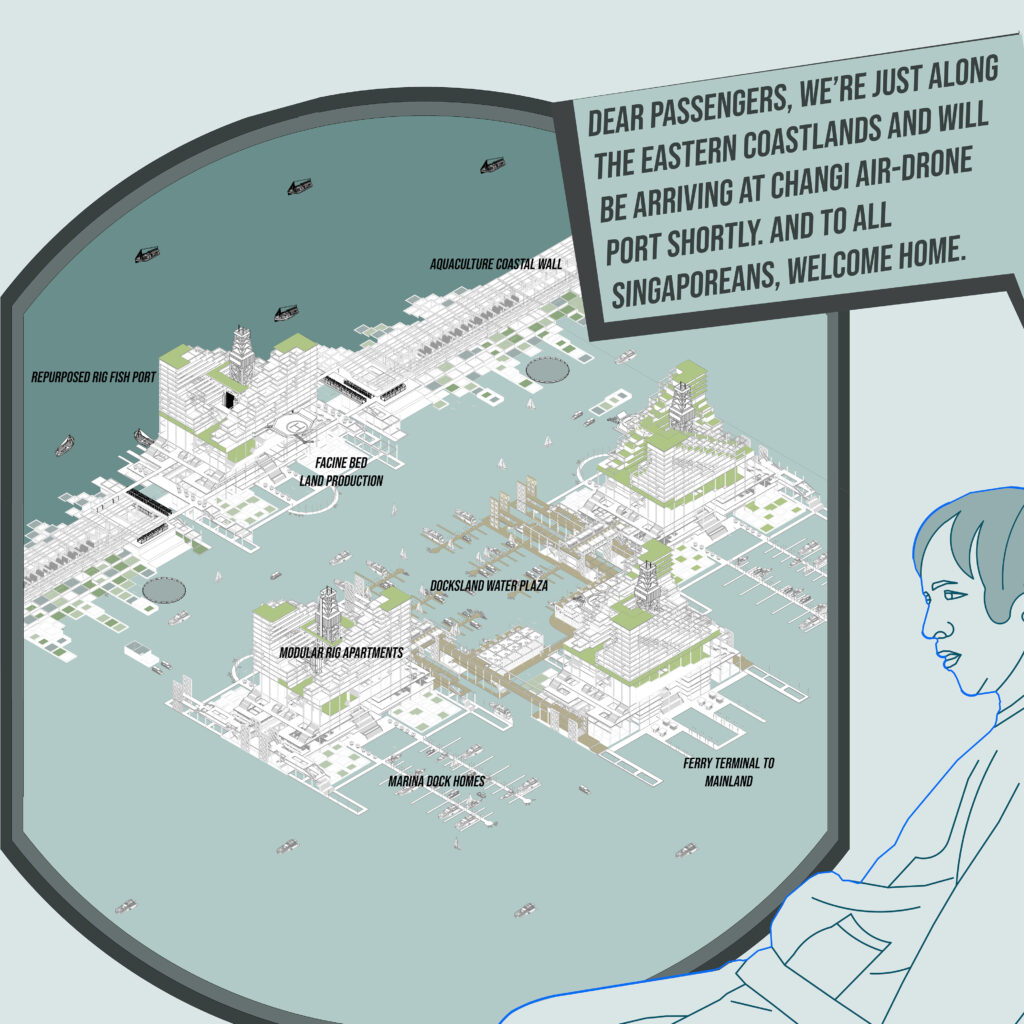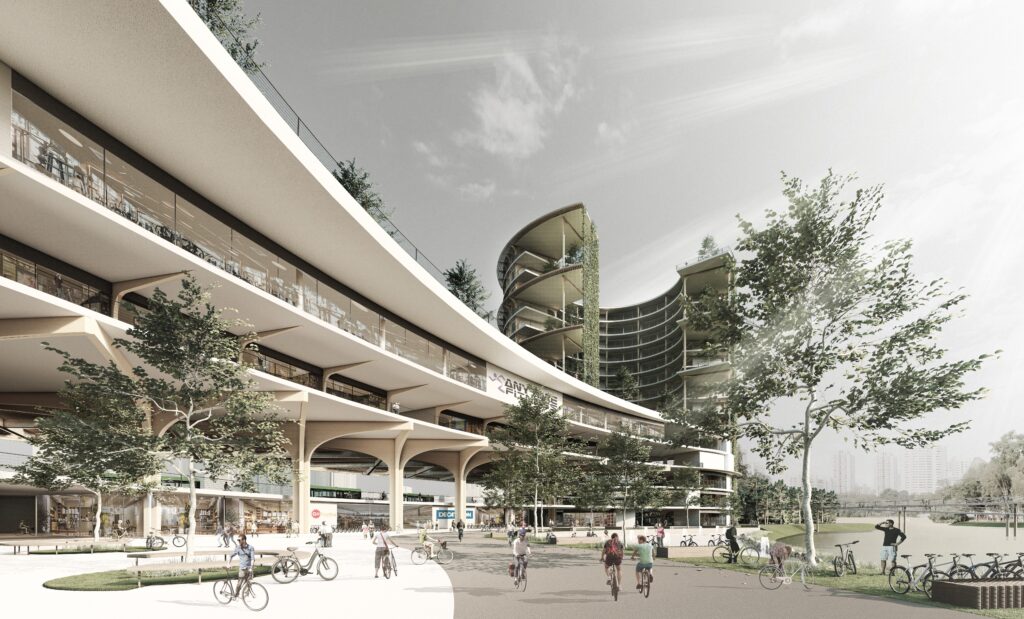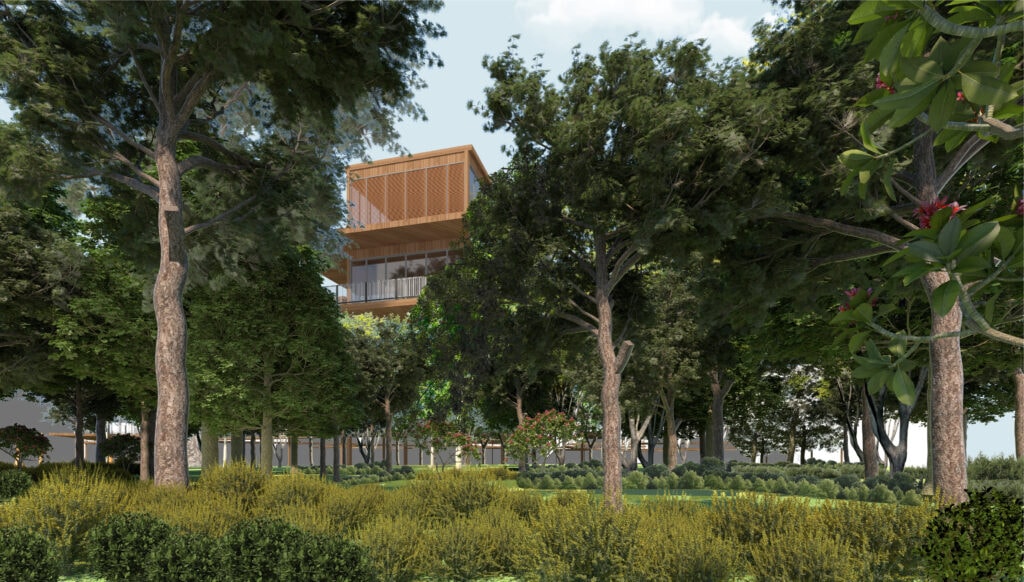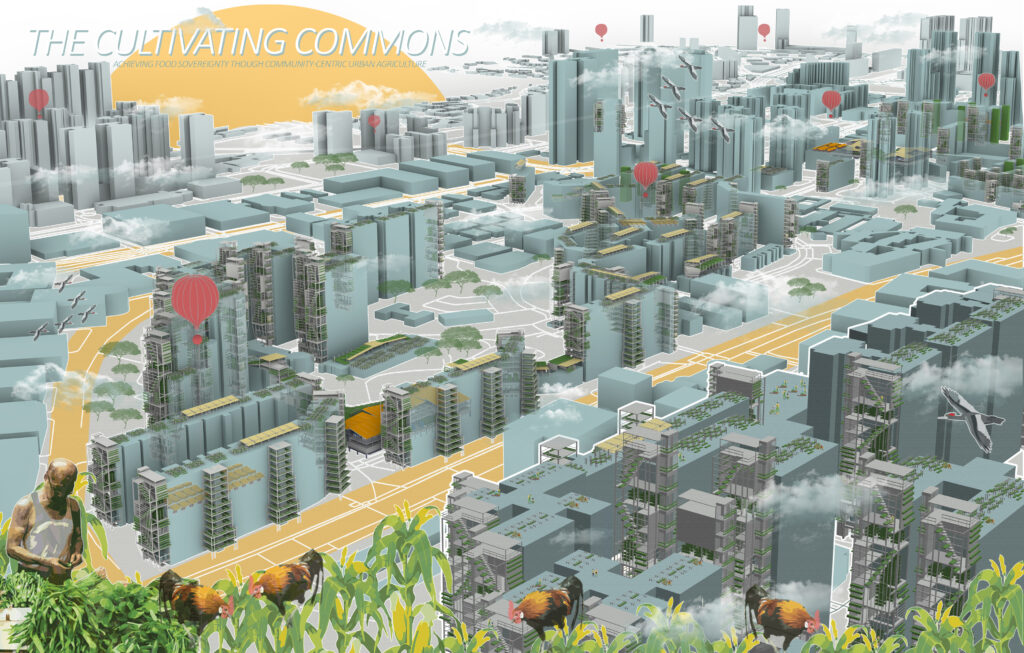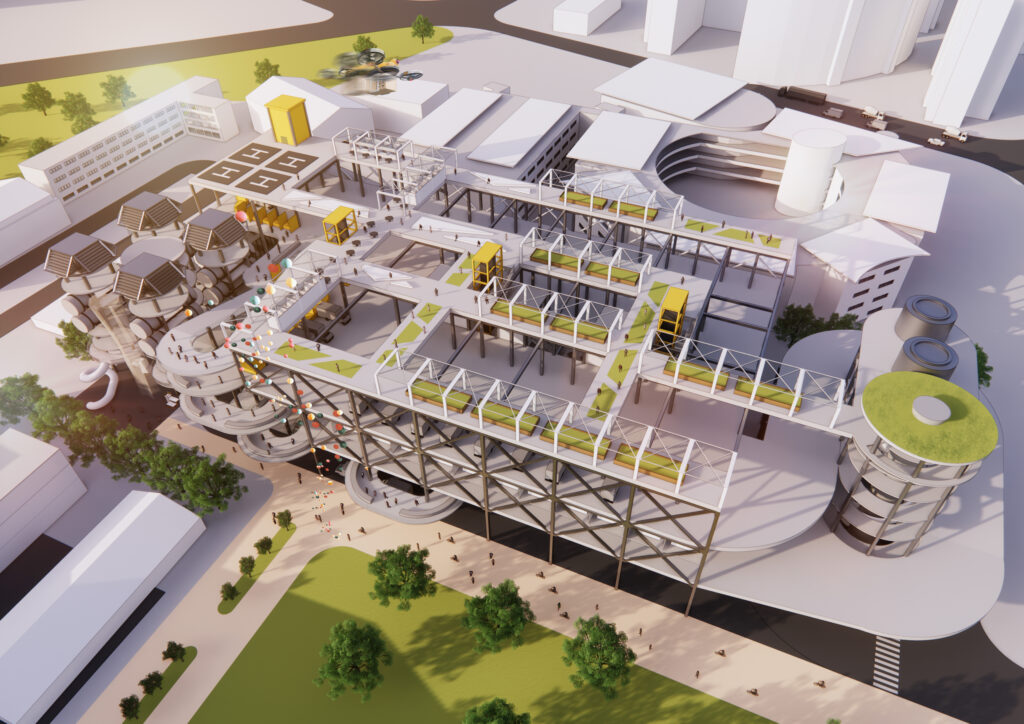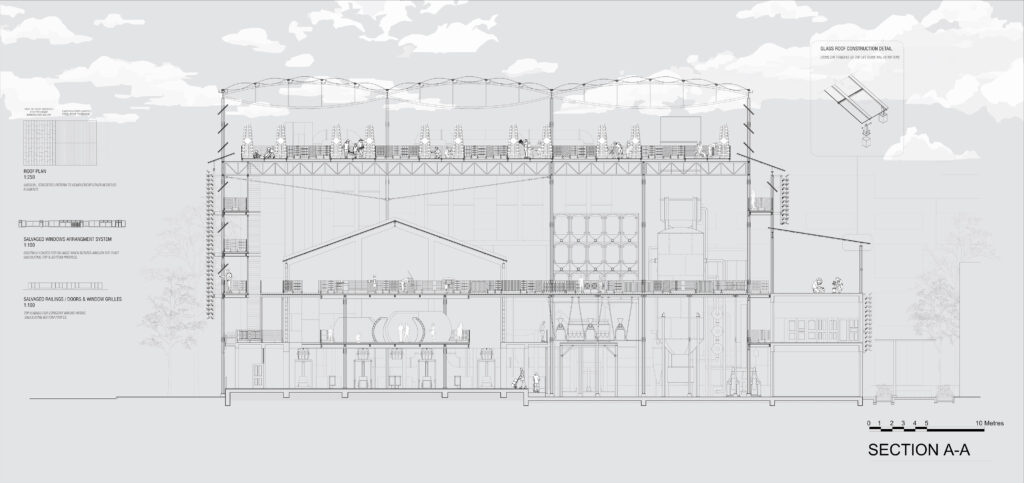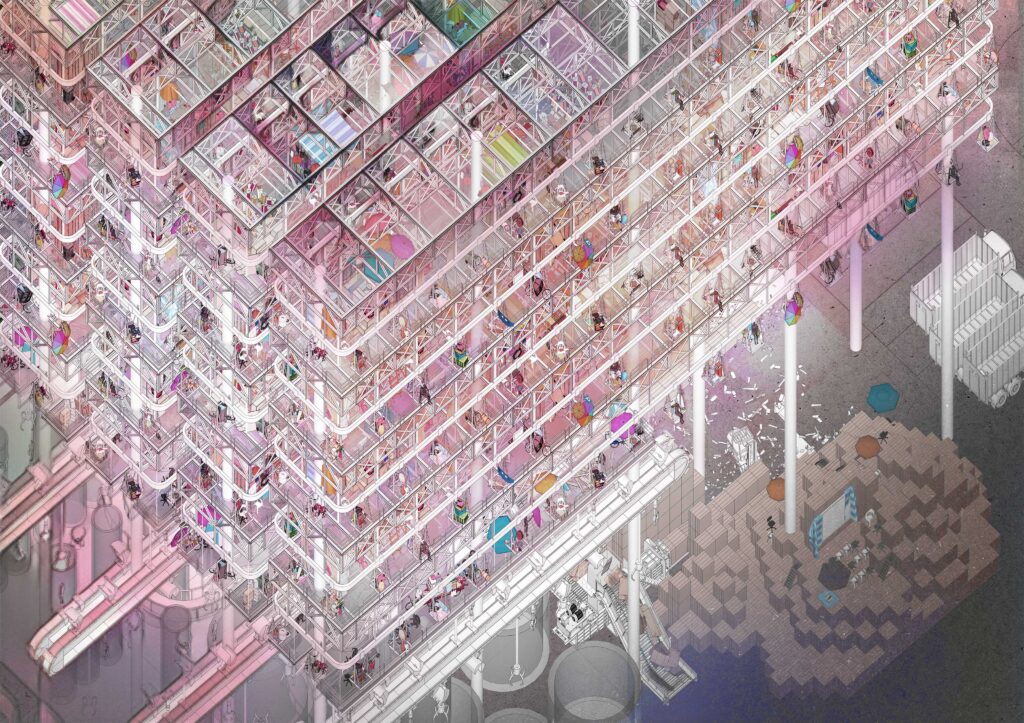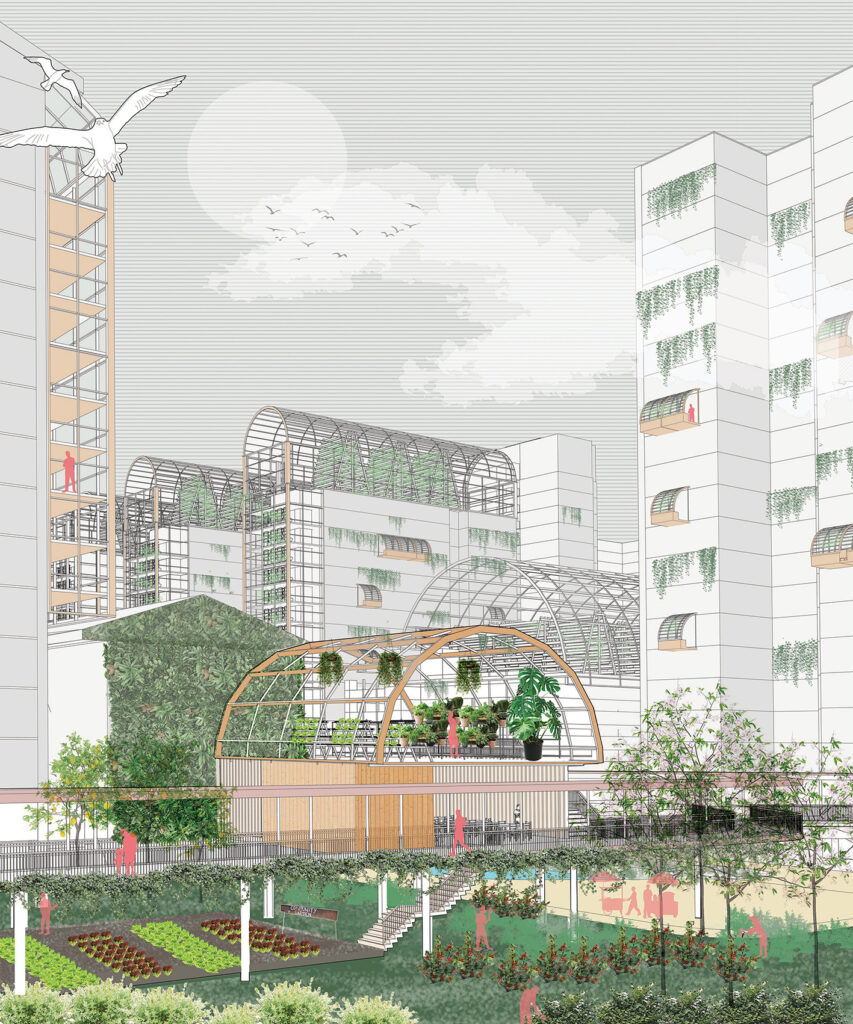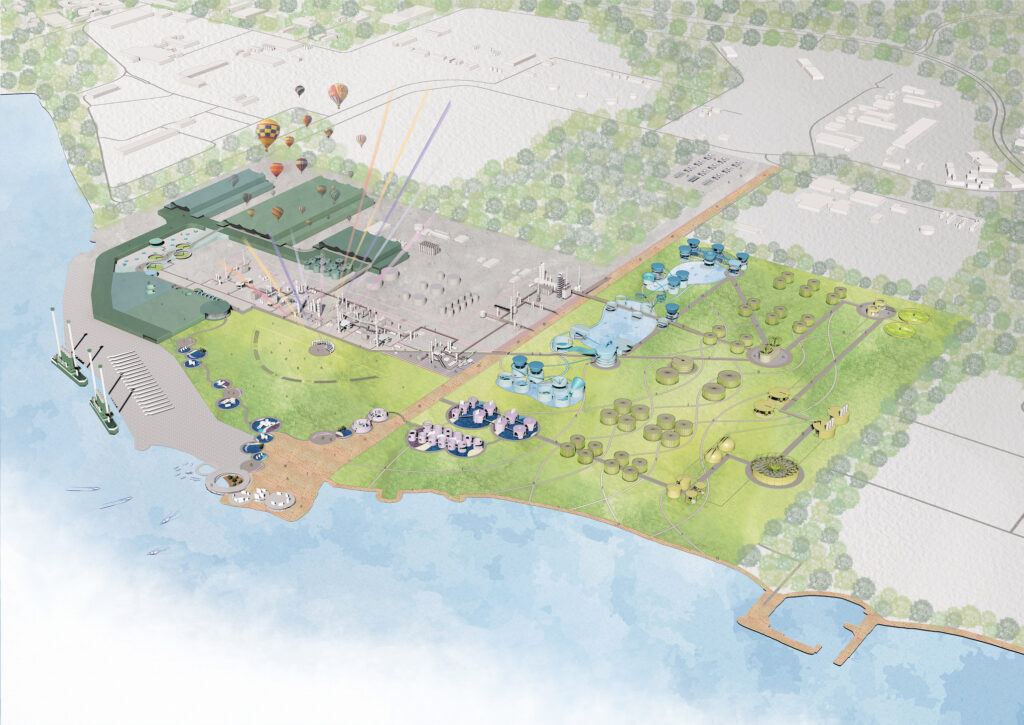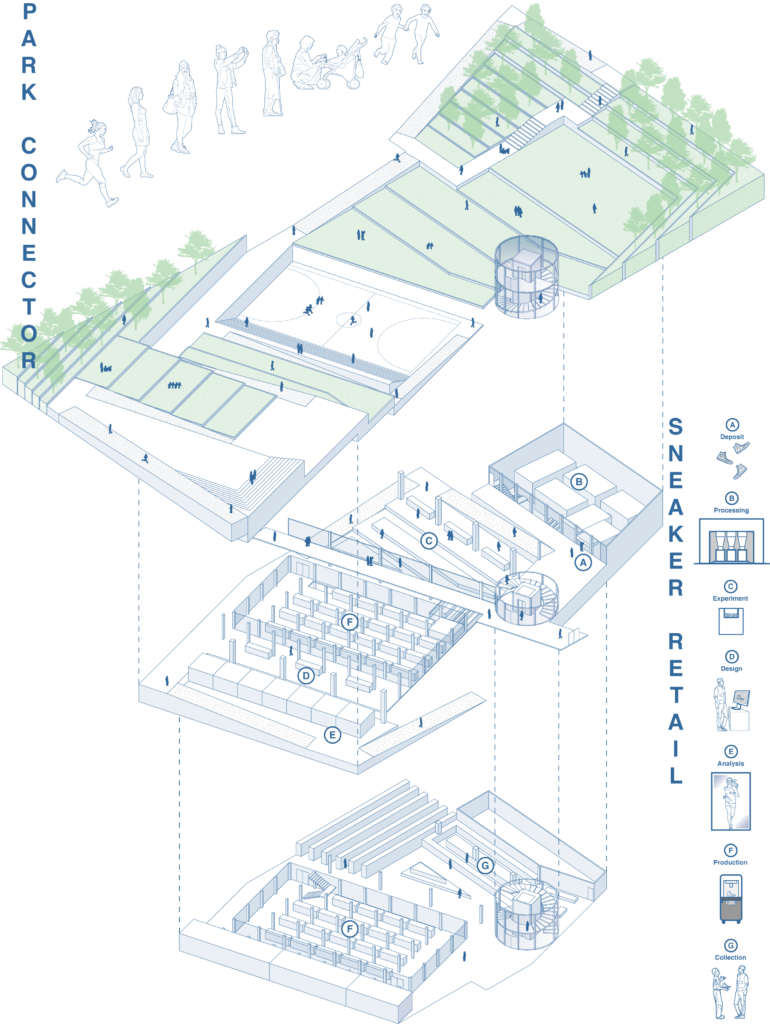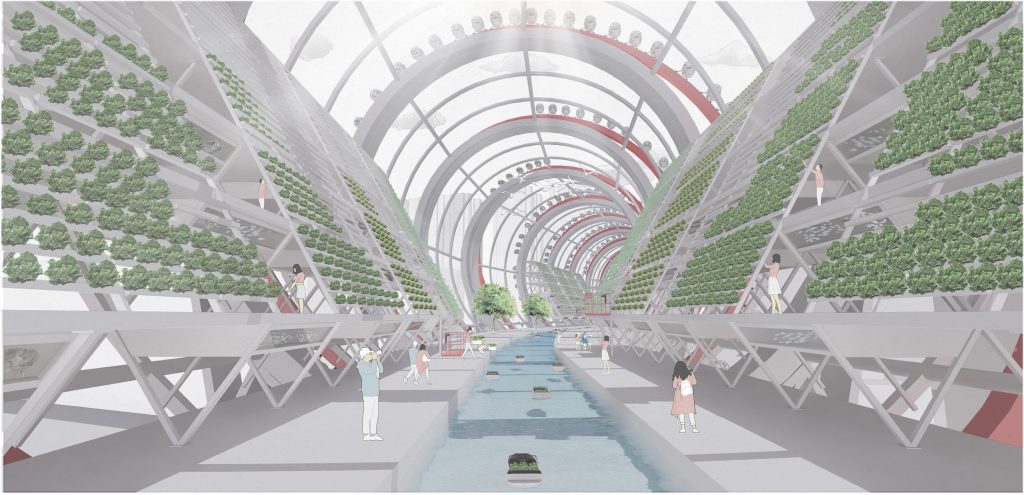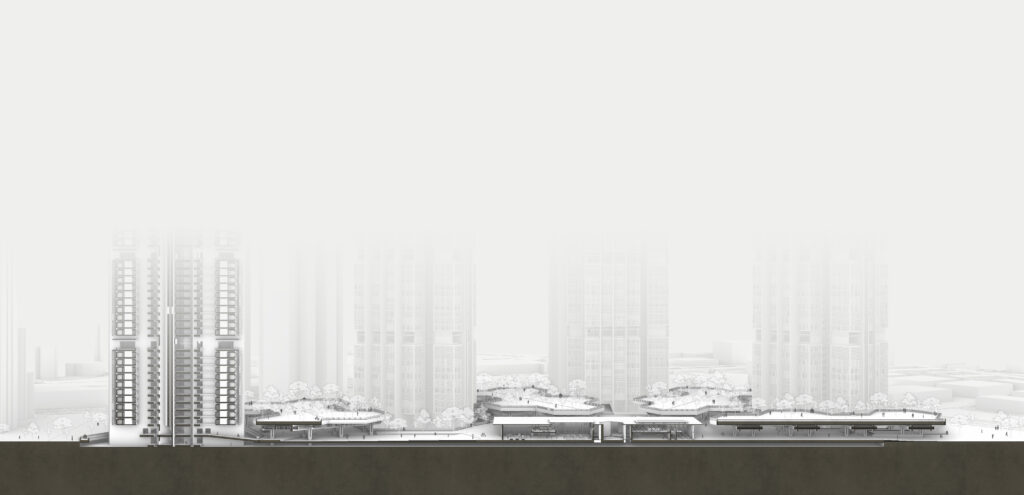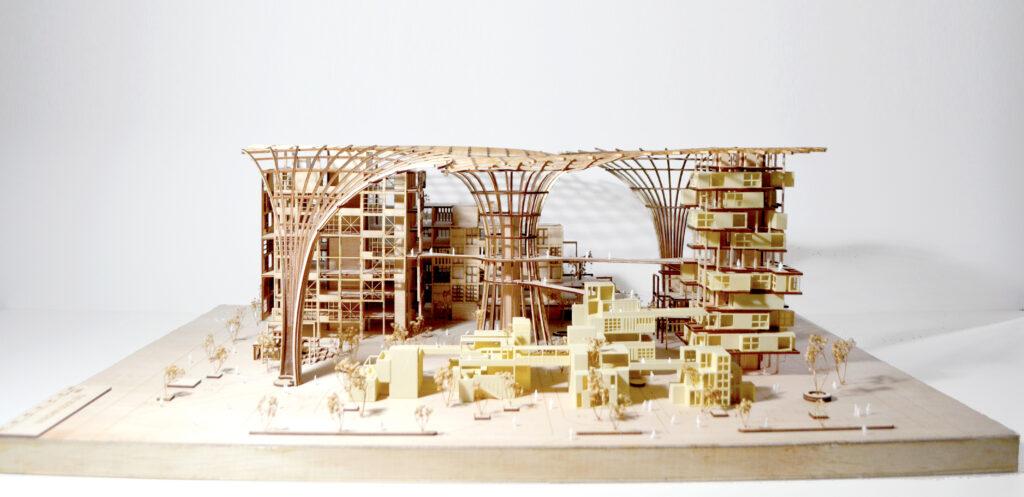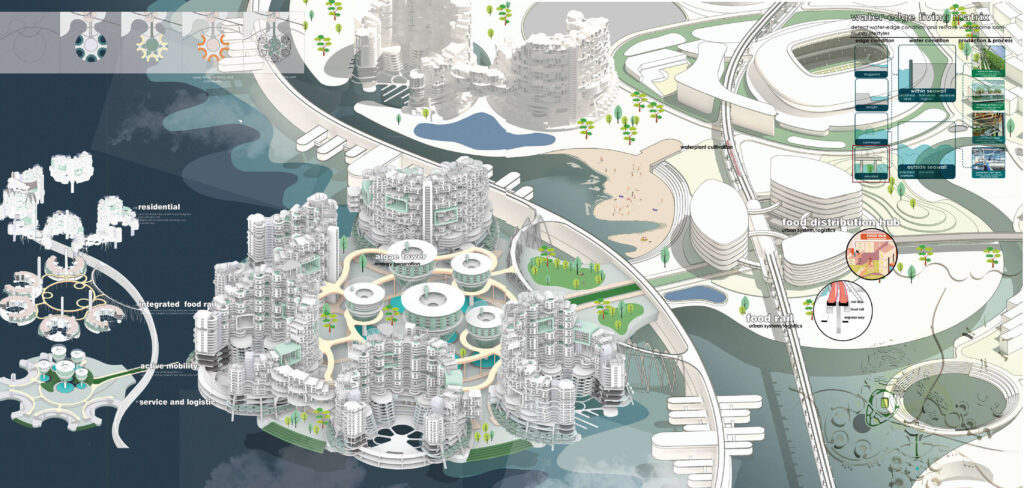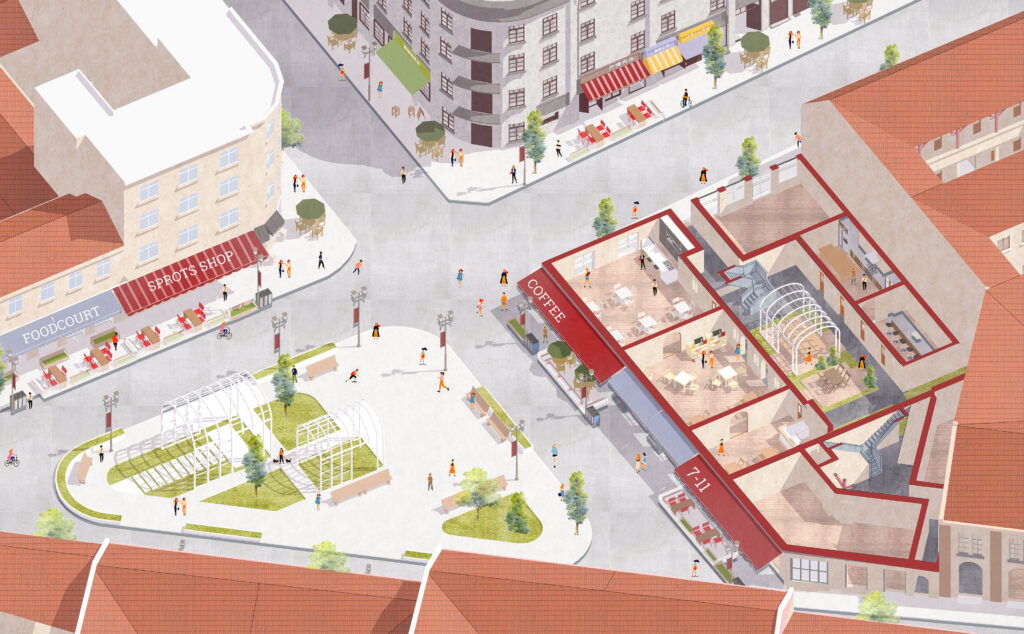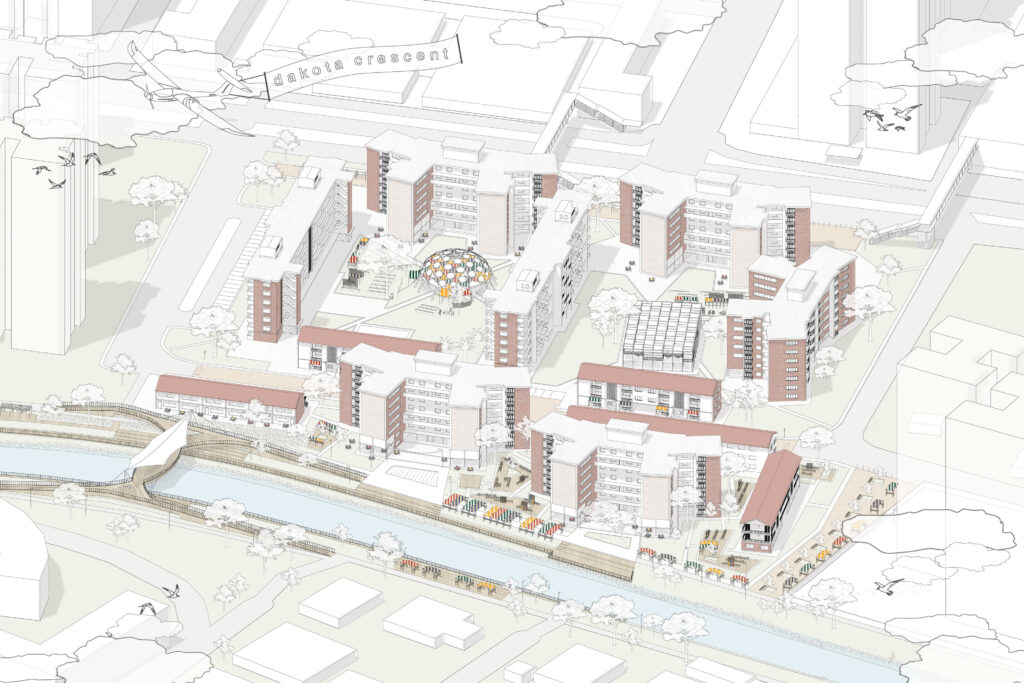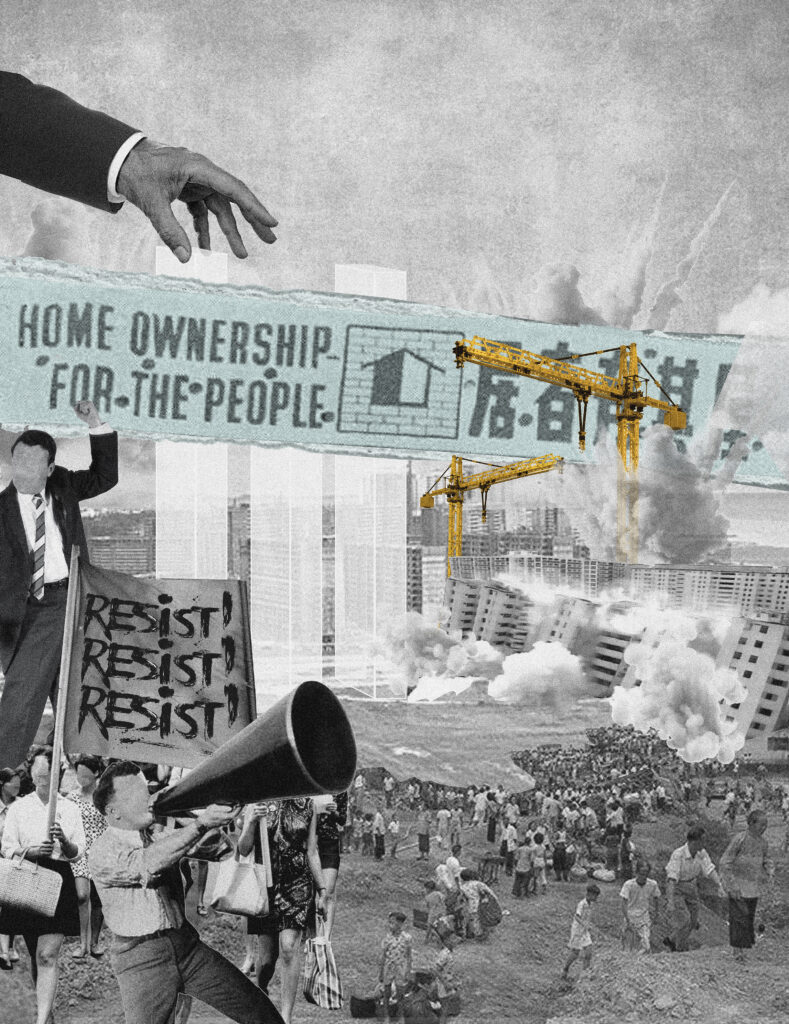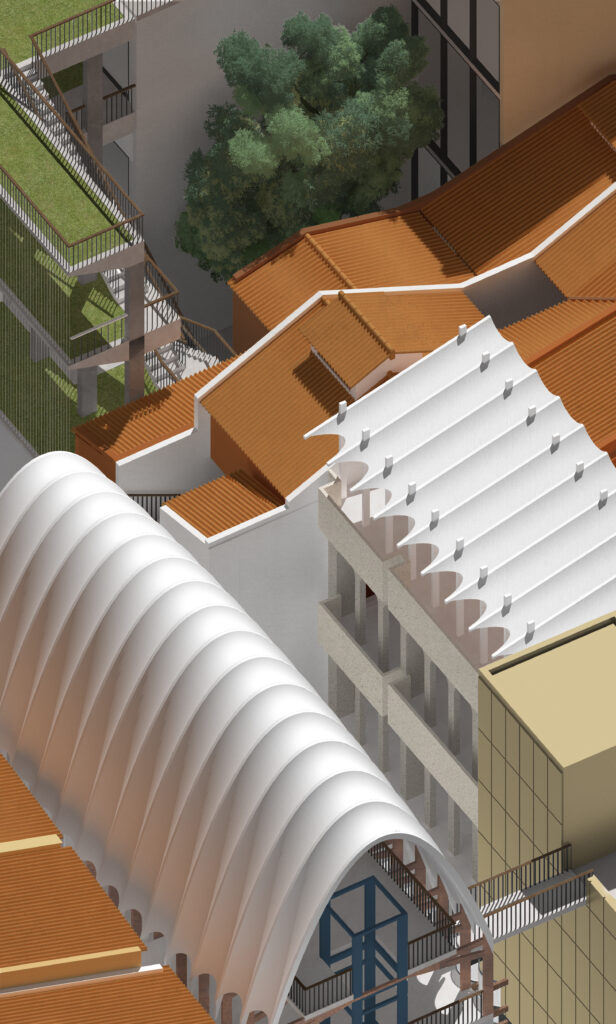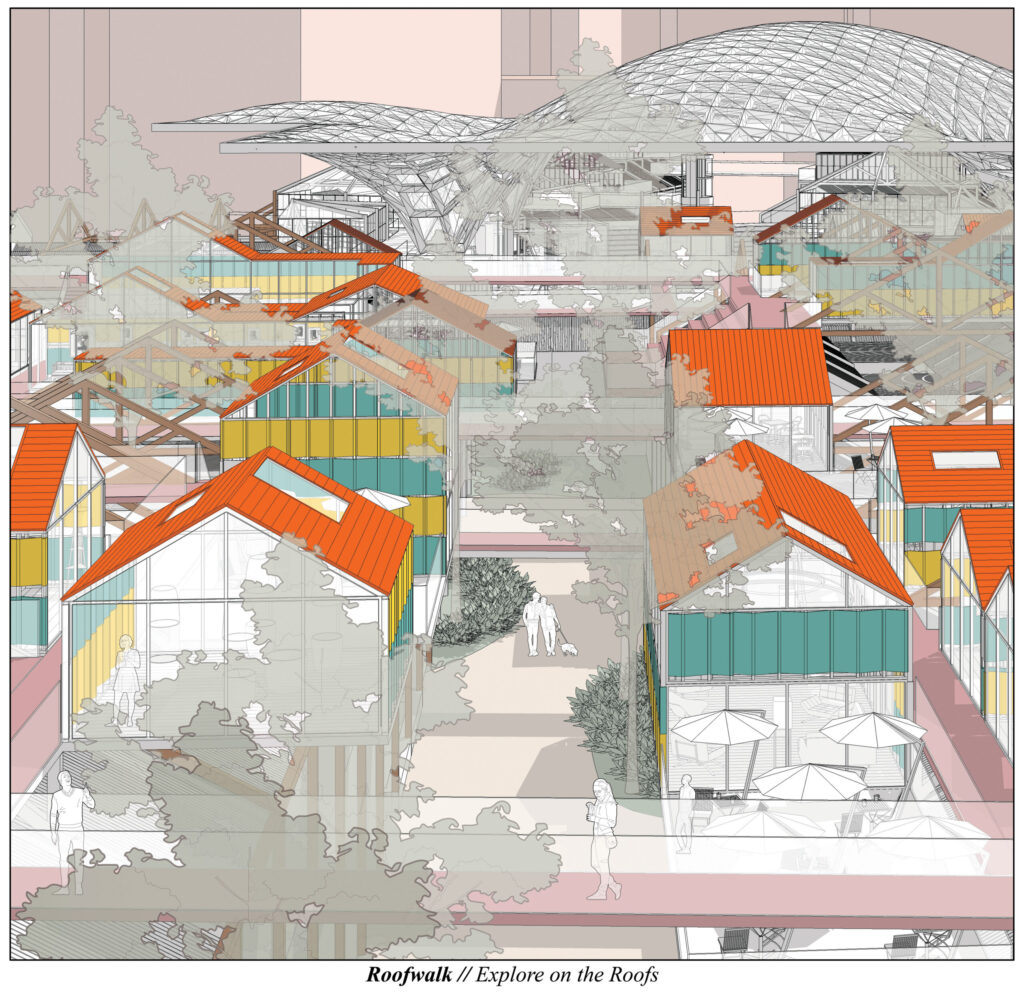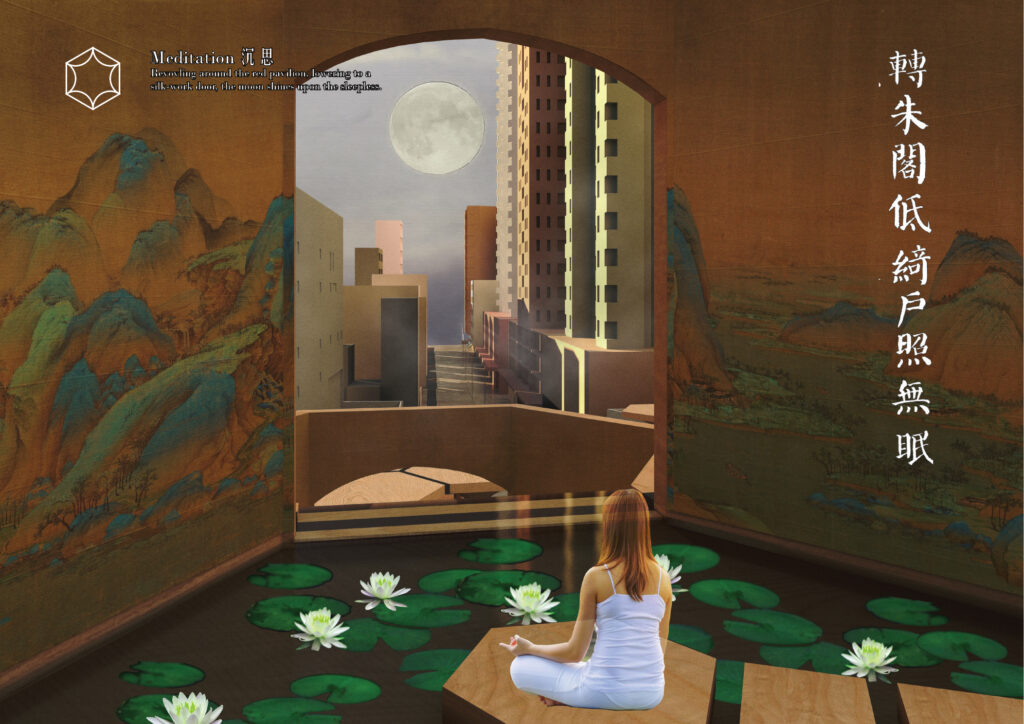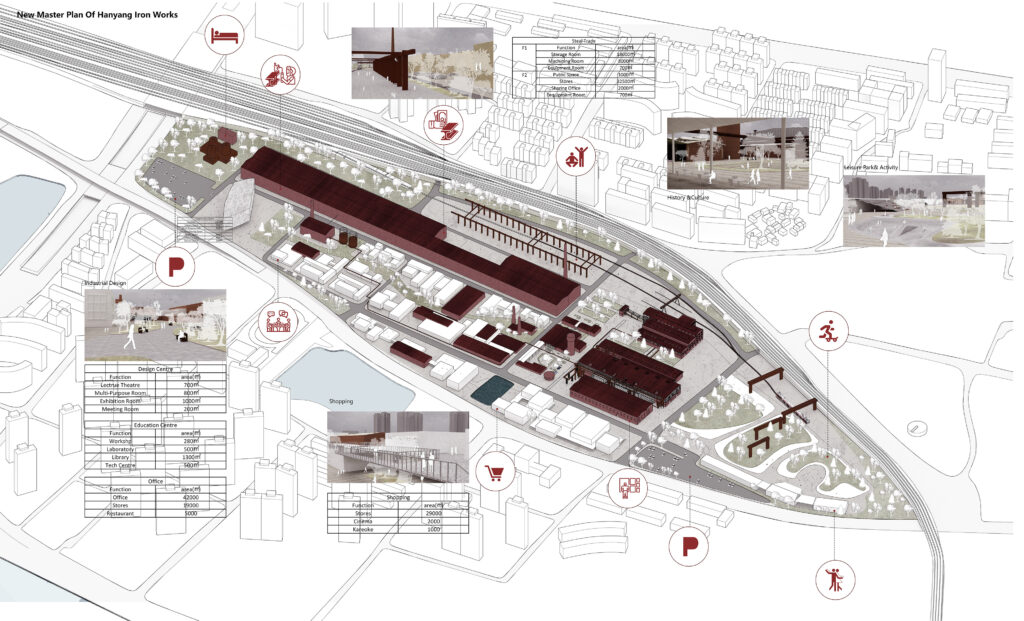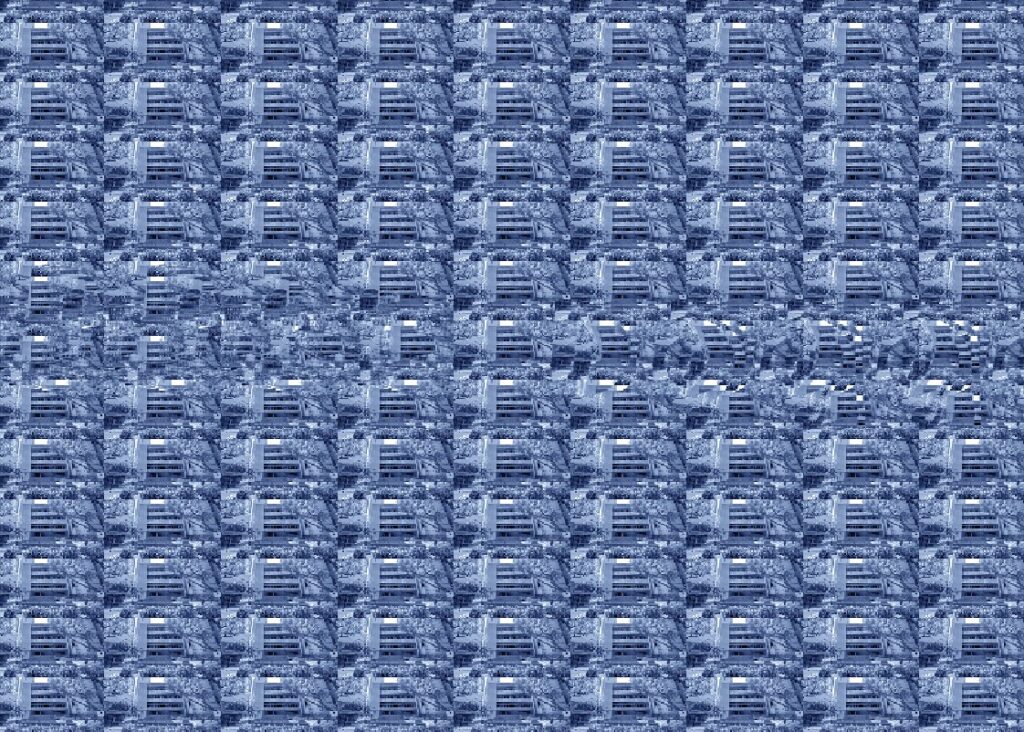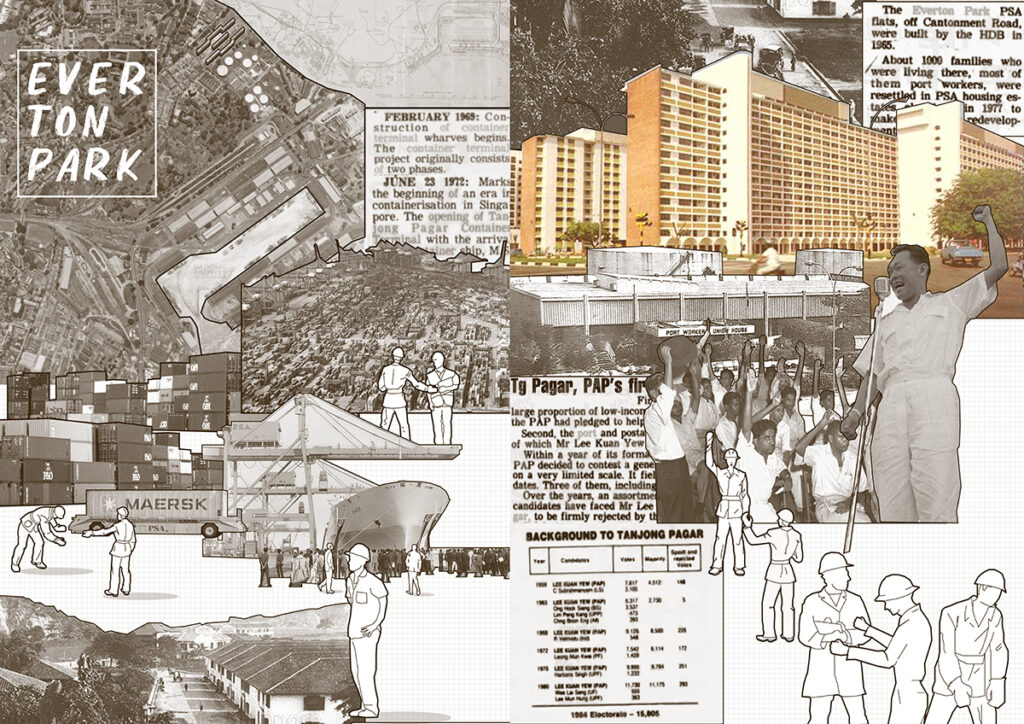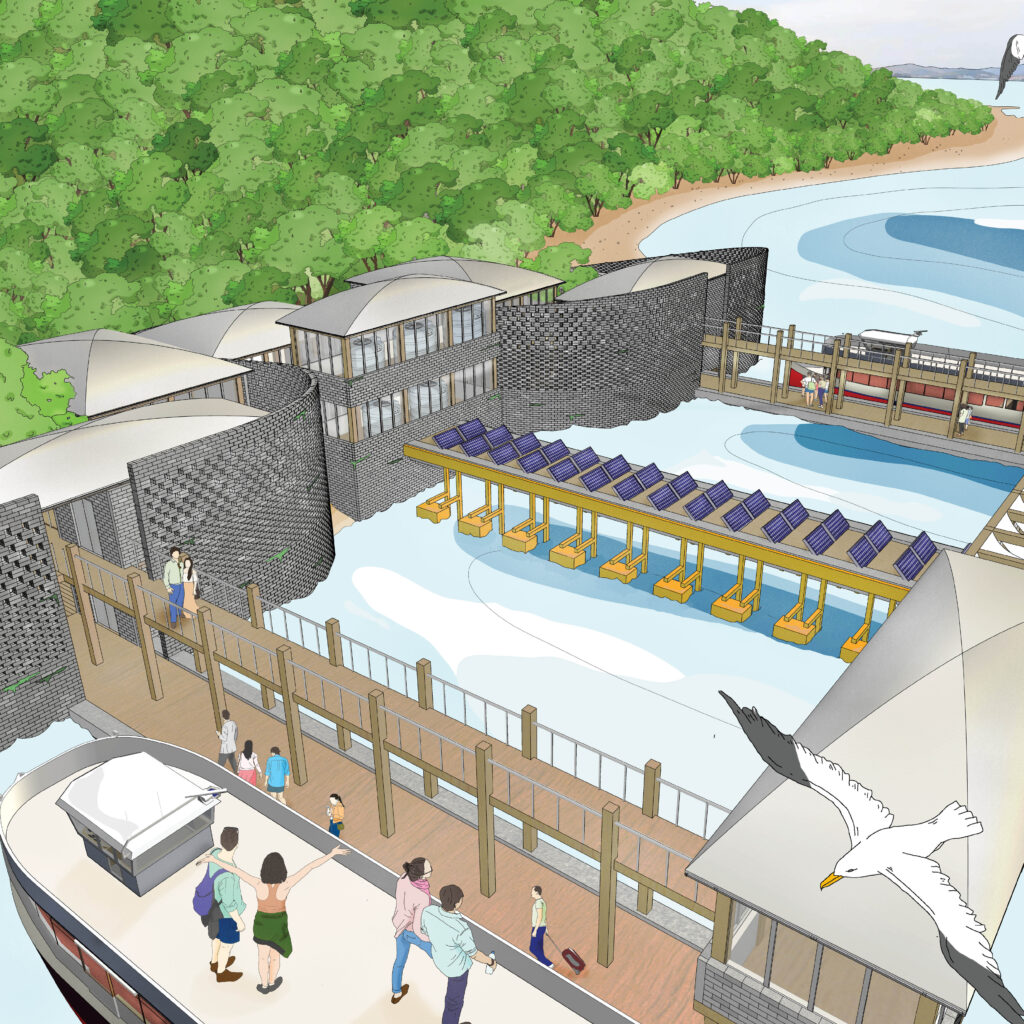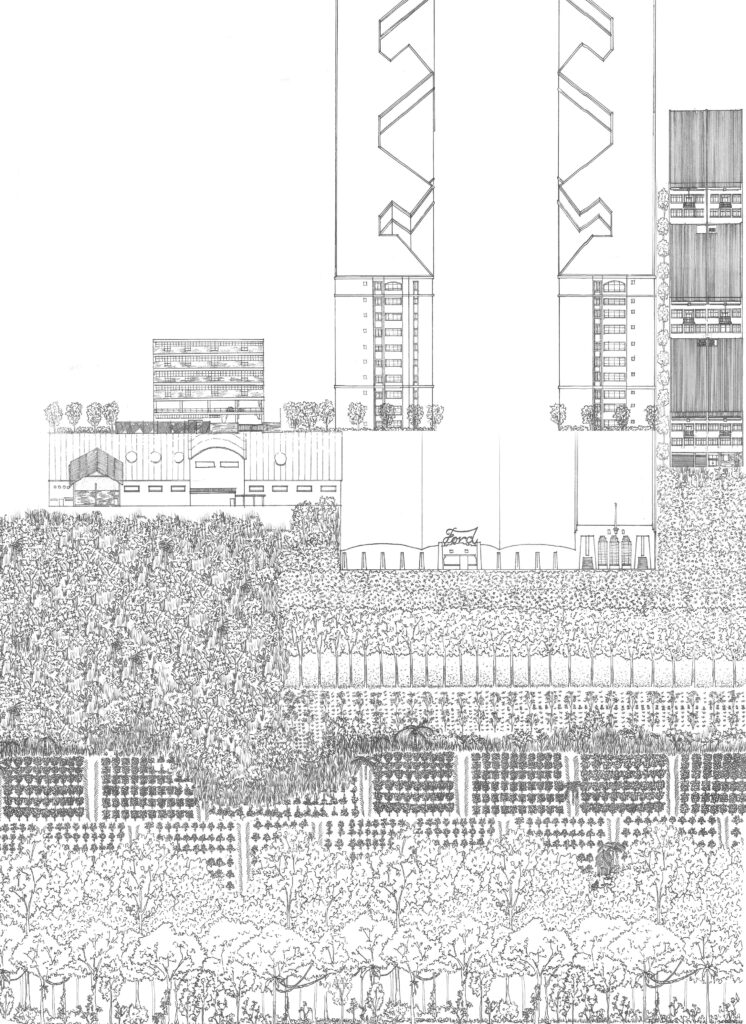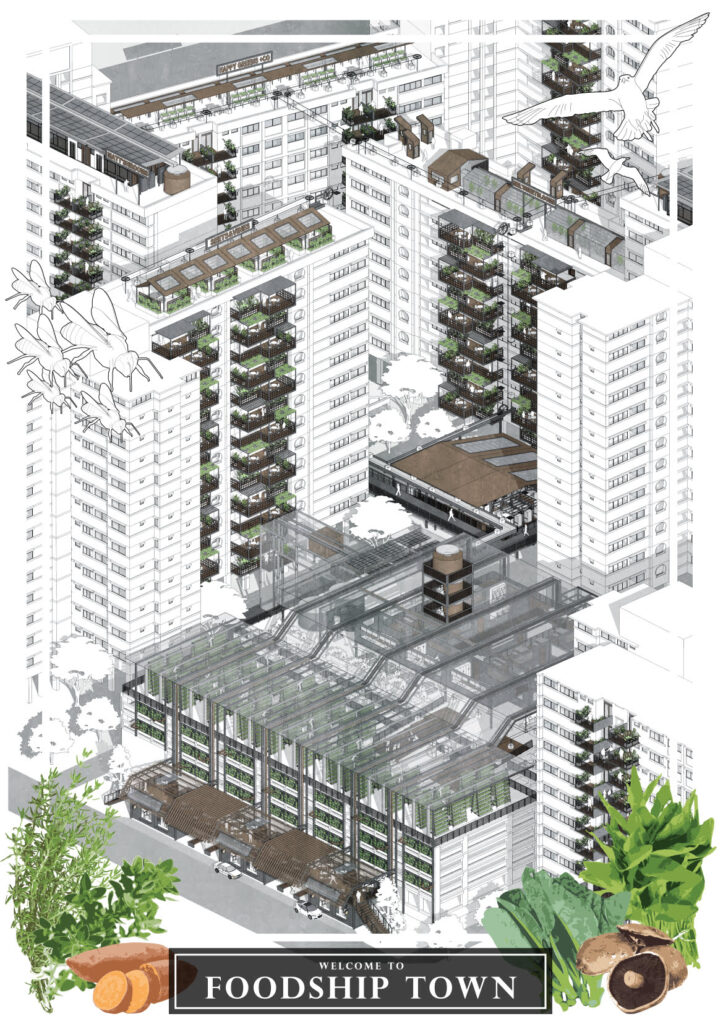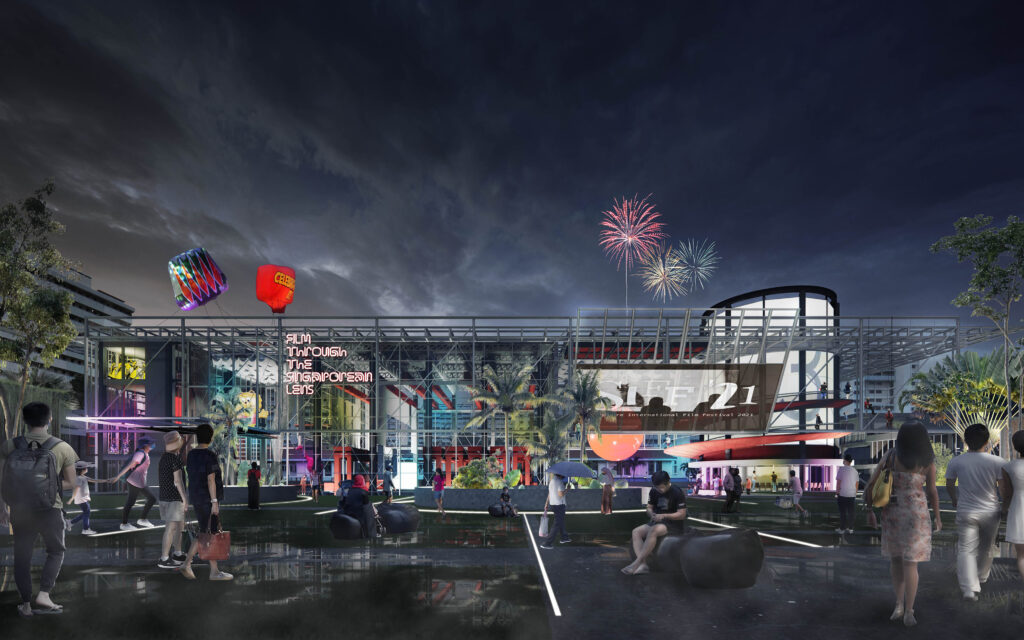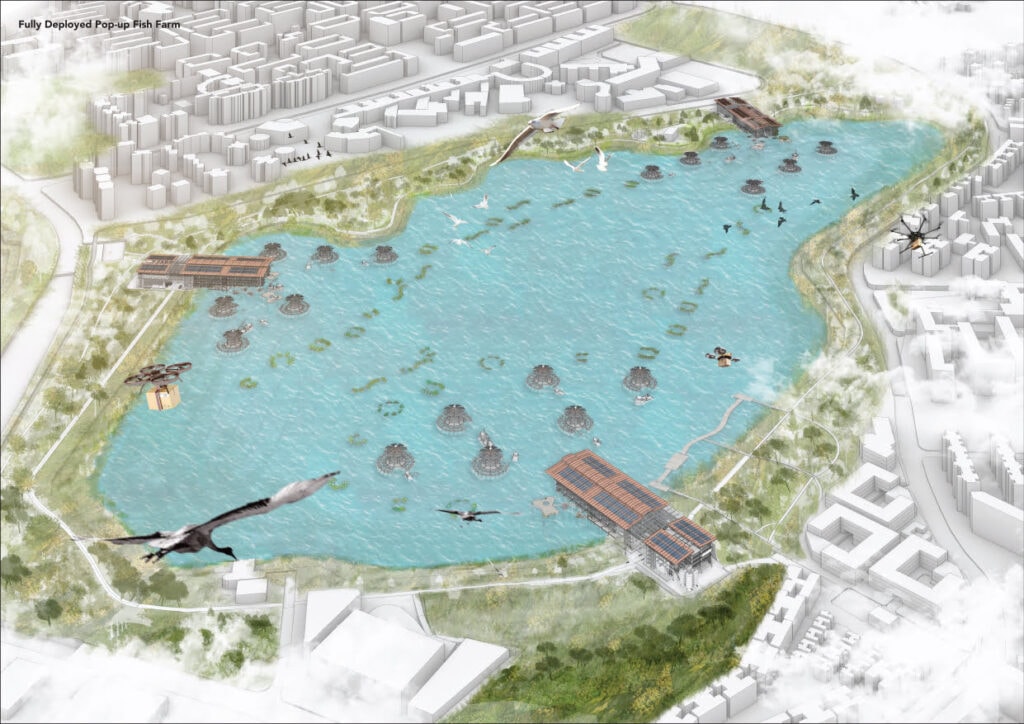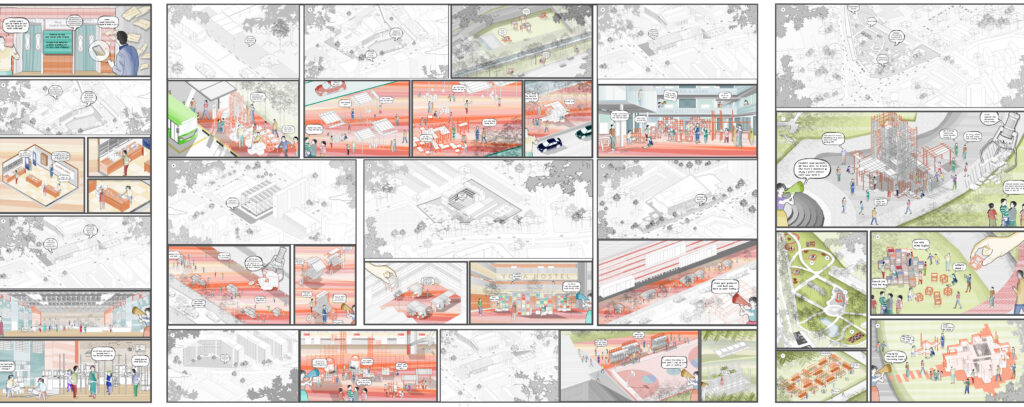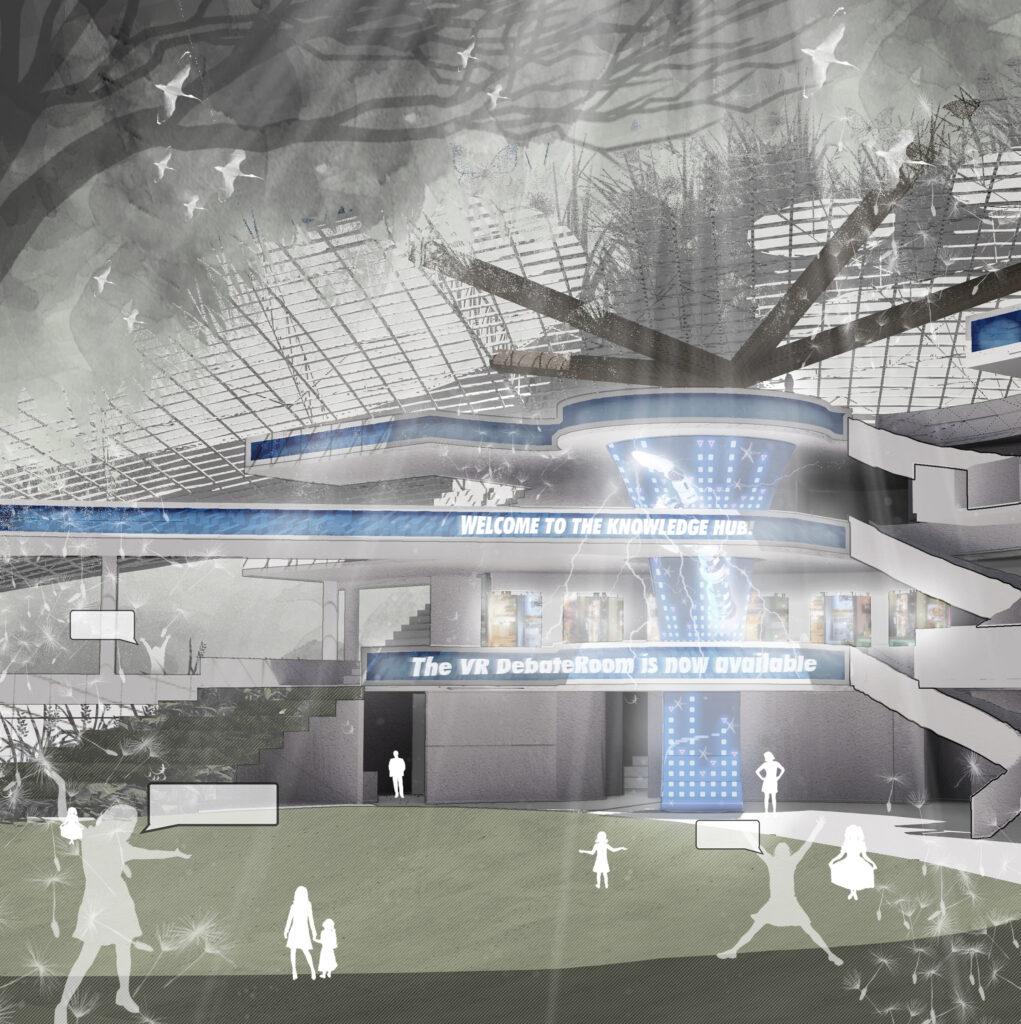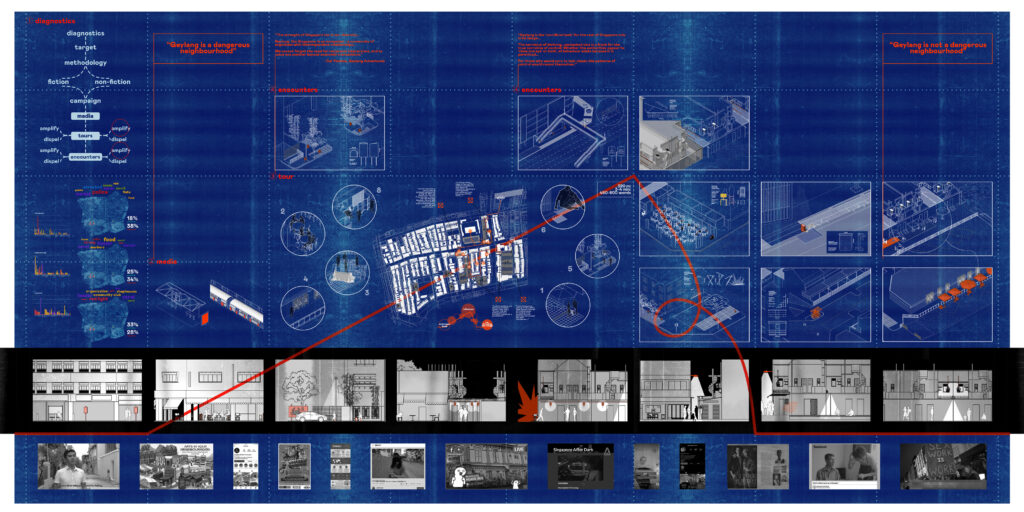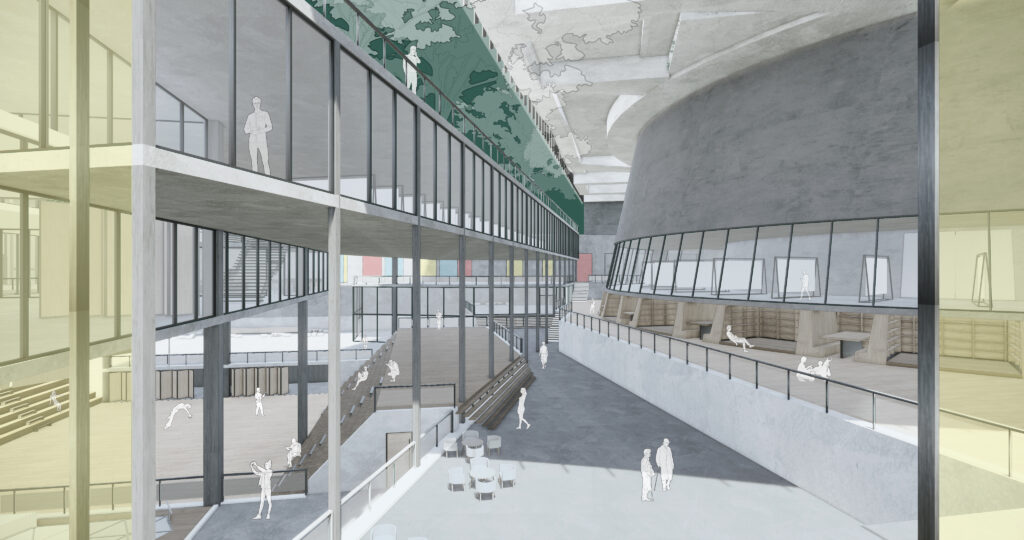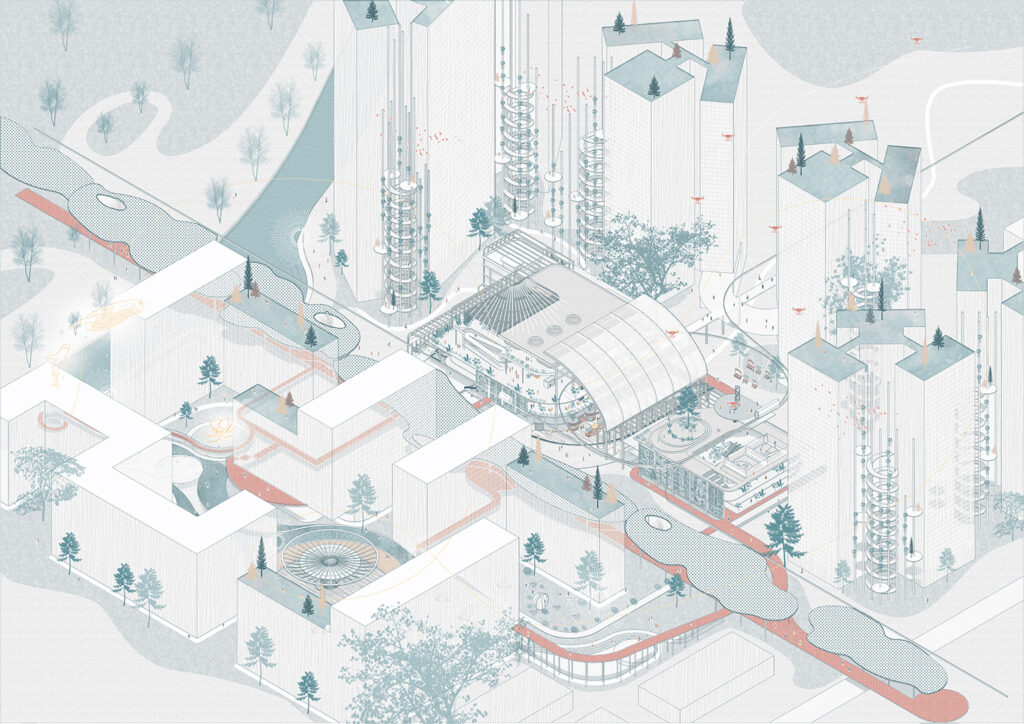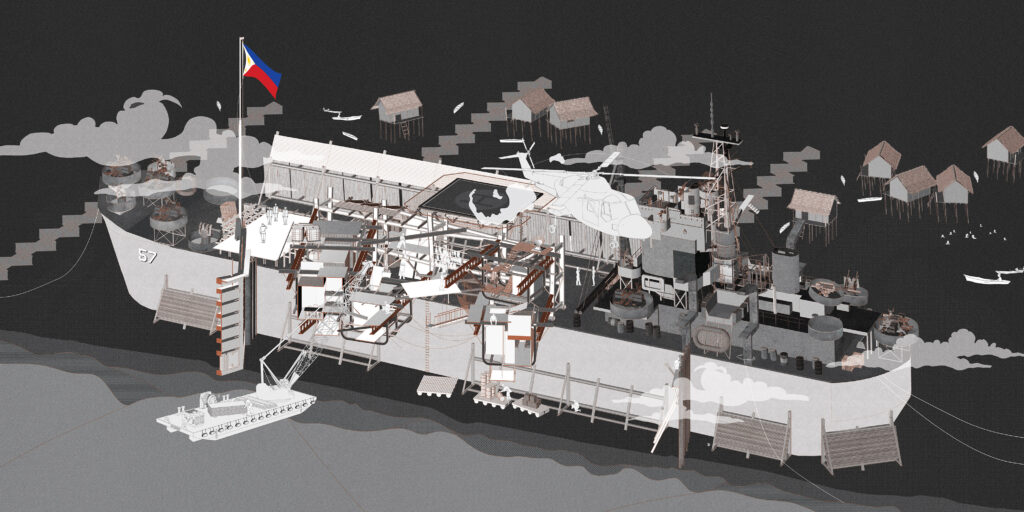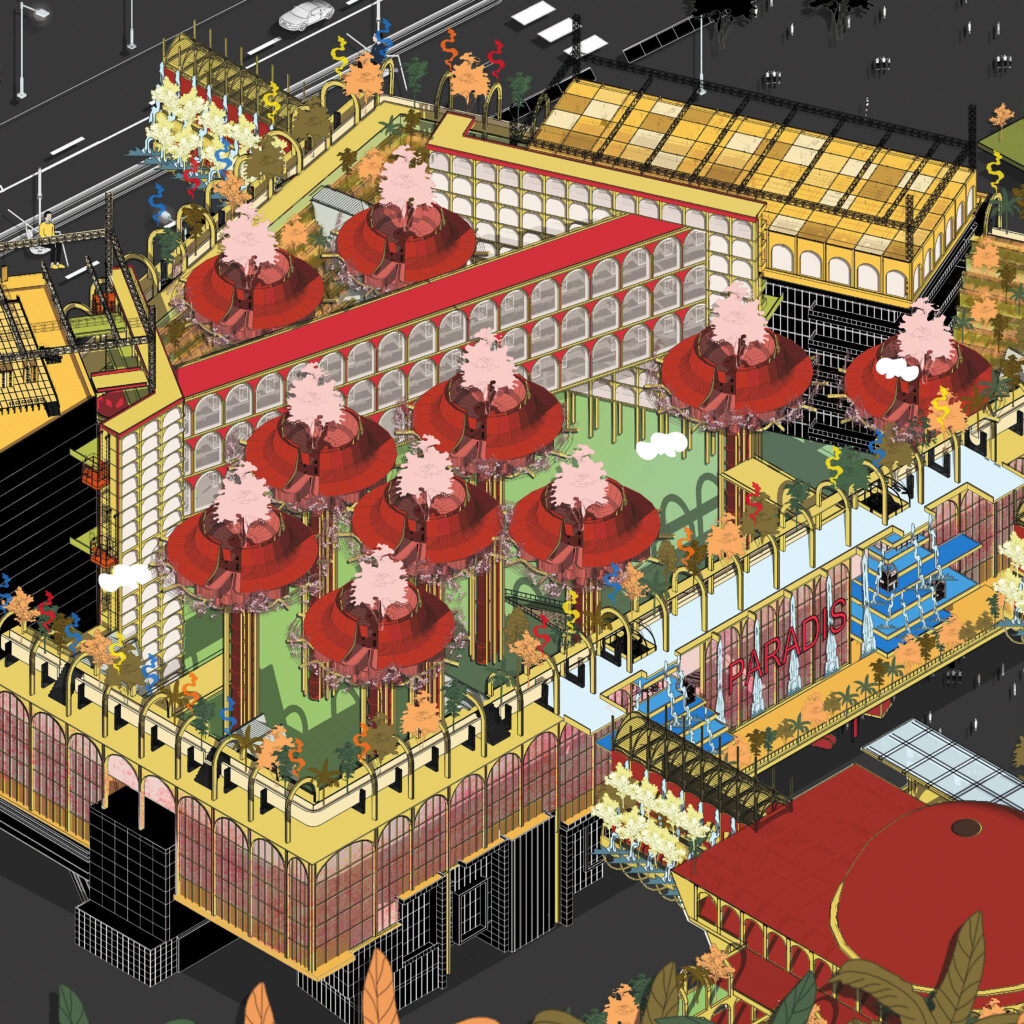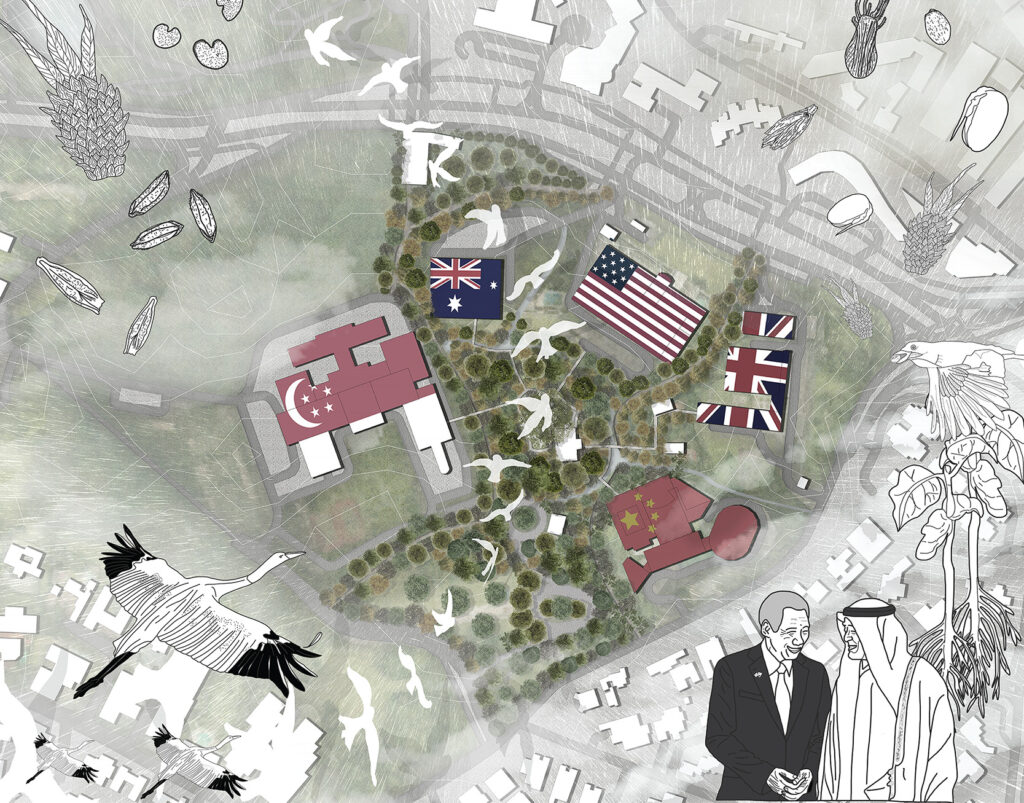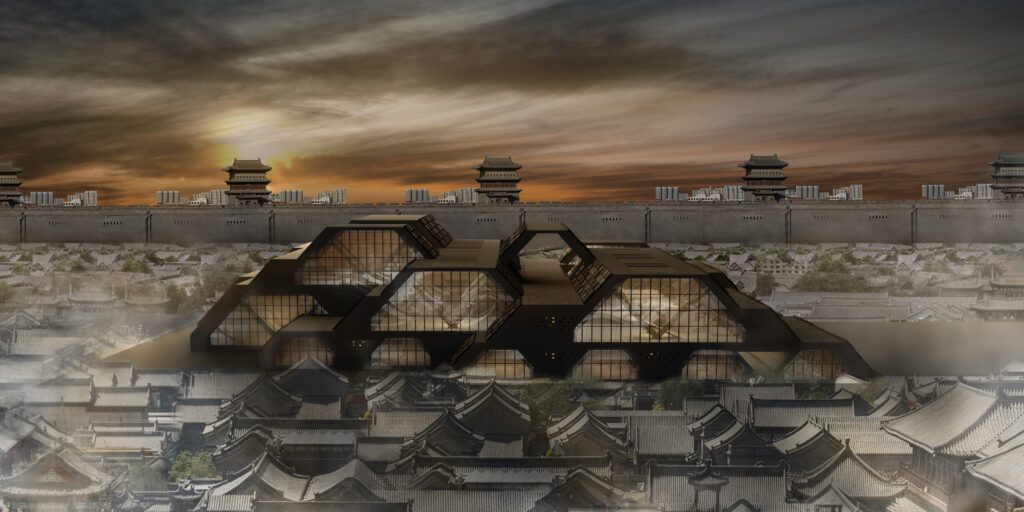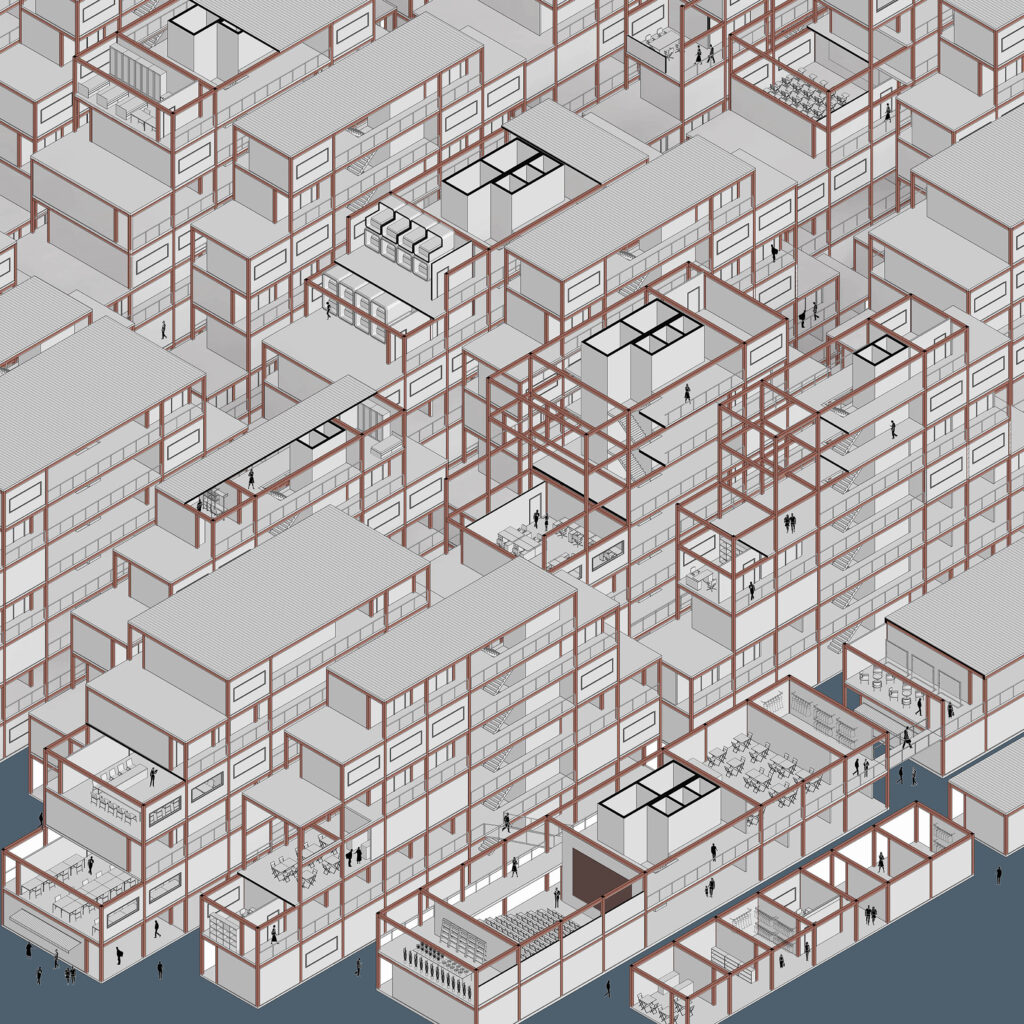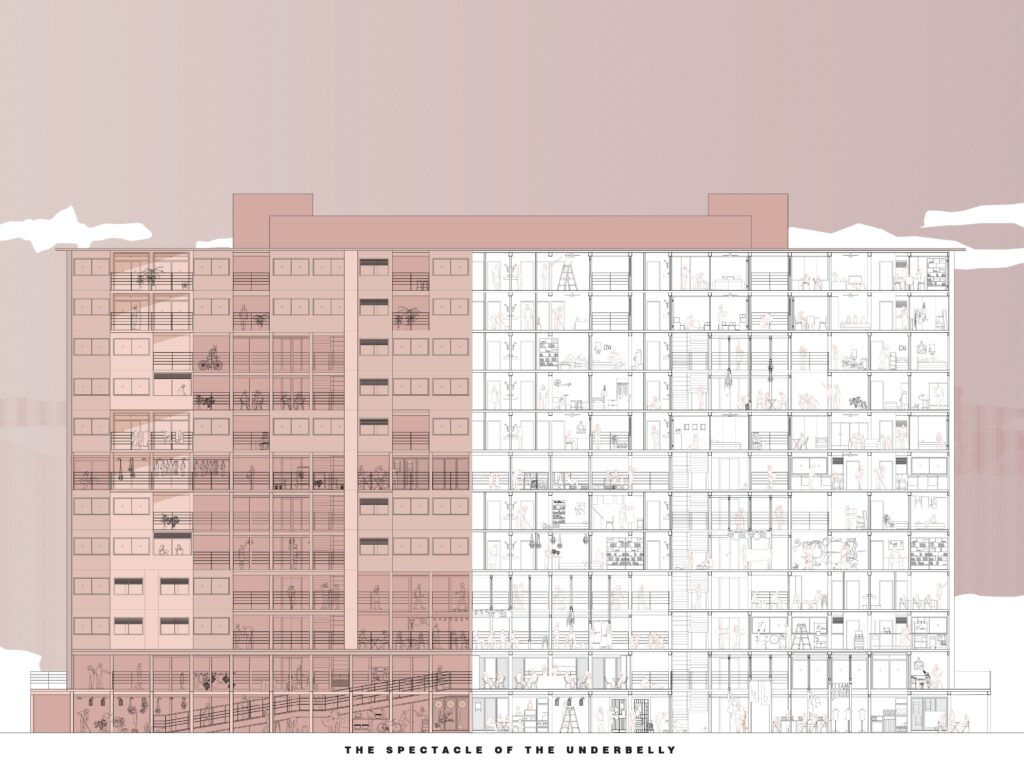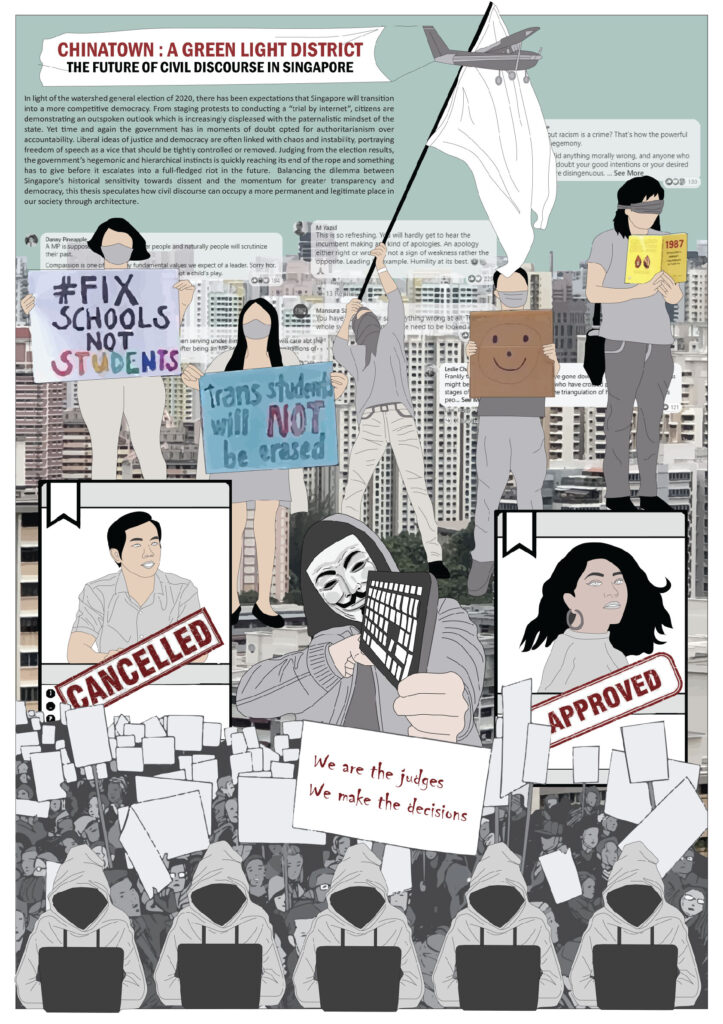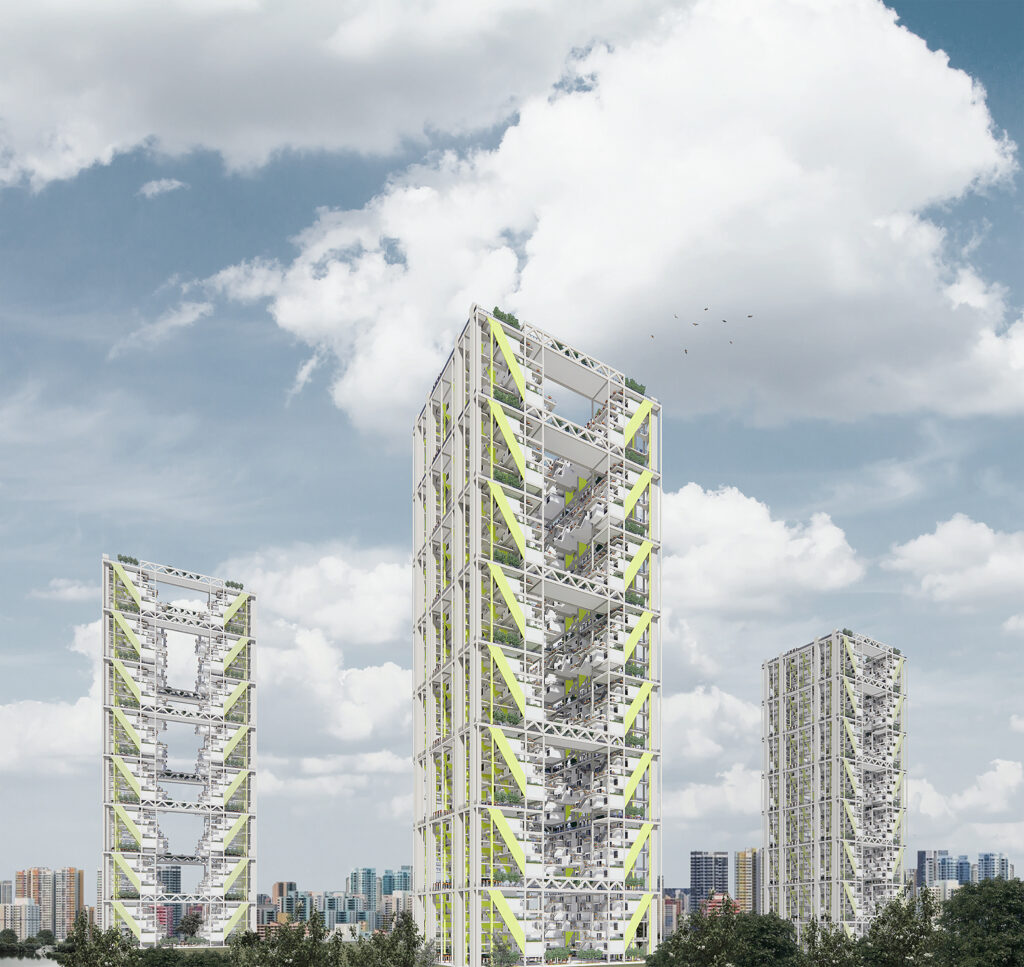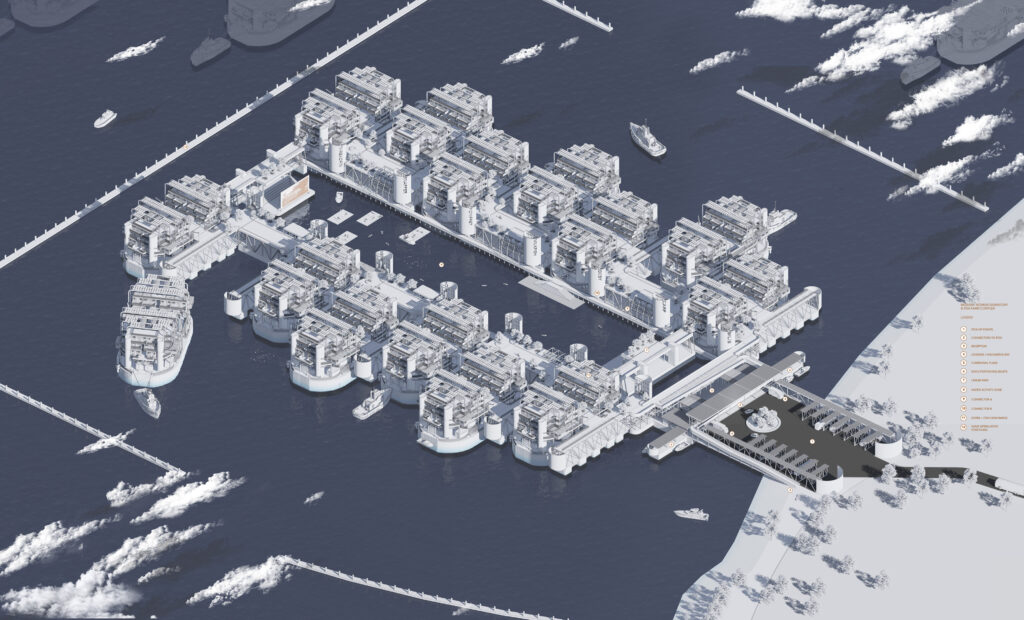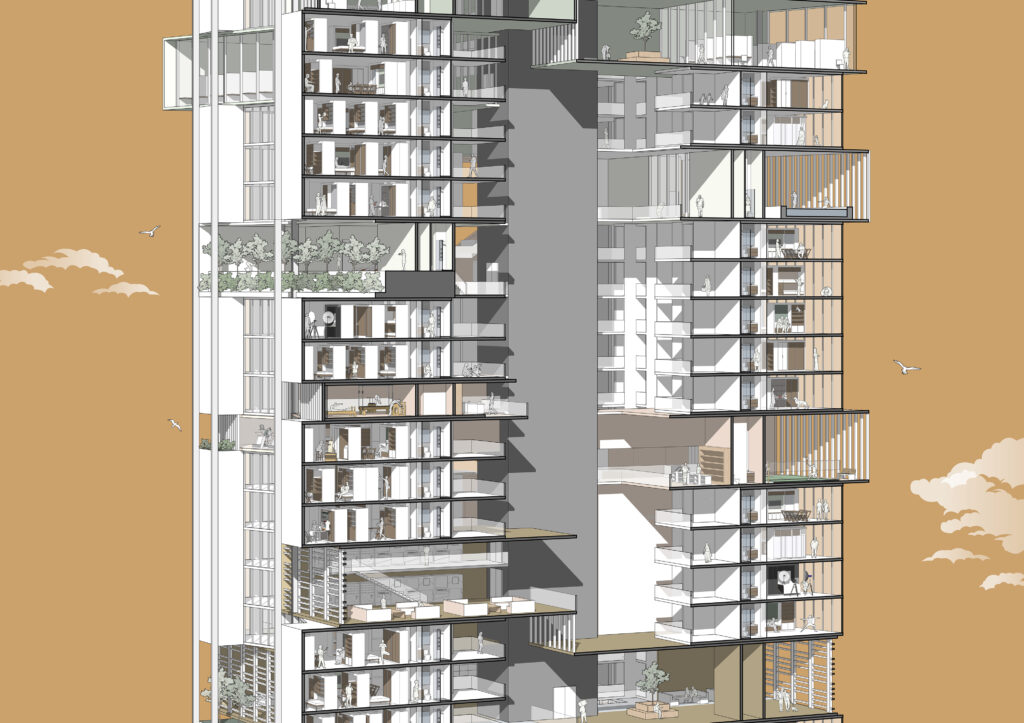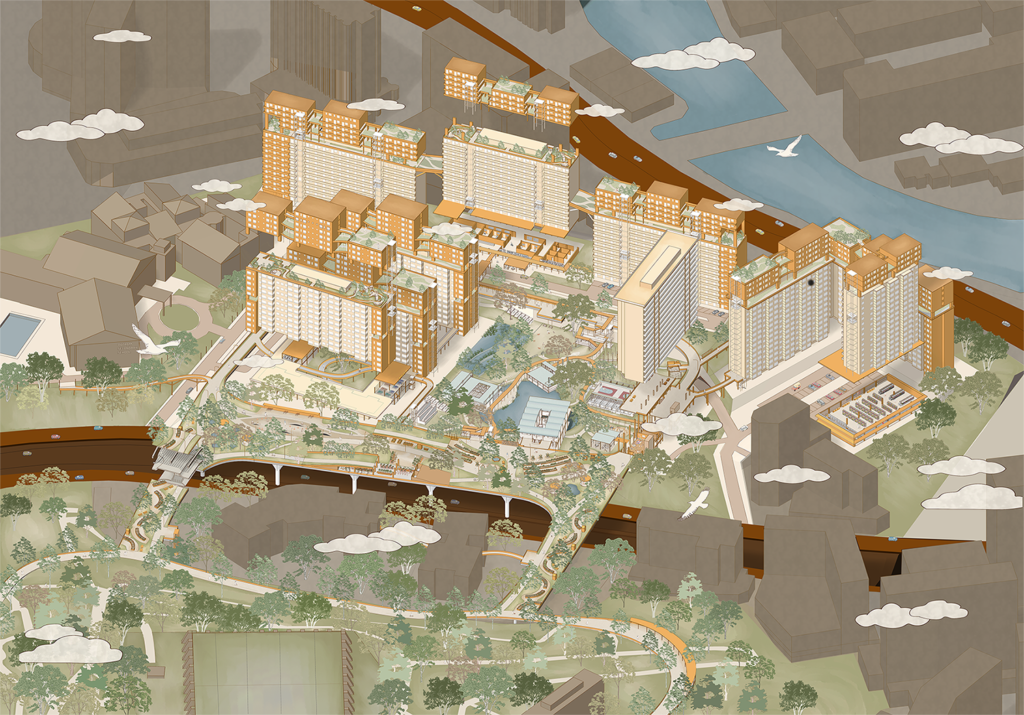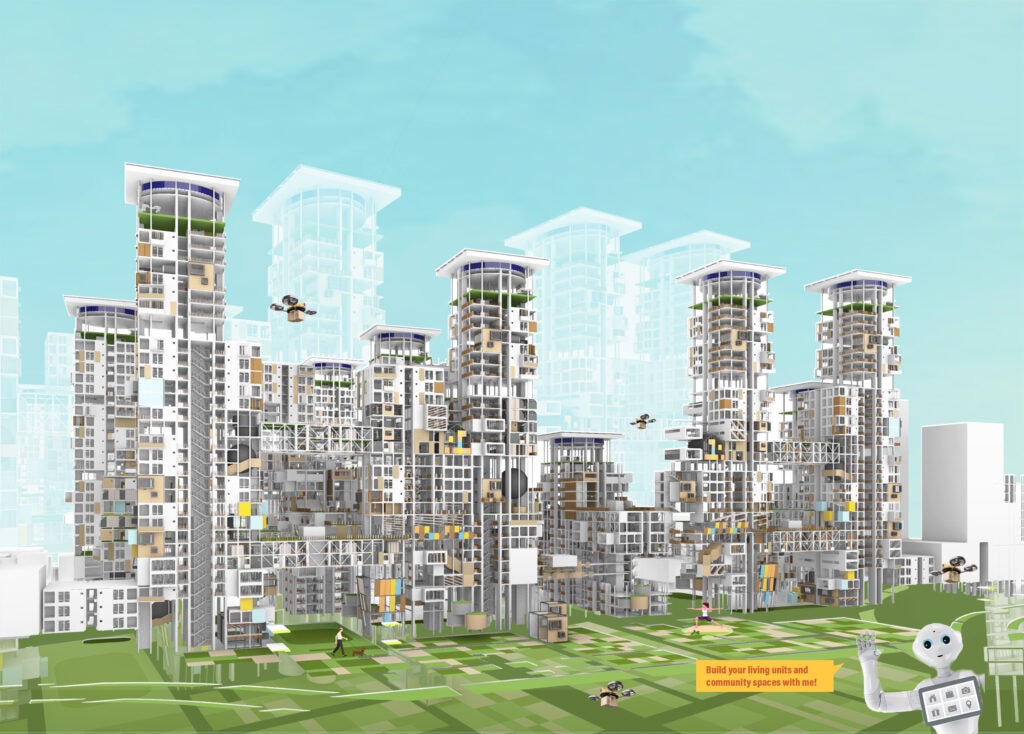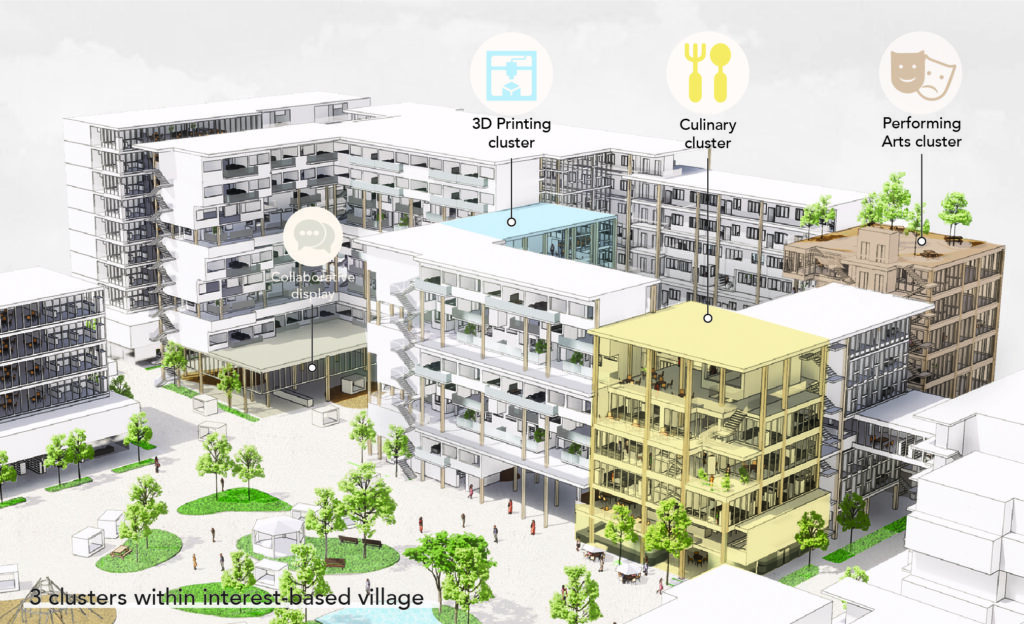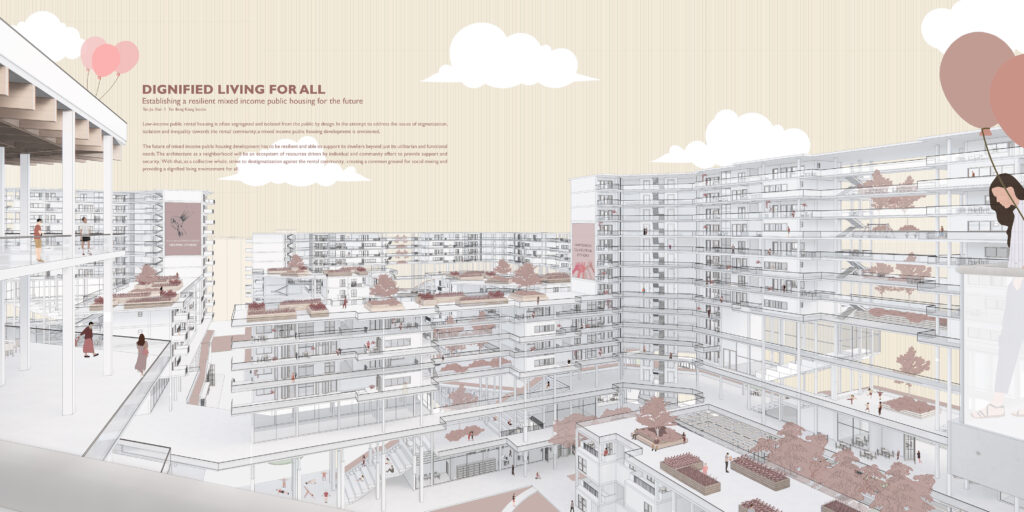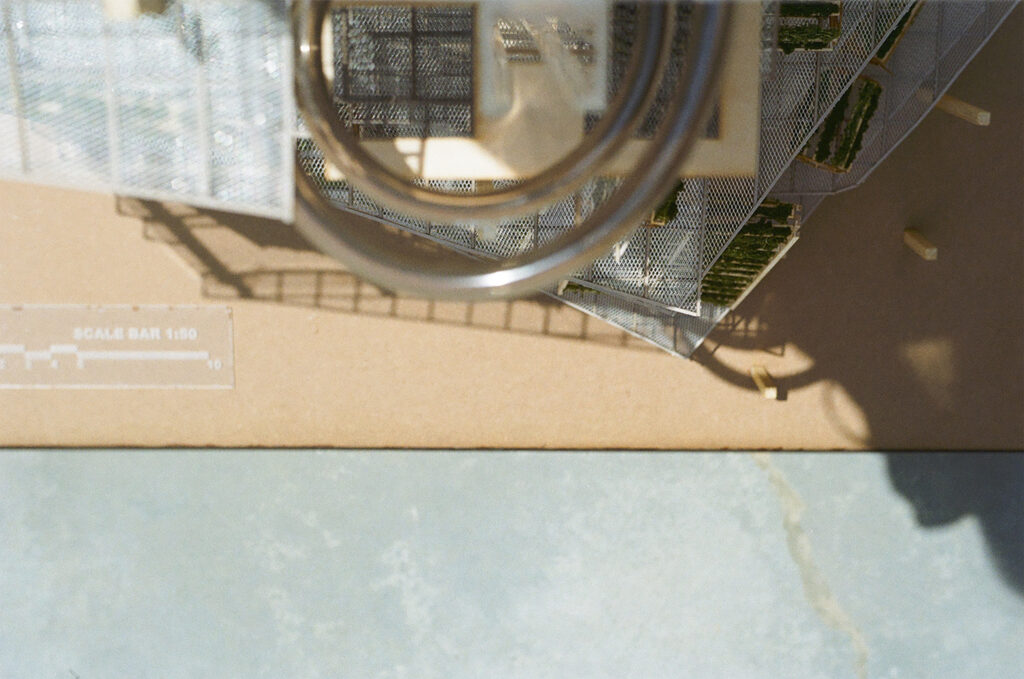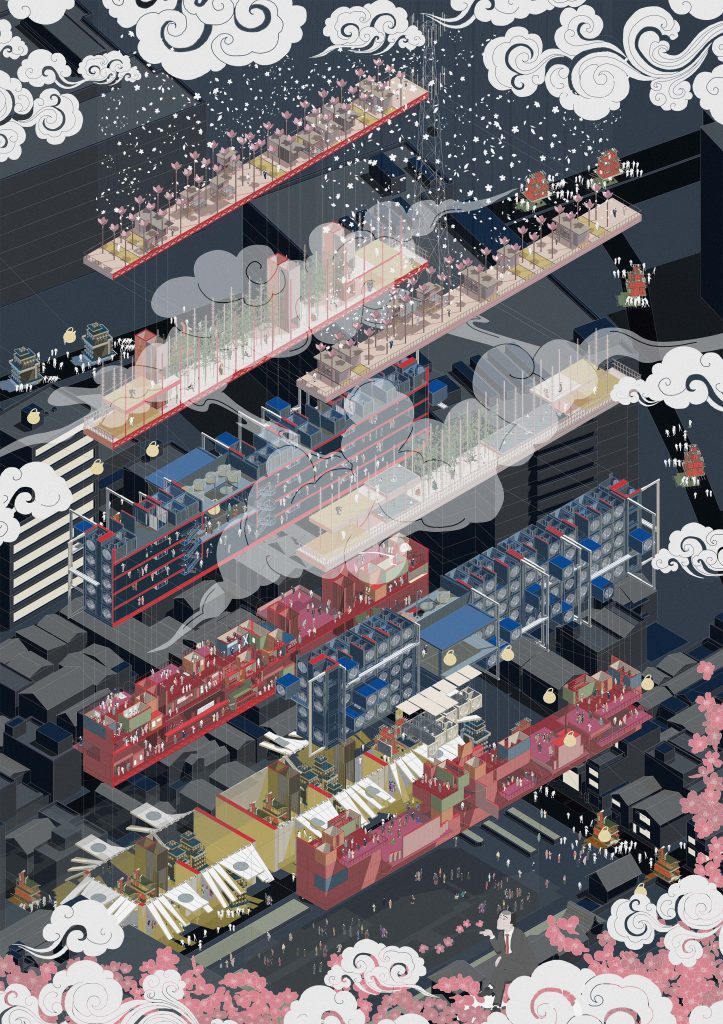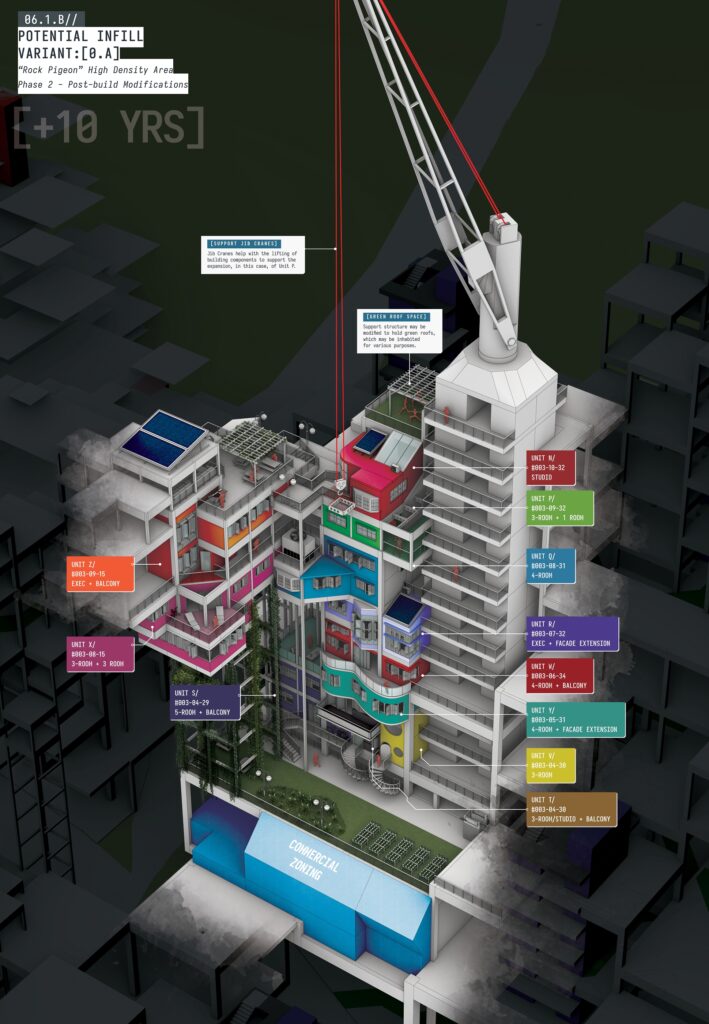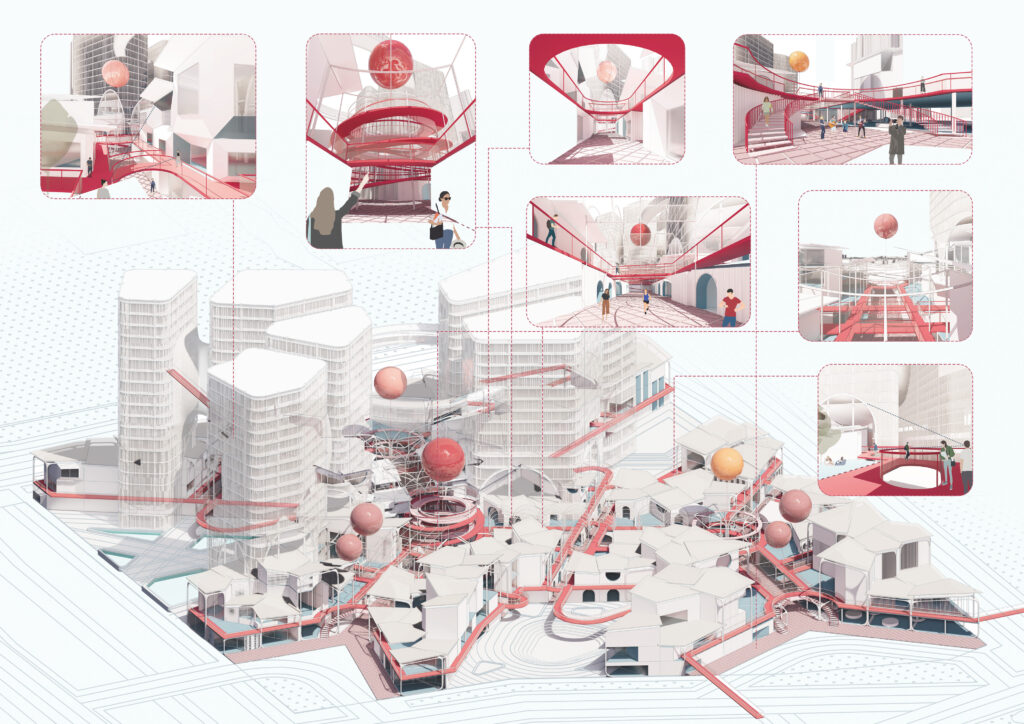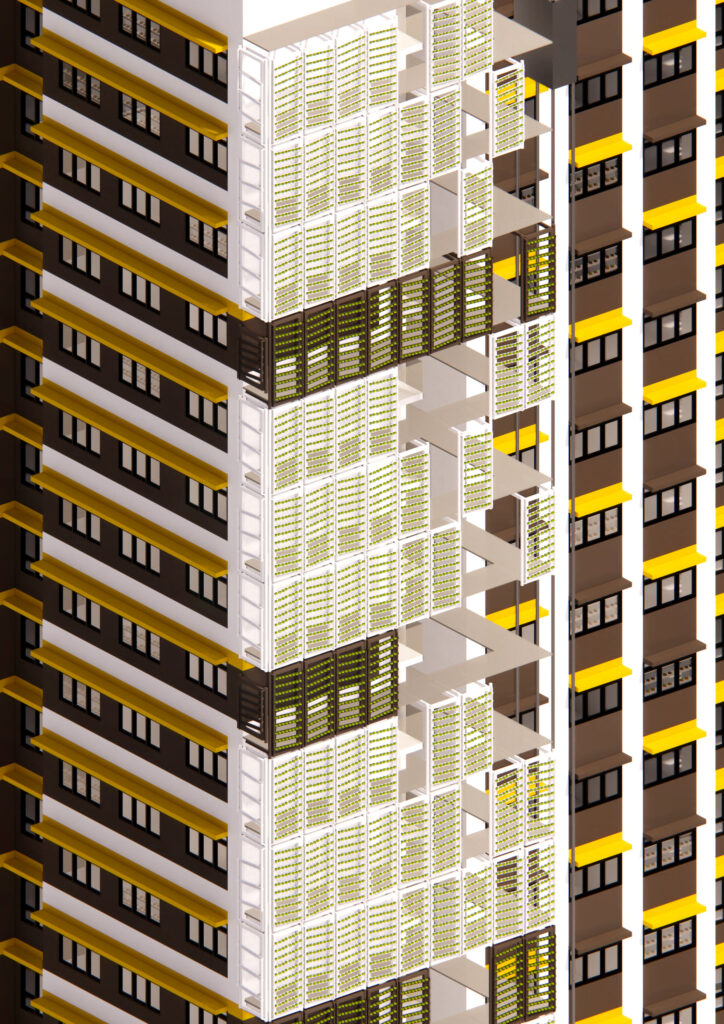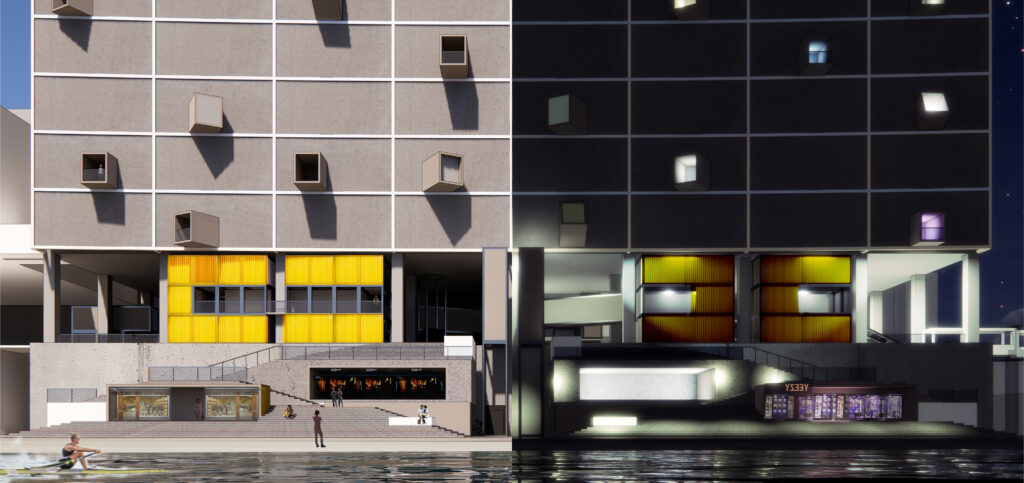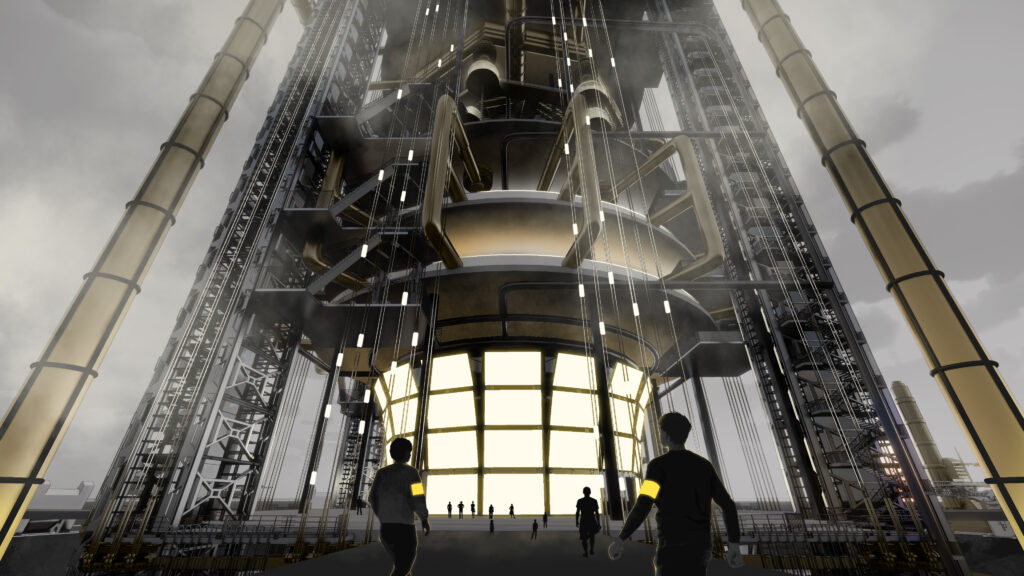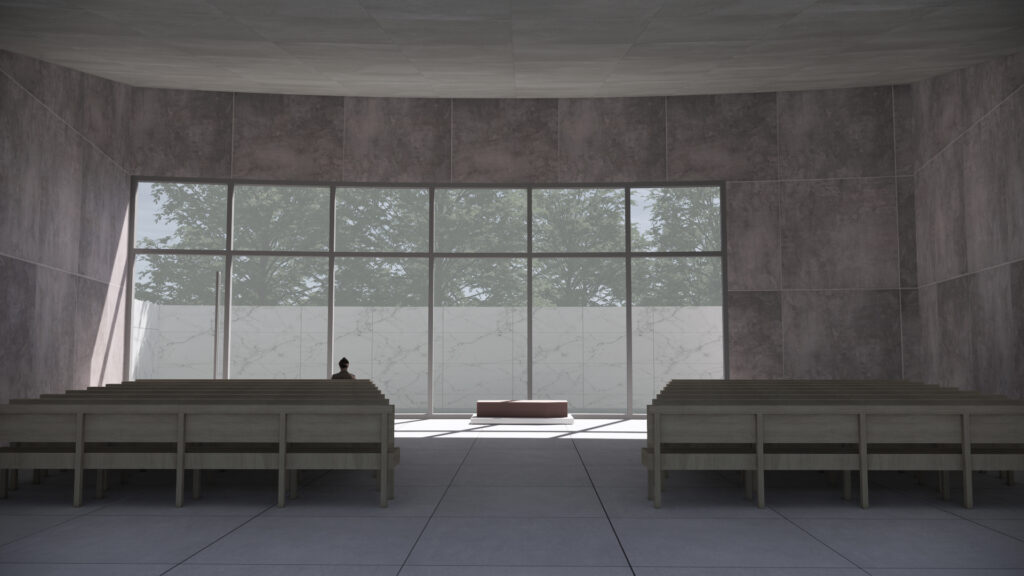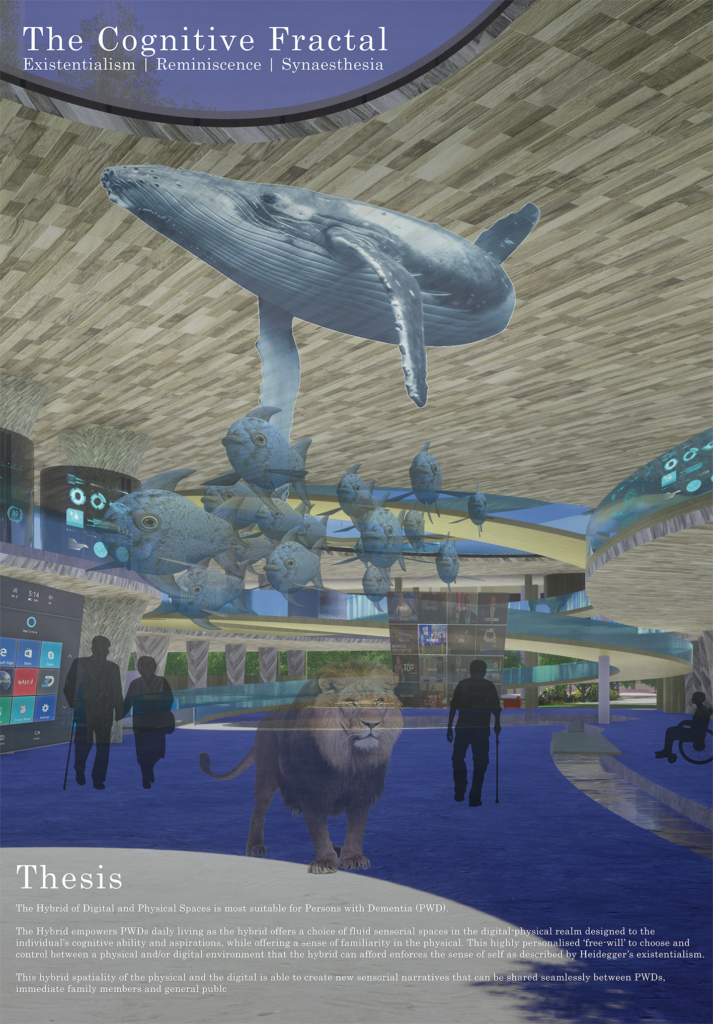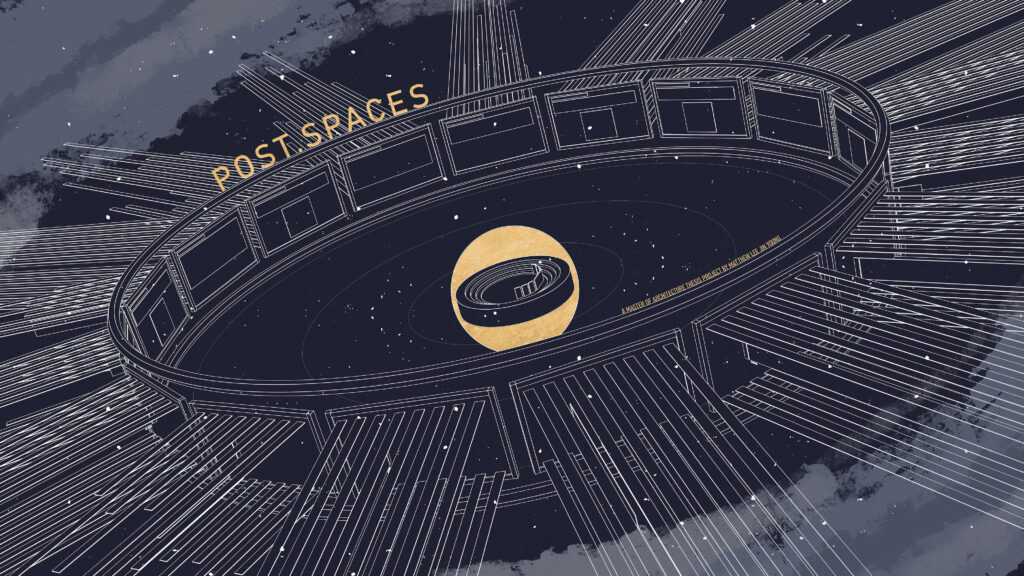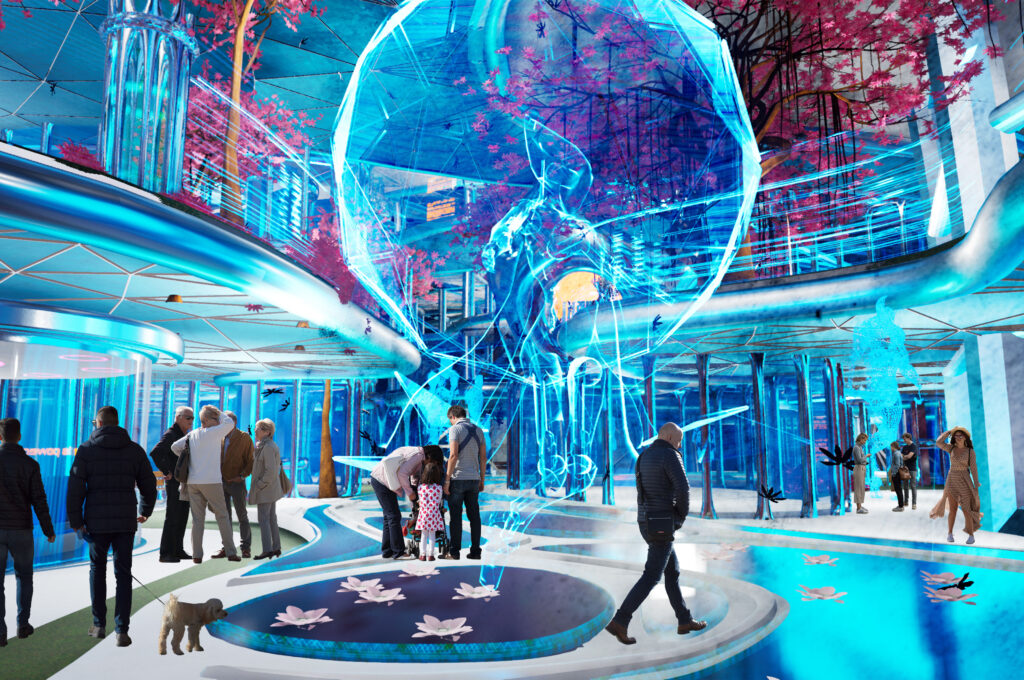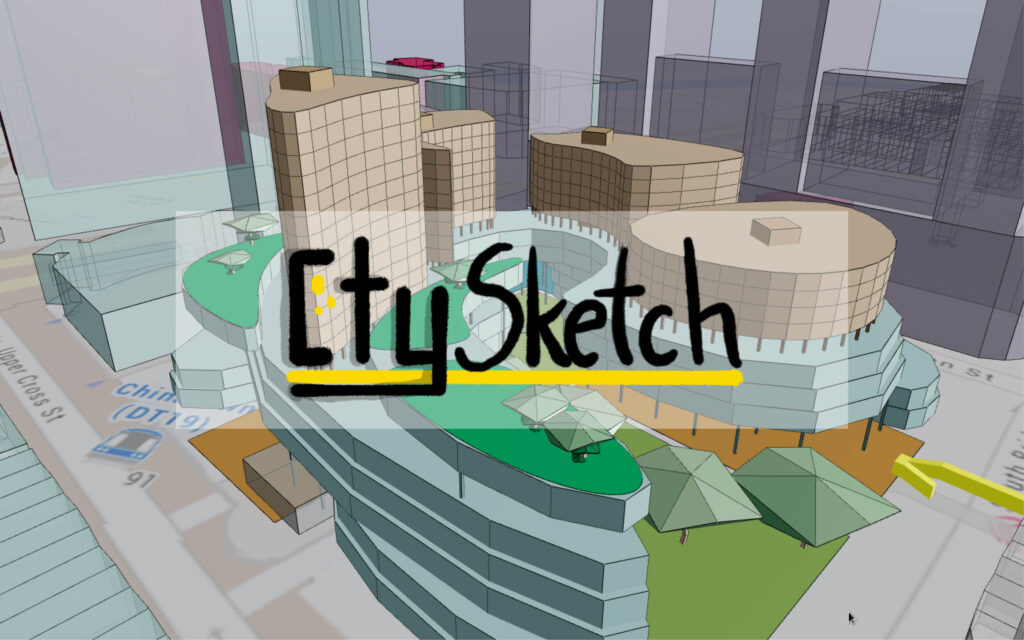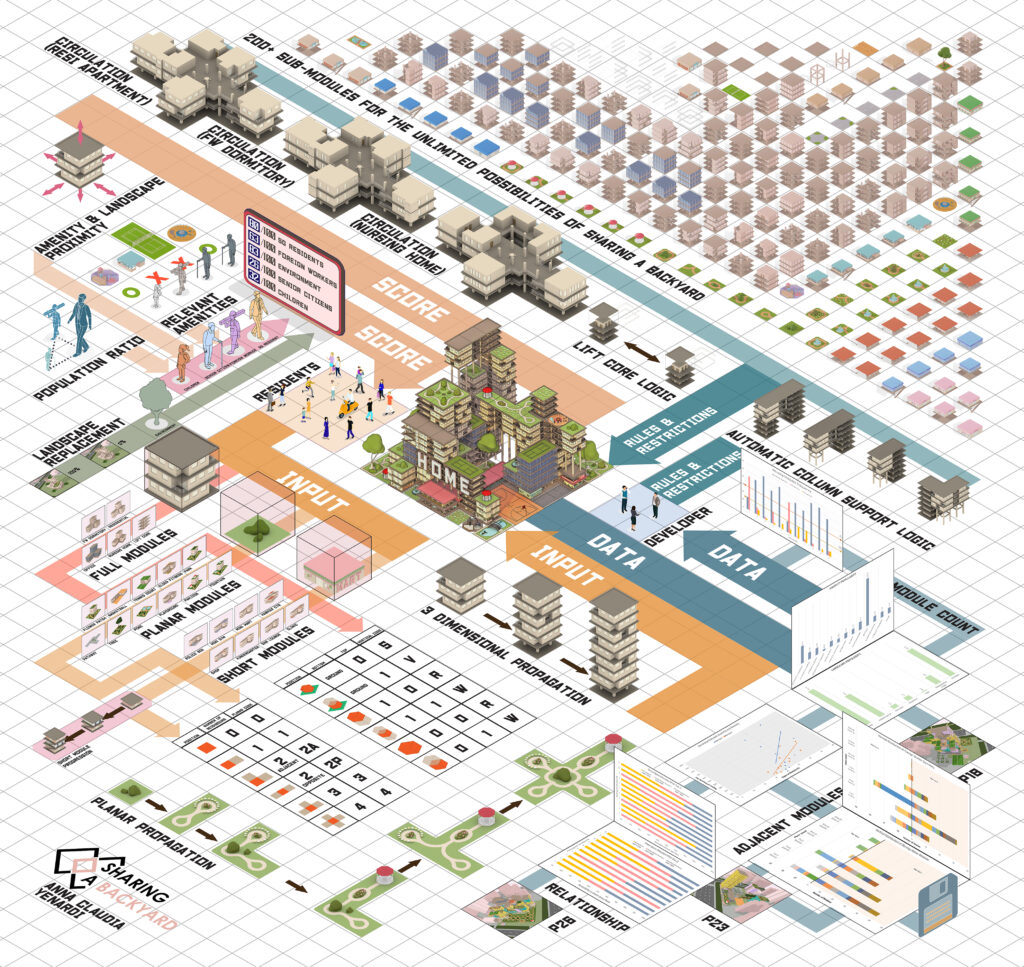This year, we’re leaving slightly differently. Instead of representing the student body as a homogeneous monolith, we choose to acknowledge the diversity in our work, converging our differences into an eclectic whole. Weaving together five discursive clusters that underlie the prevailing positions of this year’s graduating batch, we recognise that no one position articulates the architectural discipline. Thus a challenge befalls us. With the various trajectories represented by the myriad of works, how do we achieve cohesion as a batch, while embracing our diversity?
Opening Ceremony
Sat Jul 3, 20214:00 pm – 5:00 pm (GMT +8)
OpeningEvent is over
The graduating class of 2021 from the Masters of Architecture in National University of Singapore (NUS) is proud to present M.ARCH SHOW 2021: Intersections. The online exhibition is a celebration of the tremendous body of work put forward by the class over the past year, split into five clusters that align with different discourses within the discipline of architecture. To accompany the virtual exhibition, we have organised a series of online dialogues that further delve into the thesis and the themes surrounding it.
The Opening Ceremony will reflect on the past thesis year and present the curation of the exhibition and the online series, culminating in the launch of the exhibition.
The Role of a Thesis
Sun Jul 4, 20214:00 pm – 5:30 pm (GMT +8)
ConversationsGeneral InformationEvent is over
The Role of a Thesis: 4th July (Sun), 4PM – 5.30PM
The process of a thesis can be daunting for many prospective students; what is expected of them, how a thesis can contribute to their growth as a designer, or how a thesis might be relevant to them in future. To encourage students and shed some light on these major questions, the Committee has arranged for personal viewpoints from newly graduated student presenters, as well as discussions involving industry professionals and academics. Through this, we hope prospective students will be more equipped to embark on their own thesis journeys.
Guest Speakers:
Chan Soo Khian (Founding principal and design director of SCDA, Professor in practice at NUS)
Ong Ker Shing (Associate Professor, NUS B.Arch Prog Director)
Frederick Peter Ortner (Assistant professor, SUTD M.Arch and PhD Prog. Coordinator)
Student Presenters:
Sharmaine Toh (The Energy Revolution)
Anna Claudia Yenardi (Sharing a Backyard)
(Urbanism & Environments) Mediations: Embedded & Embedding
Sat Jul 10, 202111:00 am – 12:30 pm (GMT +8)
ConversationsClusterParallelsEvent is over
Urbanism and Environments takes the position that architecture is inherently ecological; it exists within an extensive network of relationships beyond our immediate, perceptible senses. By uncovering the embedded potentials of knowledge outside the discipline, synthesizing them with design methodologies, and re-embedding the architecture within a larger ecosystem, the works of this cluster take a multi-disciplinary approach.
Guest Speakers:
Dr. Seeram Ramakrishna (FREng, Everest Chair)
Leonard Ng Keok Poh (Ramboll Studio Dreiseitl, Country Director of Singapore)
Student Presenters:
Keith Tay (Urban Mine for disassembly and reassembly of e-waste)
Shirley Lim (Microville: A Blueprint for a Microbe-friendly Home)
Vivienne Kang (Hydrosocial Assemblage)
(Critical Architecture) From Within, Before Without: Locating Architecture
Sat Jul 10, 20214:00 pm – 5:30 pm (GMT +8)
ConversationsClusterEvent is over
The disciplinarity of architecture is today steeped in anxiety as increasingly, institutions, corporations, and economical forces threaten its legitimacy in both the academy and practice. To remain relevant, Architecture has a historical tendency to borrow from other purer disciplines, but that has only emphasised the ambiguity and elusiveness of architecture itself.
As an alternative, the cluster of Critical Architecture first reflects on problems internal to the discipline, before searching for problems external to discipline. Using three thesis projects as vehicles of discussion, the forum will locate architecture, (de)limit where the discipline ends, or even, where it begins.
Guest Speakers:
Erik G. L’Heureux FAIA (Vice Dean + Master of Architecture Programme Director, Dean’s Chair Associate Professor, Department of Architecture, NUS)
Adrianne Wilson (Partner & Intermedia Designer, Wilson Wootton)
Student Presenters:
Goi Yong Chern (Semoga Bahagia)
Natasha Lee (Still Life)
Anthea Phua (How to Live with Another)
(Technologies) Thinking, Computing, Designing Space
Sat Jul 17, 20213:00 pm – 5:30 pm (GMT +8)
ConversationsClusterEvent is over
Architecture, a practice so entwined with making, doing, and craft, cannot be divorced from the technologies and techne which influence it. From Drawing to Computer Aided Design, and now to advancements such as computational design methods and new media like virtual reality, technology has gone beyond a tool for drawing and communicating to a tool for thinking, optimising and materialising ideas into form.
The theses of this cluster attempt to reimagine the architect in this data-driven, interconnected world in which technological advancement occurs at an ever-accelerating pace. Responding to the blend between the digital, the material, and the architectural, the works respond to the technological zeitgeist and lay out the next step in architecture’s evolution.
Guest Speakers:
Dr Patrick Janssen (Associate Professor, Department of Architecture, NUS + Director, Design Automation Laboratory)
Pan Yicheng (Design Director + Co-Founder, Superstructure SG + Design Director / Co Founder, Produce. Workshop Pte Ltd + Principal, Type0 Architects)
Vignesh Kaushik (Asia Regions Design Technology Director, Gensler)
(History & Heritage) Constructing History
Sun Jul 18, 20214:00 pm – 6:00 pm (GMT +8)
ConversationsClusterEvent is over
We leave behind walls and stories, to tell a meaningful tale of how we came to be. The cluster presents a short film, which attempts to make obvious the differences and multiplicity of viewpoints and stances towards the topic of history and heritage. Together with the conversation with guest speaker, Dr. Johannes Widodo, the forum aims to explain and elaborate upon the process, thinking, and struggles behind choosing what we tangibly retain.
Guest Speakers:
Dr. Johannes Widodo (Associate Professor, Department of Architecture, NUS + Program Director of Master of Arts in Architecture Conservation)
All student works presented in a short film.
(Sociopolitics & Geopolitics) Out and About
Sat Jul 24, 20214:00 pm – 6:15 pm (GMT +8)
ConversationsClusterEvent is over
The architectural thesis often acts as a vehicle for a student to take aim at dominant ideology, policy, and hierarchies. In doing so, the student must grapple with how they inhabit the position of the other. This conversation surfaces the stories of several students who have lived the thesis – how they have immersed themselves within roles, enlisted in the groups they speak for, and returned to tell the tale.
Guest Speakers:
Dr. Lilian Chee (Associate Professor + Co-Leader, Research by Design Cluster, Department of Architecture, NUS)
Marianna Janowicz (Editor, Edit Collective)
Student Presenters:
Ahmad Nazaruddin (Pleasure Fields: Negotiating Queer Space and Time)
Gabrielle Wong (City Playbook)
Rachel Sim (Electoral Politics in Singapore: Helping Opposition Parties)
Wong Chi Khay (Transiency & Liminality: A Coexistence Approach to rethinking Foreign Worker Dormitories in Singapore)
What’s Next: Alternative Pathways
Sun Jul 25, 20214:00 pm – 5:30 pm (GMT +8)
ConversationsPracticeResearchGeneral InformationEvent is over
Given the perceived specificity of an architectural degree, some might wonder about the various unique and creative career paths they can take upon graduation; more importantly, how an architectural education could contribute to alternative goals. To answer these questions, the Committee has brought together 3 inspiring graduates who have forged careers outside of the architectural office – in areas such as fine arts, curation, business and academia. Through their individual stories, we hope to inspire students and fellow graduates, open up their minds to new possibilities, and give them alternative futures to aspire to.
Guest Speakers:
Genevieve Ang (Ceramicist, Gellyvieve )
Jefferson Jong (Director at Art Agenda, S.E.A)
Tham Wai Hon (Principal, Tacit Design)
Critical Architecture
Behind the impassive facade of architecture lies a world of chaos and anxiety; a discipline constantly questioning, doubting, and re-evaluating itself, its premises, and its methods. The Critical Architecture cluster embraces this anxiety within their architectural interrogation. Borrowing, experimenting and playing are used as methods of research and inquiry. Questioning the stubborn adherence to traditional methodological and formal notions – such as that of hygiene or efficiency – within an increasingly uncontrollable and unpredictable world, the theses explore fresh approaches, propositions and representational methods, to critically expand the discipline of architecture.
Ecology & Urbanism
Urbanism and Environments takes the position that architecture is inherently ecological; it exists within an extensive network of relationships beyond our immediate, perceptible senses. By uncovering the embedded potentials of knowledge outside the discipline, synthesizing them with design methodologies, and re-embedding the architecture within a larger ecosystem, the works of this cluster take a multi-disciplinary approach. These theses question the exploitative consumption and production of resources, reconcile boundaries between man and nature, and re-imagine new norms. They re-examine how architecture can mediate the pressures of urbanization, climate change and global crises such as the on-going pandemic.
Re-imagining
Designing for unprecedented events/ occurrences
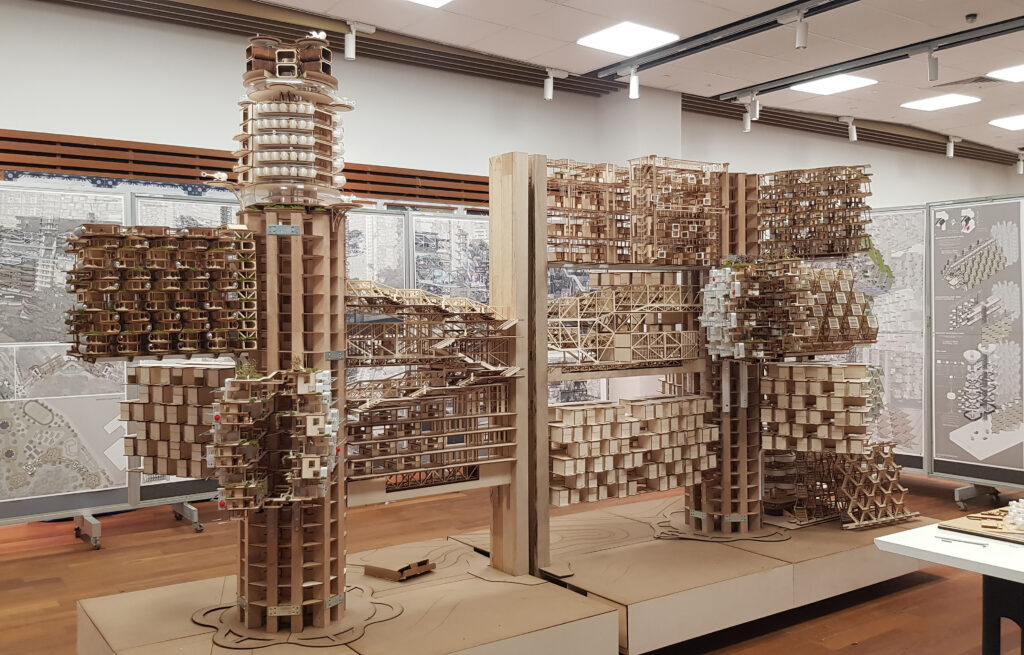
Filter City Masterplan
Azriel Yeo, Bernie Ang, Justin Sim, Max Lee, Sherry Goh
Assoc. Prof. Joseph Lim (Dr.)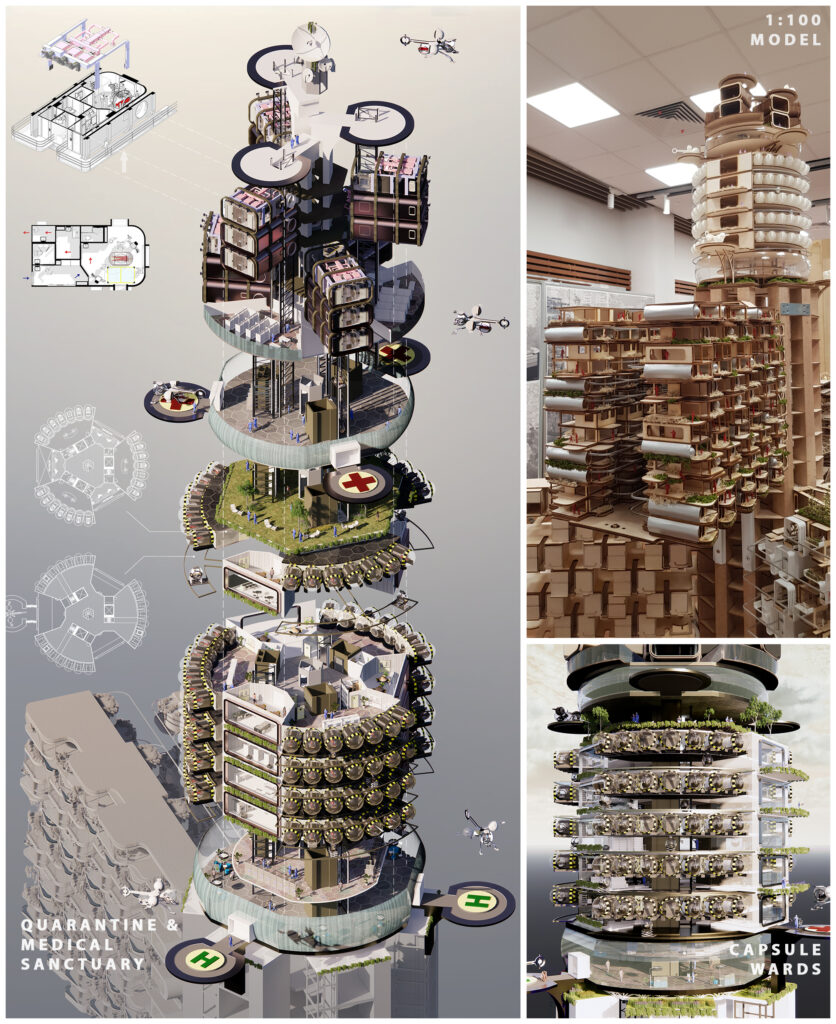
Filter City: Quarantine & Medical Healthcare Sanctuary in a Pandemic Future
Lee Kwang Zheng Max
Assoc. Prof. Joseph Lim (Dr.)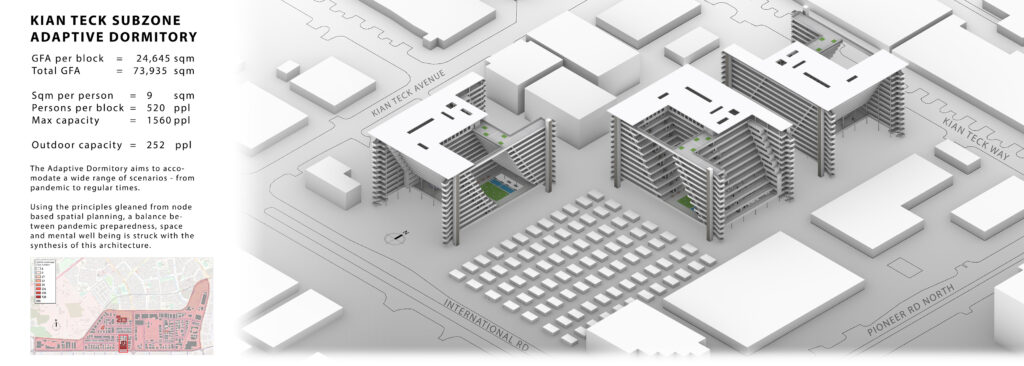
Improving Workers Dormitory Conditions In Industrial Zones Of Singapore
Lee Yun Xuan
Asst. Prof. Yuan Chao (Dr.)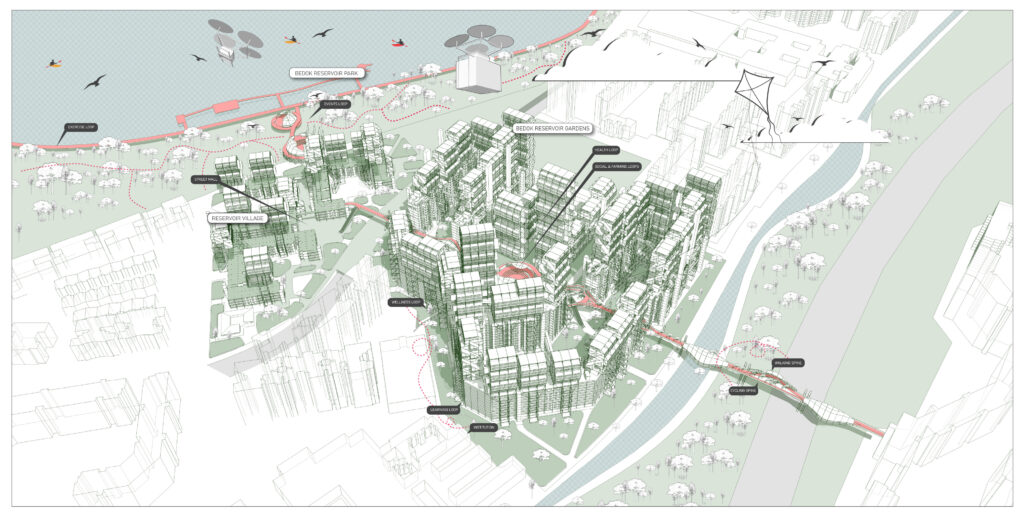
Rethinking the housing expansion
Melvin Lim Kok Boon
Senior Lecturer Swinal Samant Ravindranath (Dr.)Reconciling
Defining Man and Nature, Rehabilitating the human and natural condition
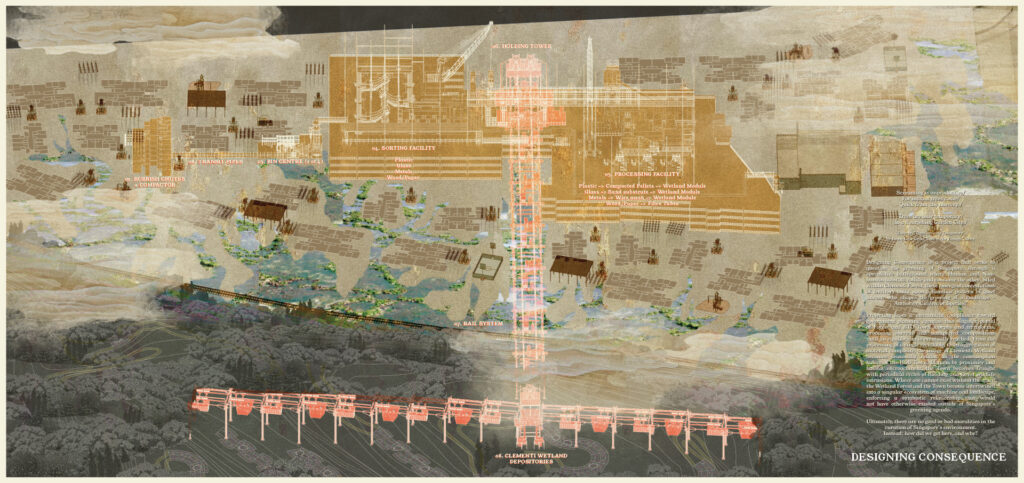
Designing Consequence: Trash Landscapes and New Territories in Clementi Forest
Low Jo Ann
Assoc. Prof. Tsuto Sakamoto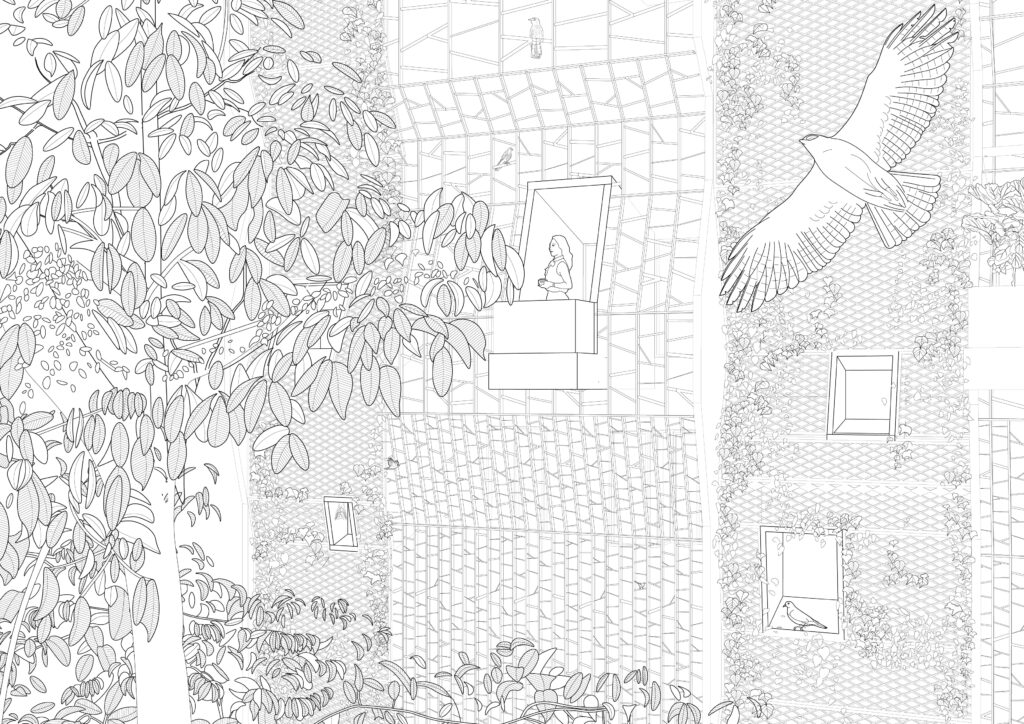
Wild Neighbours: Imagining Trans-species Edges in Urban Singapore
Kirk Yiling
Assoc. Prof. Nirmal Tulsidas Kishnani (Dr.)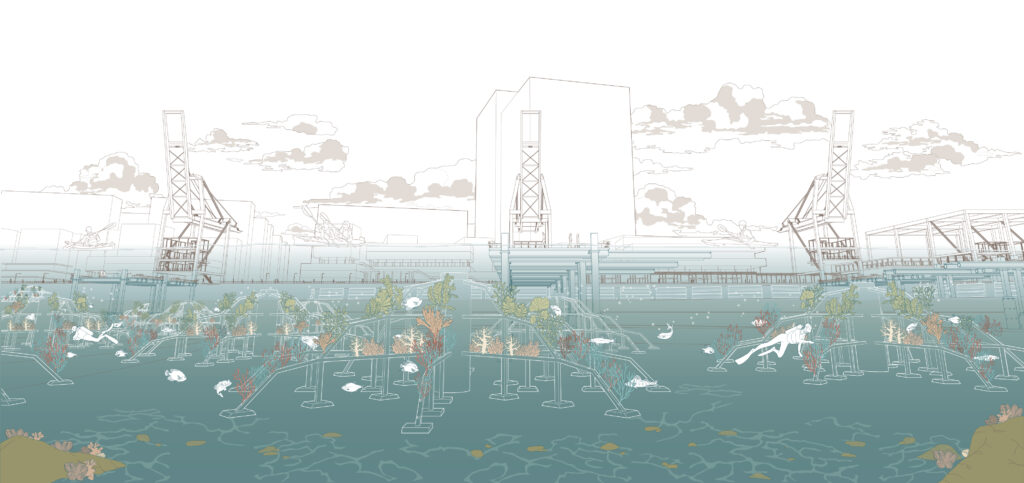
Liquid Frontier: Reimagining Thresholds Between Land and Sea
Yoeng Shu Hwee
Assoc. Prof. Nirmal Tulsidas Kishnani (Dr.)Resourcing
Assessing our resources: Energy, Sustenance and the Circular Economy
History & Heritage
The History & Heritage cluster holds works that deal in the stories and sites forgotten in the pursuit of development and progress. By taking on different perspectives, and proposing various understandings of the forgotten and overshadowed, the theses put forward ways to remember and recover. To do so, the group works across scales, types, and topics of interests- researching histories found across landscapes, neighbourhoods, estates, complexes and individual architectures, while adopting independent stances on the charged topics of change and development, demolition and restoration, conservation and preservation.
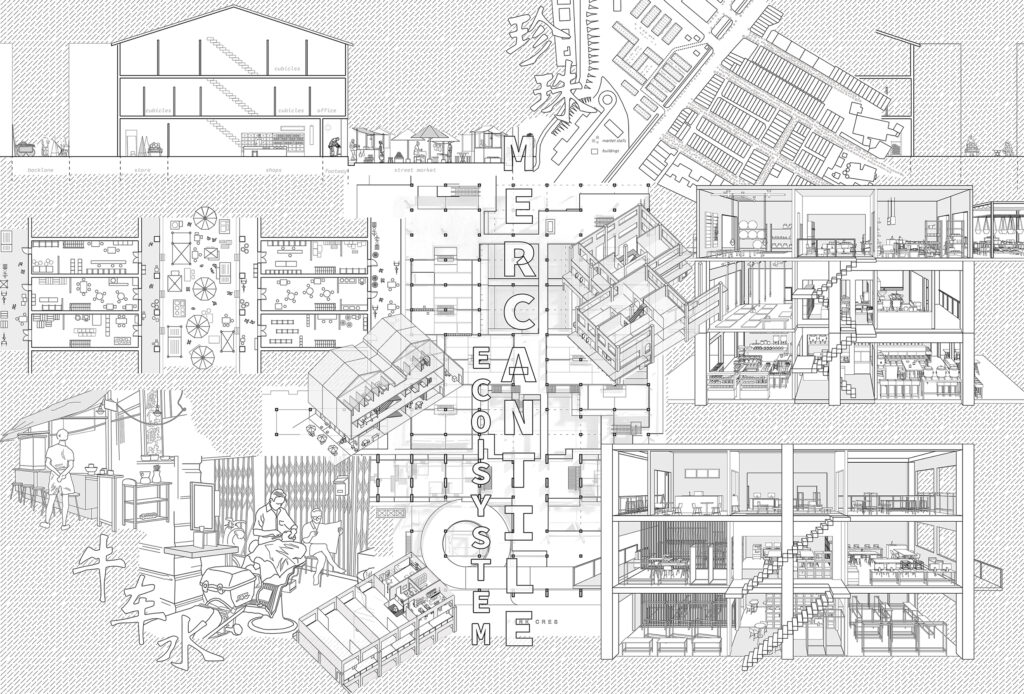
Mercantile Eco-System: Enterprise Incubator @ People’s Park
Eng Jia Wei
Adj. Asst. Prof. Ho Weng Hin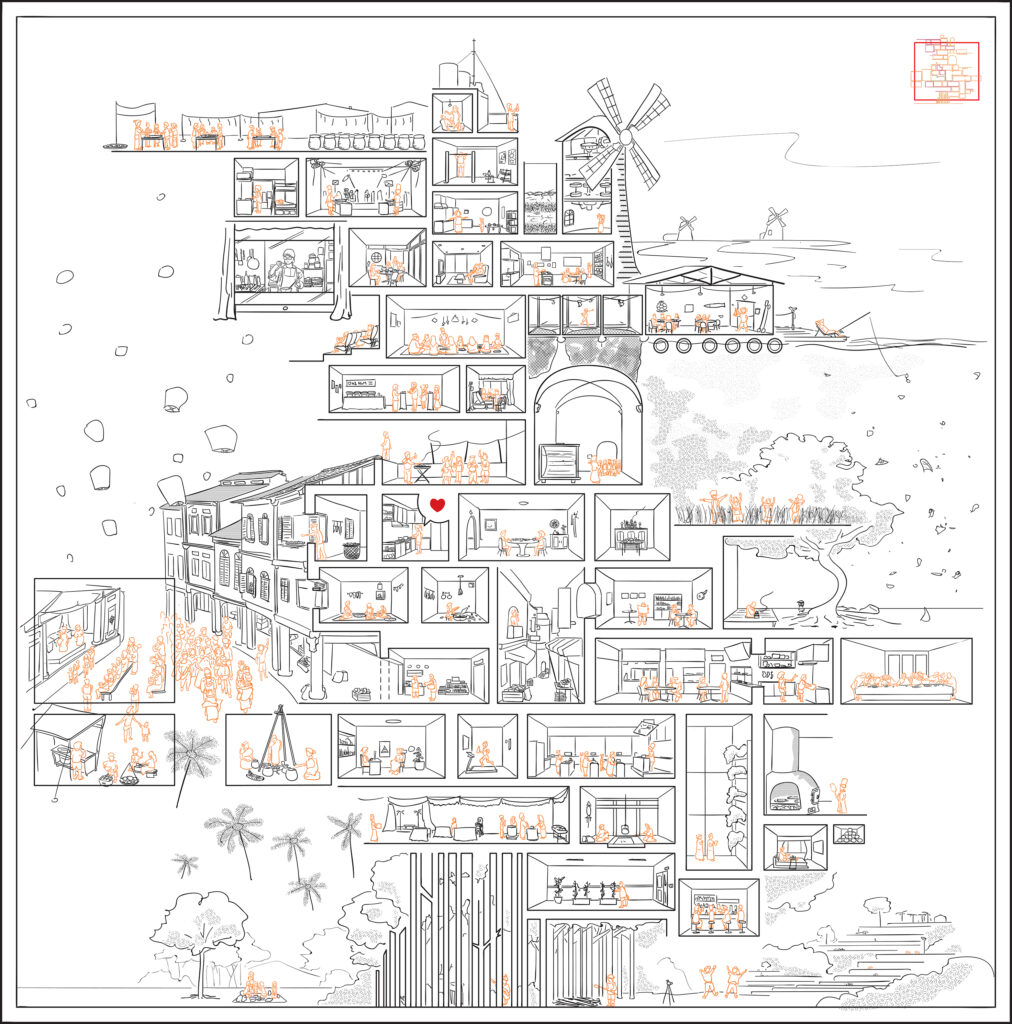
To Food, With Love: Architecture of an Intangible Culture
Sim Wen Wei
Assoc. Prof. Chang Jiat Hwee (Dr.)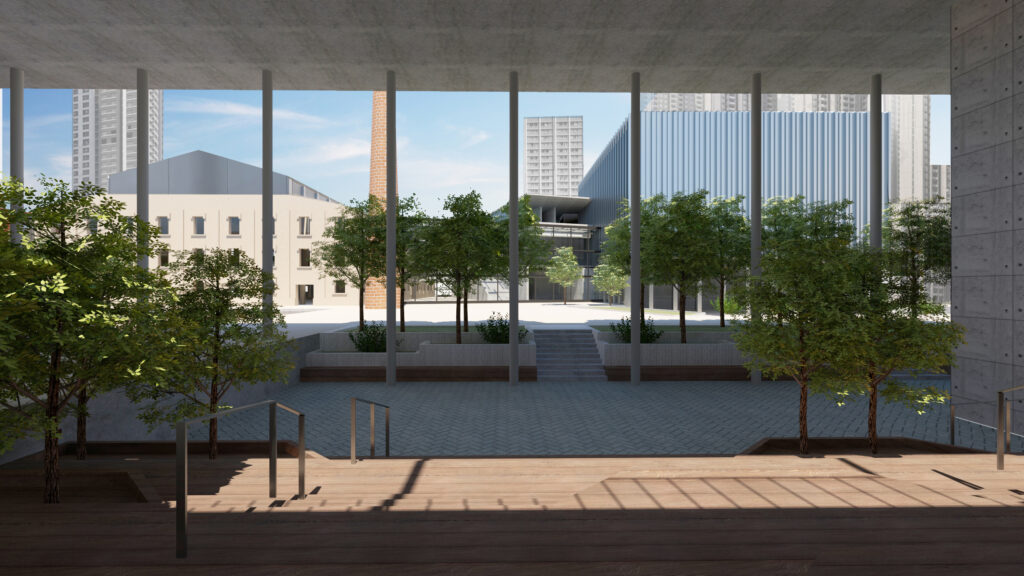
Building on Memory – Adaptive Re-use of Our Inner Cities
Wei Zongming
Adj. Assoc. Prof. Hans Brouwer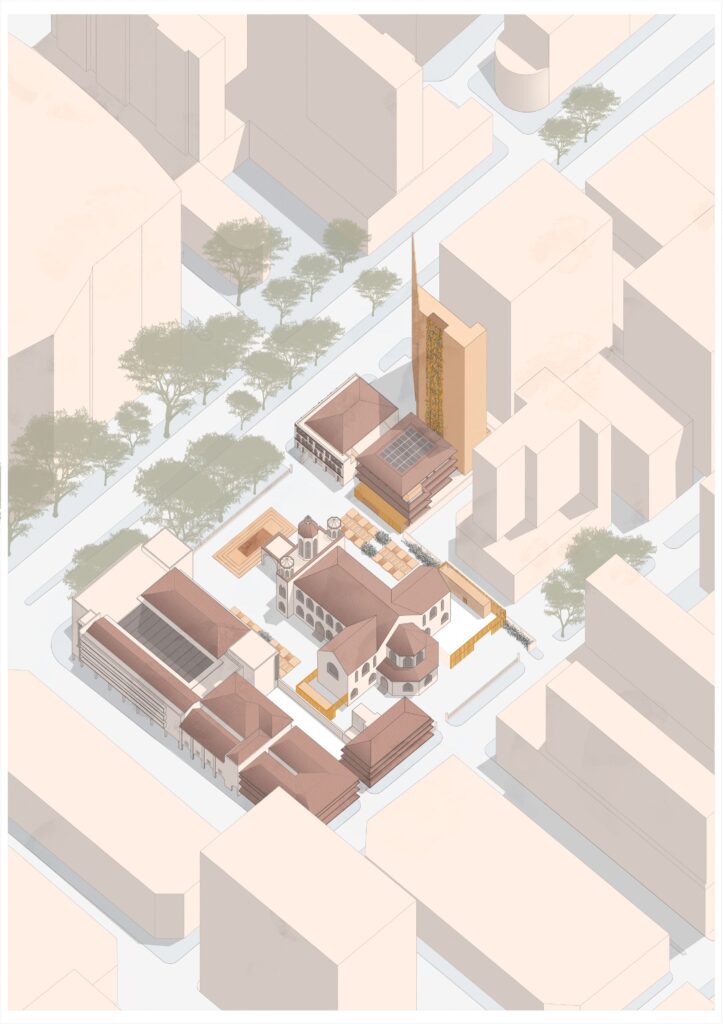
And Others — Conserving the Heritage of Portuguese Eurasians
Ying Shan
Assoc. Prof. Johannes Widodo (Dr.)Sociopolitical & Geopolitical
Works within the Sociopolitical & Geopolitical cluster interrogate architecture’s capacity to contribute to the public good at the crossroads of policy, ideology, and society. Fieldwork and research bring to light fissures in the built environment that emerge from manifold agendas. Through conciliation, mediation, or critique, spanning scales from the urban to the domestic, they take aim at social hierarchies, boundaries, notions of work, welfare, and education. By imagining potential futures in which these status quos might be destabilized, they reassert the optimism and power of design.
Ministry of Community Resilience
Under Act 2021, powers are granted to the Ministry of Community Resilience according to the following:
The Ministry of Community Resilience seeks to cultivate resilience within future generations through education and exposure.
The Ministry of Community Resilience endeavours to increase sustainability and security in the areas of food and health.
The Ministry of Community Resilience promotes arts and sports towards improvement of individual and communal well-being.
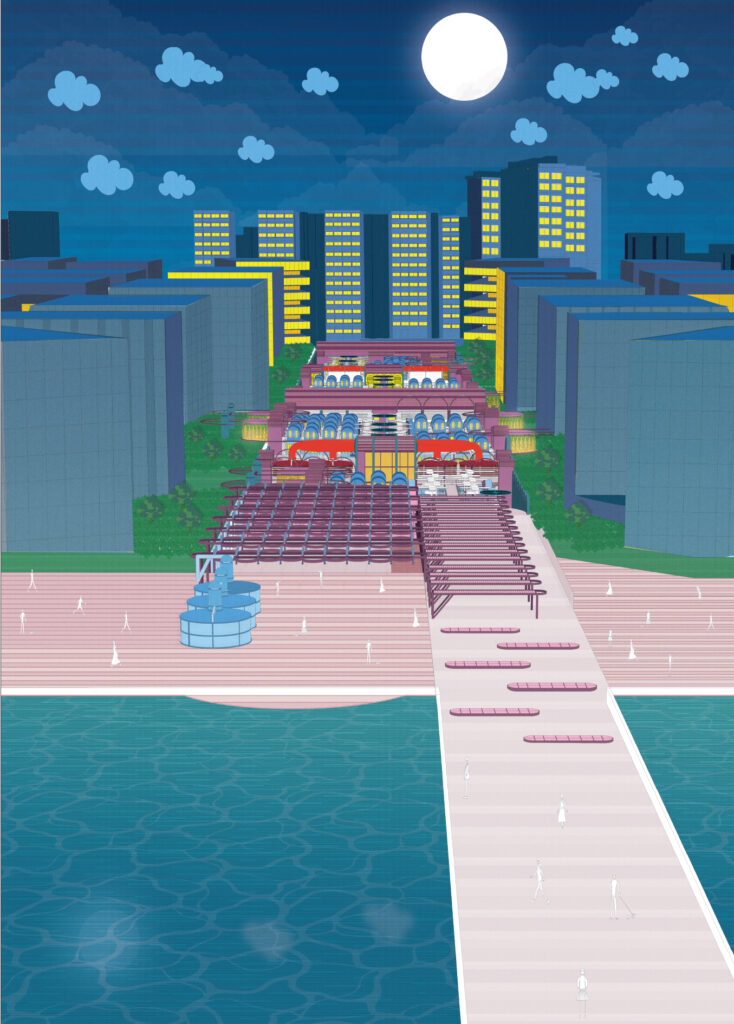
Co-hesion! Rediscovering the new ways of connecting: Living and socialising in a (post-) digital age.
Mahmud Kamil bin Abdul Kadir
Asst. Prof. Zdravko Trivic (Dr.)
Towards Sporting Excellence – Creating an Environment to Develop Winners
Wu Han
Prof. in Practice Richard HoMinistry of Foreign Relations
Under Act 2021, powers are granted to the Ministry of Foreign Relations according to the following:
The Ministry of Foreign Relations works incorruptibly toward the maintenance of peaceful relations between countries, inclusive of states and communities.
The Ministry of Foreign Relations must be creative and respond to disputes in a variety of ways that best fit each situation.
The Ministry of Foreign Relations must view the people of all nations as equal, and work with external parties to ensure common interests are met.
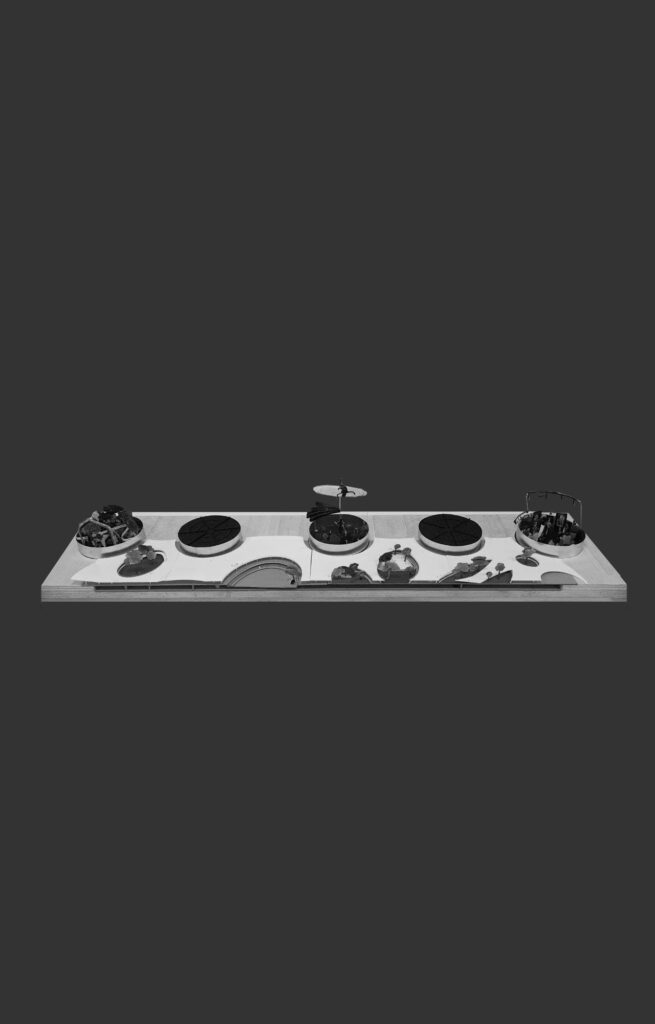
Oils Well that Ends Well: Adapting the Seria Refinery in a Post-Oil Brunei
Lim Zhi Xuan
Adj. Assoc. Prof. Teh Joo Heng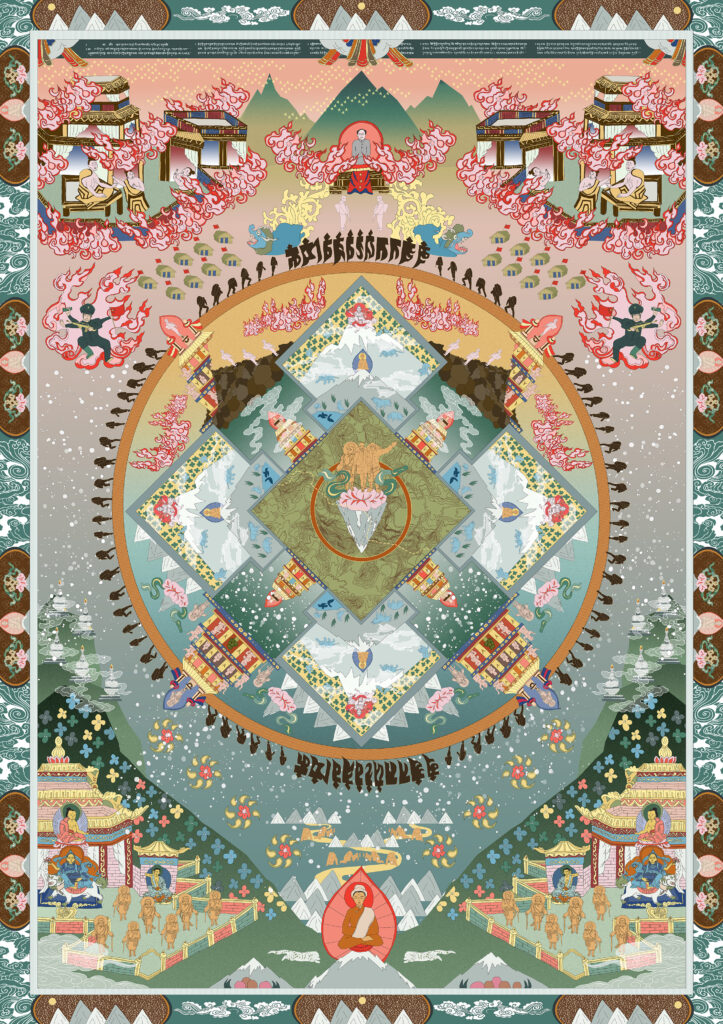
Negotiating the Three Faces of Everest: An Architectural Wunderkammer
Annabelle Lim
Assoc. Prof. Lilian Chee (Dr.)Ministry of Ideological Development
Under Act 2021, powers are granted to the Ministry of Ideological Development according to the following:
The Ministry of Ideological Development envisions a Home for all citizens, through fostering a heterogenous and dynamic culture that encompasses all individuals and groups, regardless of race, language, religion, profession, political affiliation, and sexual orientation.
The Ministry of Ideological Development acknowledges and celebrates the individual and collective narratives of all citizens, thereby articulating the need to build upon the foundation of the past, with the tools of the present, towards constructing a Home for the future.
The Ministry of Ideological Development bridges the Government and the people it serves, providing platforms for critique and collaboration amongst various stakeholders within and across pre-existing social systems, towards mediating an authentic vision of Home.
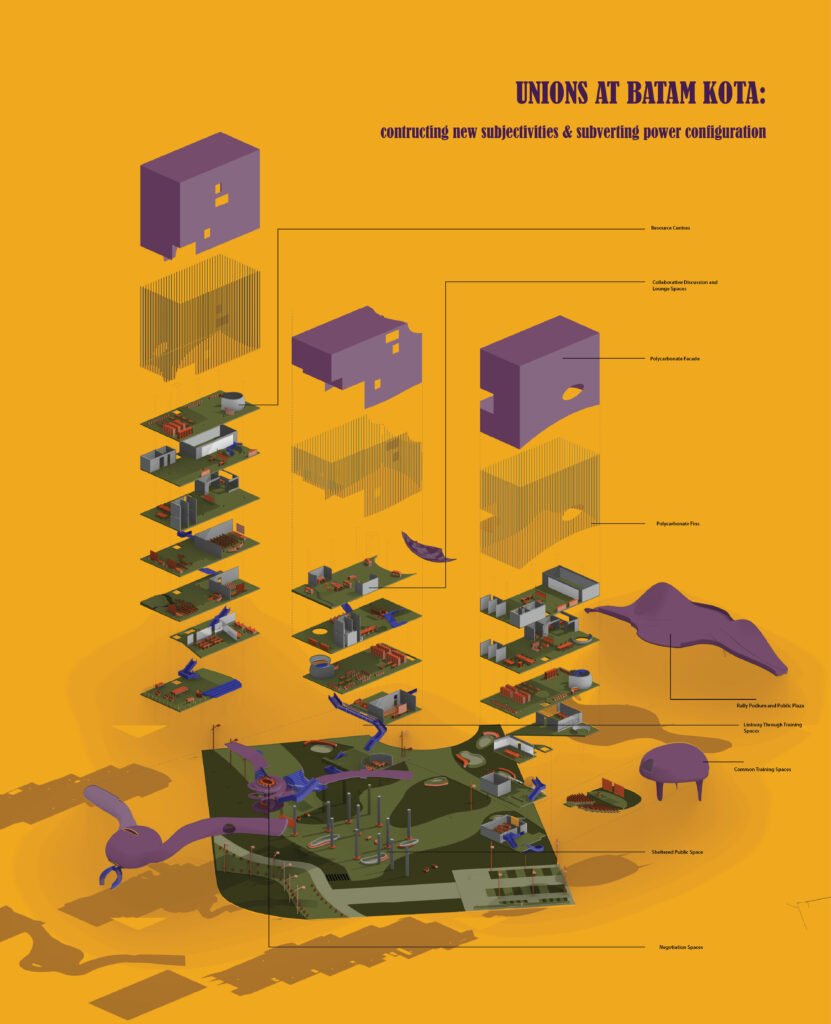
Unions at Batam Kota: Constructing new subjectivities and subverting power configuration
Freda Yu Bingjie
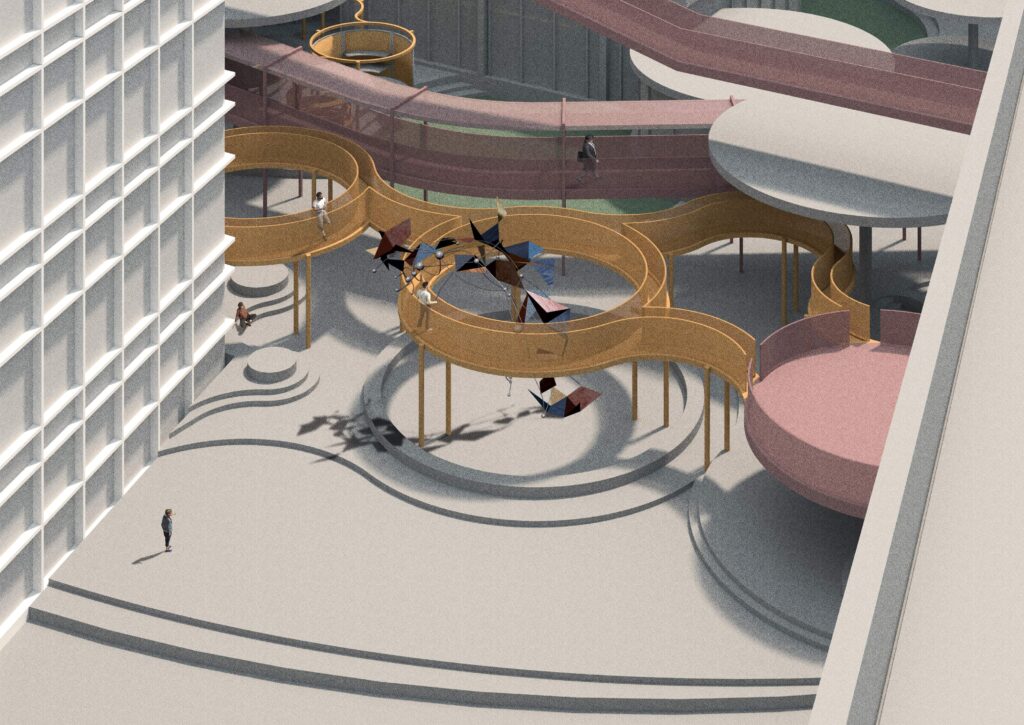
Towards an Inclusive Architecture: A Toolkit for the Dilution, Divergence and Manipulation of Power
Shaun Matthias Sng
Asst. Prof. Zdravko Trivic (Dr.)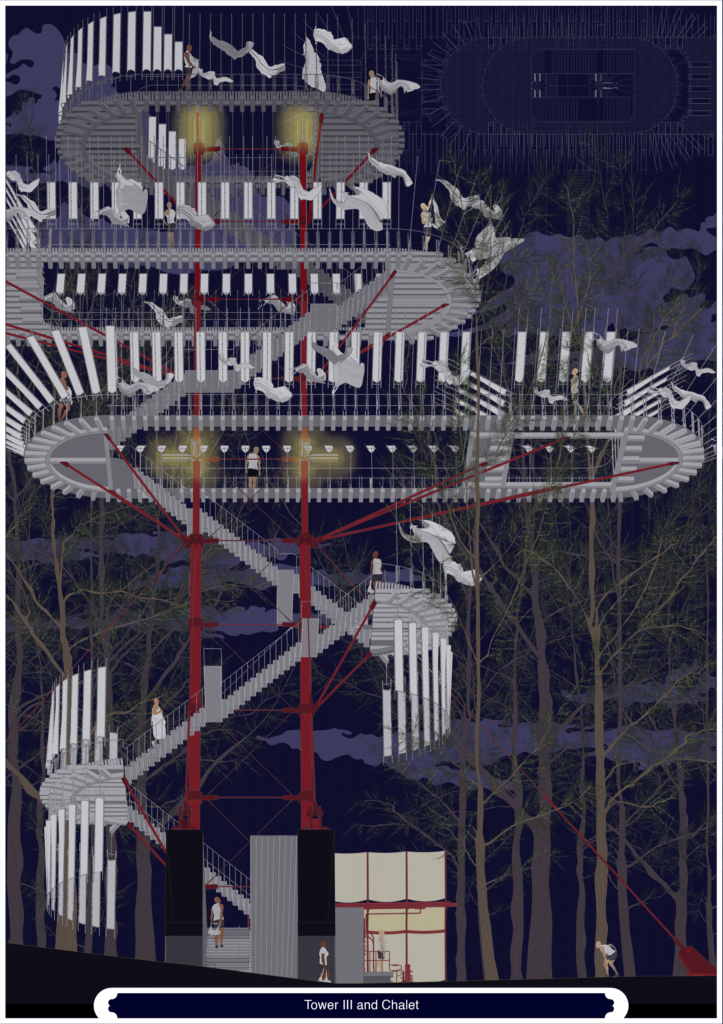
Pleasure Fields: Negotiating Queer Space and Time
Ahmad Nazaruddin bin Abdul Rahim
Assoc. Prof. Tsuto Sakamoto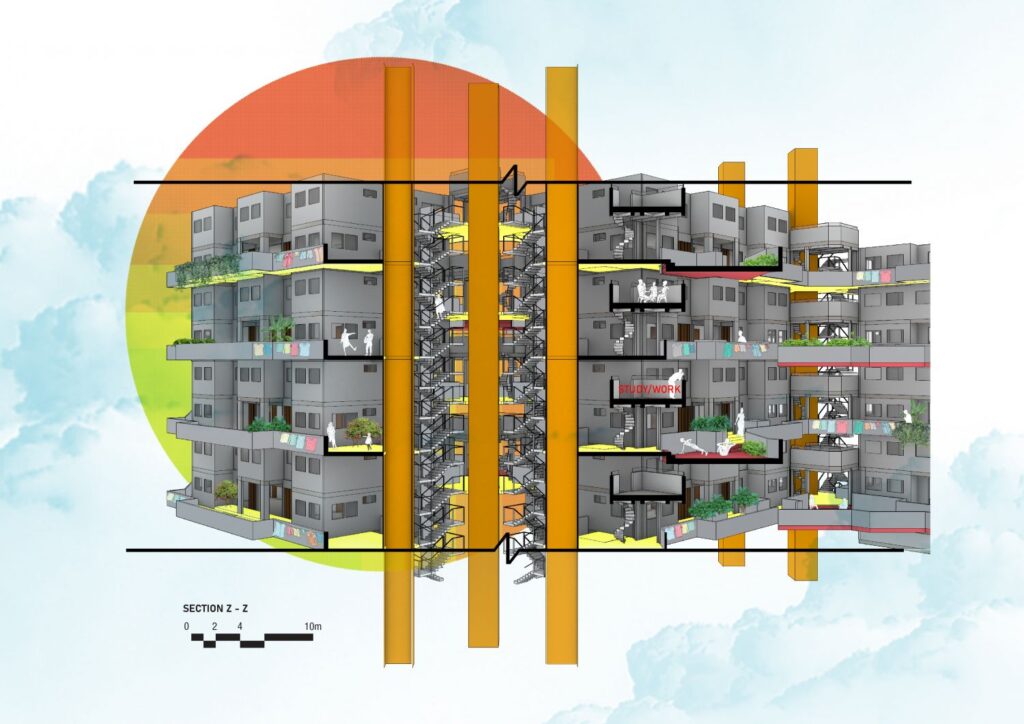
Corridors: A New Beginning towards Stronger Micro Communities
Elvin Tan Kai Boon
Assoc. Prof. Tan Beng Kiang (Dr.)Ministry of Labour
Under Act 2021, powers are granted to the Ministry of Labour according to the following:
The Ministry of Labour ensures a resilient workforce by overseeing the territory of work across all citizens, thereby safeguarding their agency through providing alternatives of where, when and how they work.
The Ministry of Labour maintains the wellbeing of all workers by responding actively and adequately to their residential and community needs, by providing housing that optimises working, recreation and living requirements.
The MInistry of Labour extends equity amongst all workers through adequately nurturing Community Care and Social Relations, providing a range of residential concepts that offer communal housing and shared spaces for the inclusion and benefit of all.
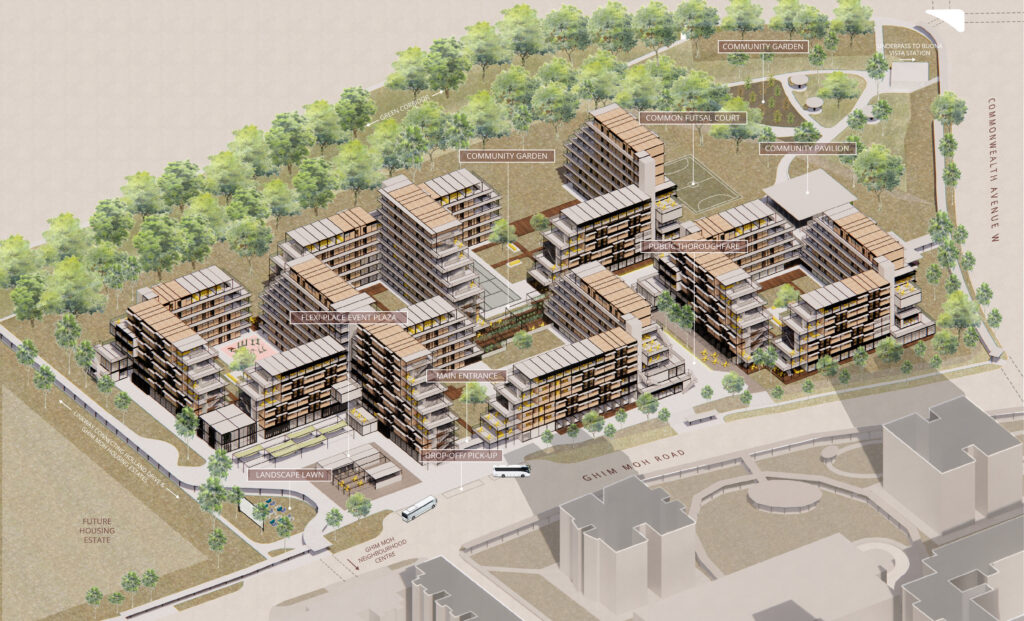
Transiency & Liminality: A Coexistence Approach to rethinking Foreign Worker Dormitories in Singapore
Wong Chi Khay
Assoc. Prof. Tan Beng Kiang (Dr.)Technologies
Architecture, a practice so entwined with making, doing, and craft, cannot be divorced from the technologies and techne which influence it. From drawing to CAD, and onwards to computational design methods, virtual reality, and other new media, technology has moved beyond being a device for drawing and communication. Now, new processes also allow for thinking, optimising and materialising ideas into form.
The theses of this cluster attempt to reimagine the architect in this data-driven, interconnected world in which technological advancement occurs at an ever-accelerating pace. Responding to the blend between the digital, the material, and the architectural, the works respond to the technological zeitgeist and lay out the next step in architecture’s evolution.
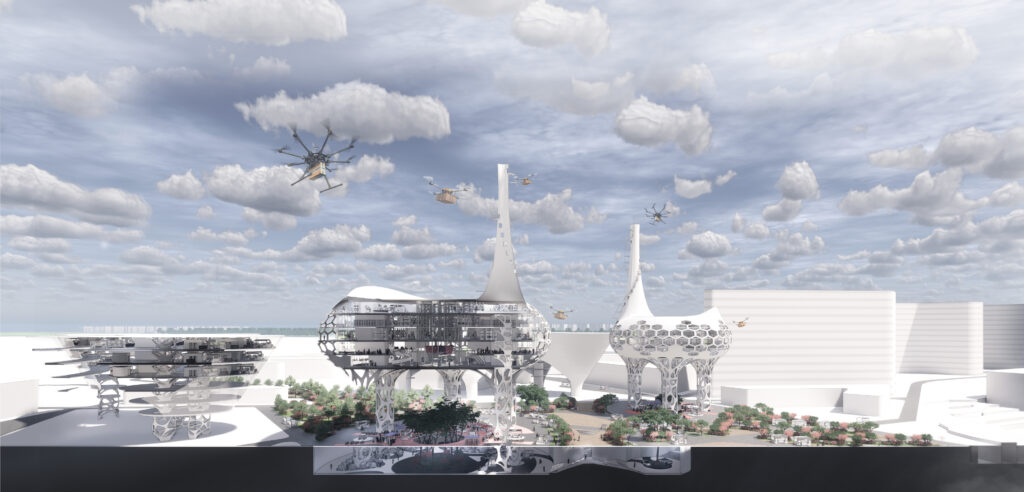
Future Urban Neighbourhoods 2.0 F.U.N – Future Mobility Systems
Joey Low
Assoc. Prof. Fung John Chye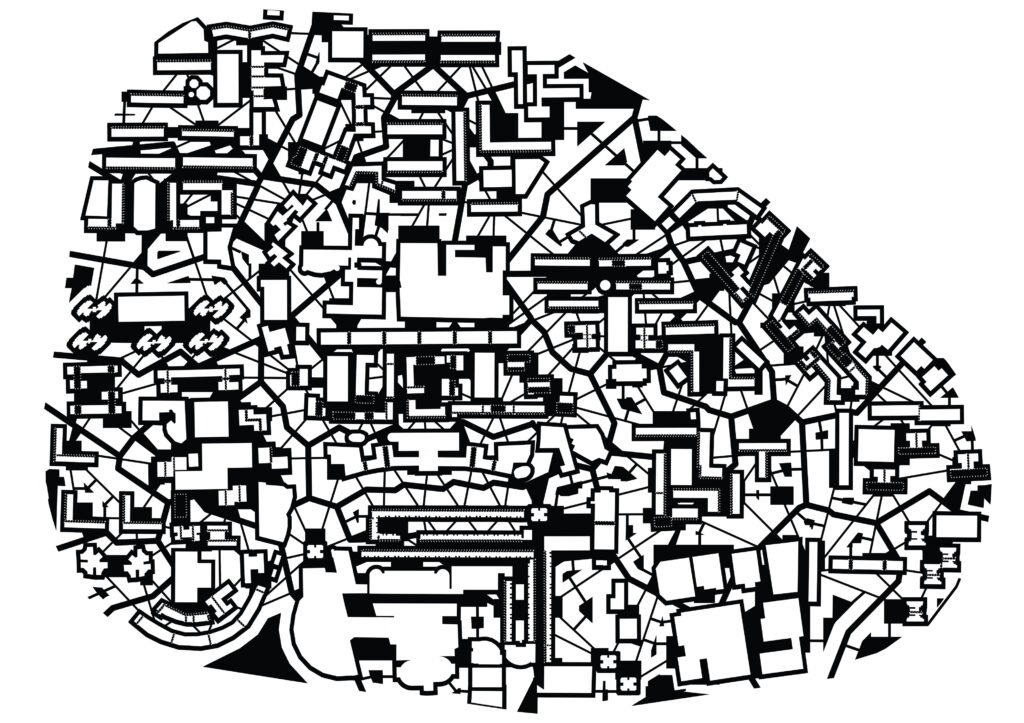
Code for City-Life: Intensification of Empty Ground in High-Rise Modern Cities
Sih Chee Seng
Adj. Assoc. Prof. Khoo Peng Beng
